SAILS AT HALF MAST
MSU mourns the death of football’s ‘pirate,’ the legendary head coach Mike Leach
p. 24

INSIDE Spring 2023 Timeless and Timely p. 04 | Project RECLAIM p. 14 | The Family Way p. 36 | Born in Maroon and White p. 46
FOR THE PIRATE
Carrying a “Mike” flag in honor of late head coach Mike Leach, quarterback Will Rogers leads the Bulldogs onto the field at the ReliaQuest Bowl Jan. 2. The Dawgs took down the Fighting Illini of the University of Illinois in a 19-10 victory, ending the season with a 9-4 record.


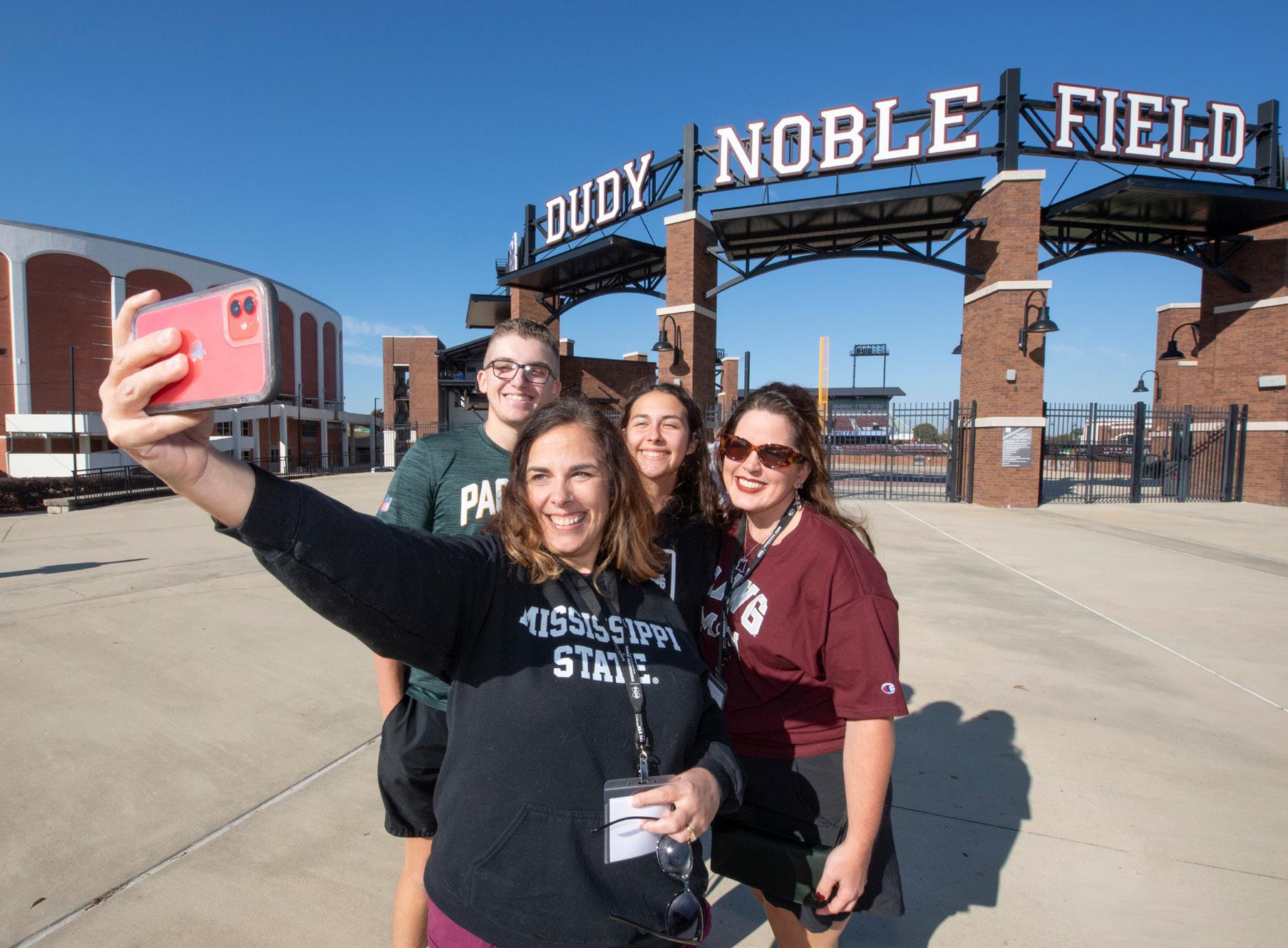
Table of CONTENTS Mississippi State University is an equal opportunity institution. Discrimination in university employment, programs or activities based on race, color, ethnicity, sex, pregnancy, religion, national origin, disability, age, sexual orientation, gender identity, genetic information, status as a U.S. veteran, or any other status protected by applicable law is prohibited. Questions about equal opportunity programs or compliance should be directed to the Office of Civil Rights Compliance, 231 Famous Maroon Band Street, P.O. 6044, Mississippi State, MS 39762, (662) 325-5839. FEATURES 24 Bulldog Athletics Moves Forward MSU Athletic Department emerges from tumultuous fall with renewed sense of family, new direction for the future 31 Economic Driver Mississippi State continues to boost Mississippi’s advanced technology, manufacturing economies 36 The Family Way Mississippi State’s Office of Parent and Family Services guides Bulldogs through university life More than 1,000 people attended Parent and Family Weekend 2022. The annual event is one of the many ways MSU’s Office of Parent and Family Services works to connect with students’ families and provide support throughout a Bulldog’s academic journey. 40
SPRING 2023 | VOL. 100 | NO. 1
PRESIDENT

Mark E. Keenum, ’83, ’84, ’88
VICE PRESIDENT FOR DEVELOPMENT AND ALUMNI
John P. Rush, ’94, ’02
ALUMNI ASSOCIATION EXECUTIVE DIRECTOR
Jeff Davis
CHIEF COMMUNICATIONS OFFICER
Sid Salter, ’88
EDITORS
Susan Lassetter, ’07
Harriet Laird
WRITERS
Emily Cambre ’22
James Carskadon ’12
Bonnie Coblentz ’96, ’00
Susan Lassetter ’07
Addie Mayfield
David Murray ’80
Sid Salter ’88
Carl Smith ’10
DESIGNER
Heather Rowe
PHOTOGRAPHERS
Megan Bean
Grace Cockrell
Emily Grace McCall ’23
Robby Lozano
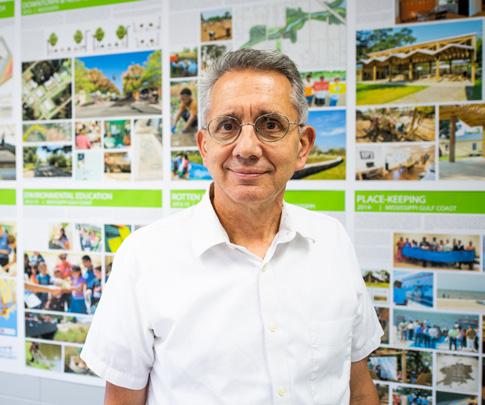
Austin Perryman
Kevin Snyder
Beth Wynn
EDITORIAL OFFICE
P.O. Box 5325
Mississippi State, MS 39762 662.325.0630
slassetter@opa.msstate.edu
ADVERTISING
Leanna Smith 662.325.3360
lsmith@alumni.msstate.edu
Mississippi State University’s Alumnus magazine is published three times a year by the Office of Public Affairs and the Mississippi State University Alumni Association. Send address changes to Alumni Director, P.O. Box AA, Mississippi State, MS 39762-5526. Call 662.325.7000, or email cturner@advservices.msstate.edu.
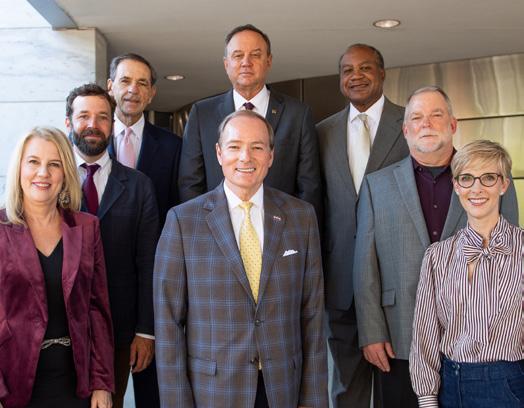
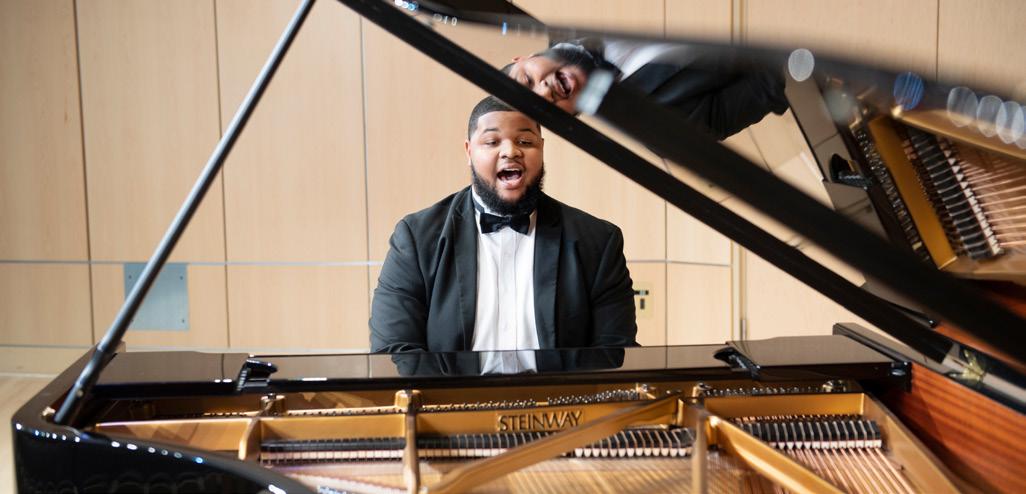
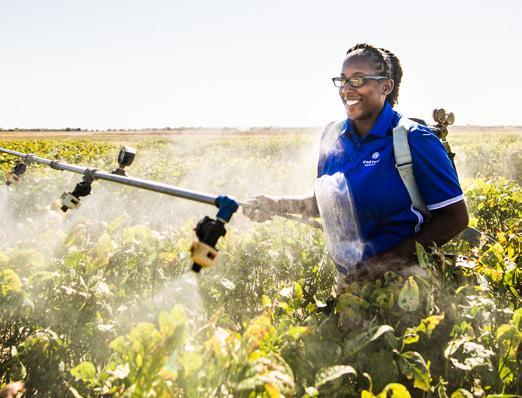
CONNECT TWITTER.COM/MSSTATE FACEBOOK.COM/MSSTATE INSTAGRAM.COM/MSSTATE
COVER 42 Pulitzer prize finalist and nationally recognized editorial cartoonist Marshall
captured the feelings of the Bulldog
following the sudden death of head
Mike Leach. 50 DEPARTMENTS 04 Campus News 14 Discoveries 22 State Snapshot 42 Our People 50 Alumni News 60 Giving Back 70 Class Notes 74 Forever Maroon 78 Back Story 10 66
Ramsey
family
football coach
Timeless & Timely
PROJECTS BIG AND SMALL HELP MSU EVOLVE FOR CHANGING TIMES WHILE PROTECTING CLASSIC CAMPUS APPEAL
 By James Carskadon,
By James Carskadon,
The area Les Potts strolls through on the way to work every morning used to be a narrow roadway through one of the busiest parts of MSU’s Starkville campus. The street between the YMCA and Colvard Student Union was closed to vehicular traffic years ago, but the road itself remained. As MSU associate vice president for administration, Potts was part of the team that oversaw the transformation of the area into a plaza featuring a brick walking path lined with multiple seating options and new landscaping.
The plaza, which was completed last summer, is one of many changes now visible on campus to improve the MSU experience for Bulldogs and visitors alike.
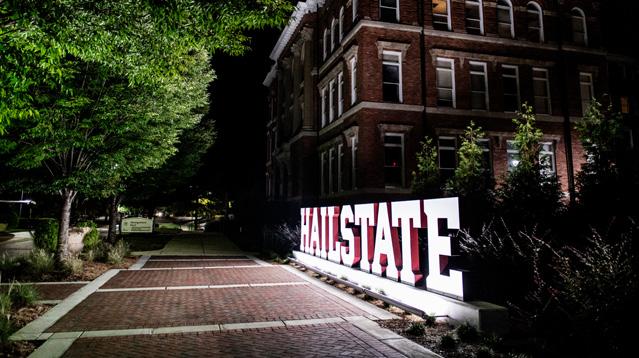
“We have really put a lot of focus on creating comfortable spaces to interact outdoors,” Potts said. “We want students to have nice, shaded areas with comfortable seating to visit with friends. It adds to the
experience to stay in a space instead of just passing through it. Whenever we create these spaces, they start getting used almost immediately.”
In addition to the YMCA plaza, new tables and chairs dot the campus landscape, giving students places to gather outdoors on nice days. Many of these comfortable spaces are within the heart of campus in and around the Drill Field—an area that is now more pedestrian friendly thanks to the completion of new roadways driving most motorized traffic to the perimeter of campus and creating new connections for drivers.
THE ROAD TO SUCCESS
Shortly before the start of the fall semester, Wingo Way opened on the east side of campus, connecting Blackjack Road with Lee Boulevard at the intersection of Bailey Howell Drive. Additionally, Famous Maroon
Band Street now connects Hardy Street and Stone Boulevard, providing an additional east-west connection. The new roads and limited vehicle access at the center of campus are in line with the long-standing campus master plan, Potts said.
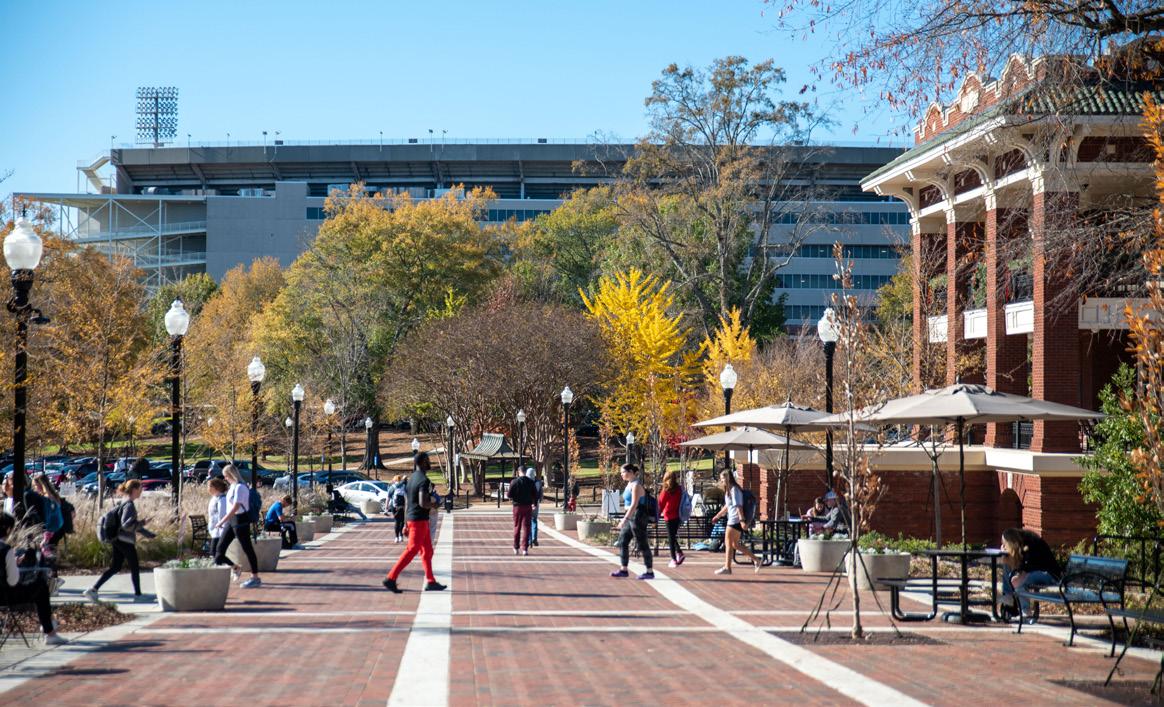
MSU’s enrollment growth over the last decade, along with generous support from private donors and funding from the Mississippi Legislature, has allowed for near constant improvements to be taking place on campus. Potts noted that the placement of new buildings and renovations, as well as things like green space and pedestrian walkways, are all derived from the university’s master plan, which receives a full update every 10 years.
“The master plan is truly more than a map on the wall,” Potts said. “It really guides your thought process on the most logical placement of buildings, the current needs and growth patterns for different colleges. It’s a very
4 SPRING 2023 Campus NEWS
1 3 2
Photos by MSU photographers
1) The new pedestrian-focused Union Plaza converted what used to be a congested thoroughfare into a walkable and inviting space for Bulldogs and visitors to enjoy. 2) “The Balconies at Davis Wade” give fans a tailgate-like atmosphere in the west side upper deck corners. The concept proved to be a hit, with the 22 balconies quickly selling out after they were introduced.
3) A lighted Hail State installation provides an iconic centerpiece to Old Main Plaza.
thorough process and a good one for a growing community to go through. Even as people come and go over the years, you have a living document that gives you something to go by.”
Anyone driving down Hardy Street will see the impact of long-term planning and alumni support. What was recently a gravel parking lot now contains two state-of-theart buildings, the Richard A. Rula Science and Engineering Complex and the Music Building, both of which opened in the last two years. The Music Building connects to the Kent Sills Band Hall, which was renamed in honor of the longtime Famous Maroon Band director in 2021.
SPORTING DEVELOPMENTS
Those coming to campus to catch a game will notice several changes in MSU’s athletics corridor. A new 500-space parking
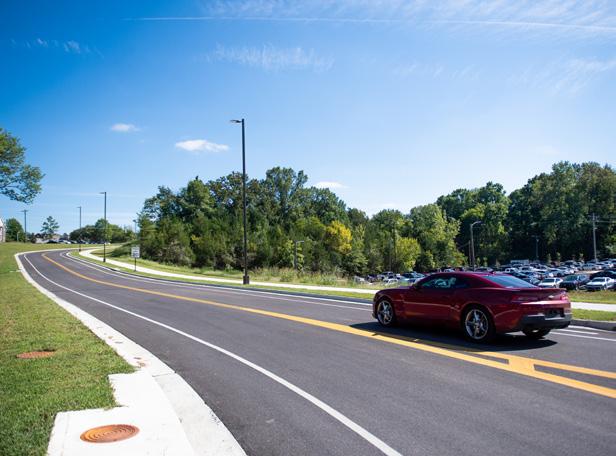
garage has opened across from Humphrey Coliseum, which is getting a major facelift itself. While the basketball Bulldogs are playing through construction this season, the new and improved Hump is scheduled to fully debut for the 2023-24 season. The renovation will provide a modern update for the iconic basketball venue. Redesigned entrances will give fans a glimpse of the floor as soon as they step into the arena. New premium seating will give fans an experience similar to the premium areas of Davis Wade Stadium and Dudy Noble Field. The concourses will also be wider to better accommodate large crowds and access to concessions and restrooms.
Last fall, football fans experienced an addition to Davis Wade Stadium. “The Balconies at Davis Wade” give fans a tailgatelike atmosphere in the west side upper deck corners. The concept proved to be a hit, with the 22 balconies quickly selling out after they were introduced.
CLASSIC DESIGNS, MODERN EFFICIENCY
Potts said that with every improvement MSU is incorporating elements of classic campus buildings into new construction to give the university architecture that feels connected and unique to the campus. The insides of buildings are also addressing modern needs such as the ability to record and broadcast lectures or rearrange furniture to accommodate social distancing and facilitate group interactions.
When planning new construction and renovations, Potts noted that the university strives to make every space as energy efficient as possible. Currently, MSU is modernizing lighting in older buildings and preparing to install a 1.6-megawatt solar array, among other efforts to reduce MSU’s carbon footprint.
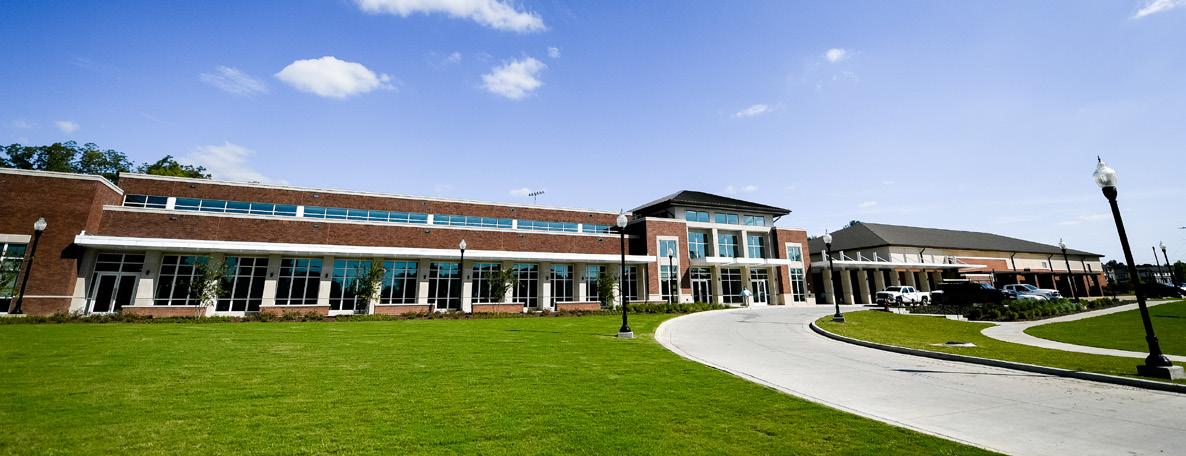
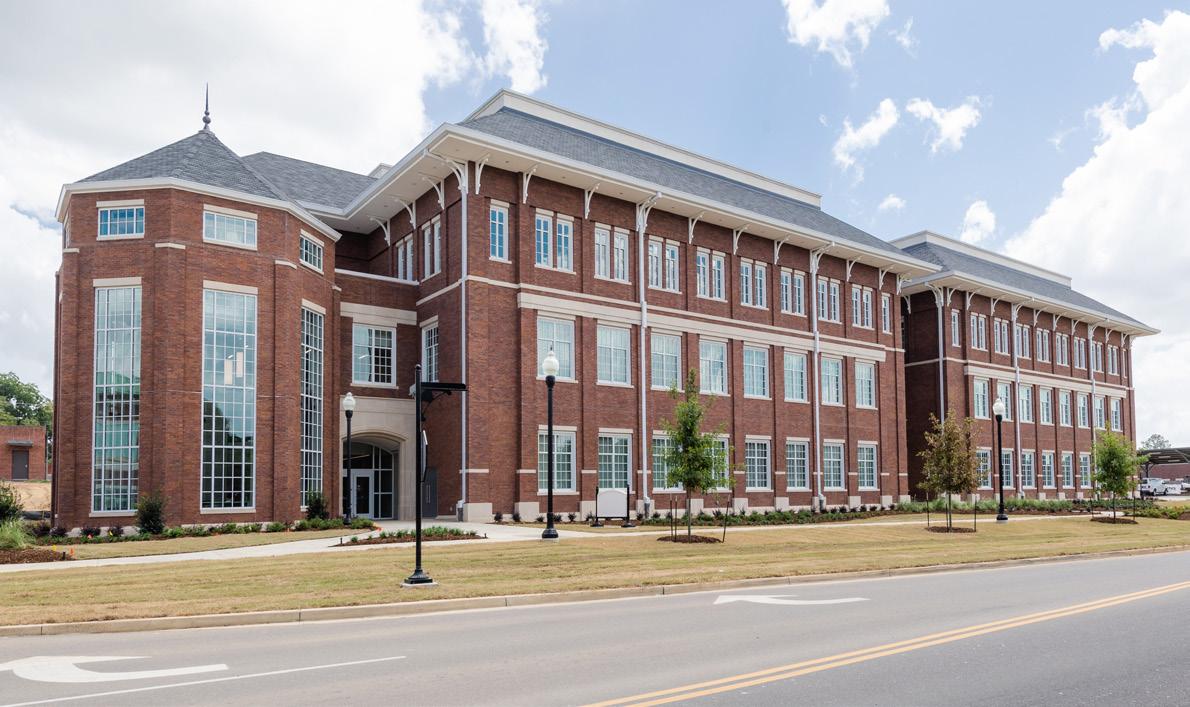
“This helps us meet our climate action goals, reduce our carbon footprint and give

ALUMNUS.MSSTATE.EDU 5
6 4 5 7
4) The new Music Building allows the music department and choral program to be housed in one location. 5) Wingo Way connects Blackjack Road and East Lee Boulevard, one of two new roadways that help direct traffic away from the pedestrian-heavy core of campus. 6) A new 500-space parking garage has opened across from Humphrey Coliseum. 7) The $34 million, 70,000-square-foot Rula Engineering and Science Complex now stands at the corner of Hardy and Morrill roads.
us redundancy of power,” Potts said. “Alternative energy sources like solar have become more viable over time and I think it’s the right thing for us to do. As a land-grant university, we advise people across the state that solar is a growing land use. So, I think us having some experience operating a solar array will be a benefit as people in Mississippi consider and manage similar projects.”
Among future projects at MSU is the Jim and Thomas Duff Center, a 100,000-square-foot facility that will provide a centralized home for MSU’s Autism and Developmental Disabilities Clinic, ACCESS Program, and the Department of Kinesiology, which has the largest enrollment of any university department. The project is supported by a $15 million gift from brothers Jim and Thomas Duff.
“This is going to be a really iconic Mississippi State building with its architecture and scale,” Potts said.
The new building and its surrounding green space will occupy the current McCarthy Gym footprint. Some additional green space to the north of the building will help link the area with the Drill Field and Old Main Plaza—the brick walkway that runs between Perry Cafeteria and Colvard Student Union. It also ties together with the Lee Agricultural and Biological Engineering building to form a new quad, which Potts said is something that has been envisioned in the master plan for two decades.
Other upcoming projects include the construction of a High Performance Computing
Collaboratory data center in the Thad Cochran Research, Technology and Economic Development Park, as well as renovations to Dorman Hall and Ballew Hall. MSU is also in the planning stage of updating facilities for the College of Architecture, Art and Design. n
Navigating Campus

Much like the buildings on campus, visitor parking has modernized as well. MSU Parking and Transit Services has partnered with ParkMobile to allow visitors to pay for parking with their phones for designated lots such as the Cullis Wade Depot and the metered parking on Lee Boulevard. ParkMobile, which offers a free smartphone app, is also used by the City of Starkville for paid parking in the Cotton District.
Visitors can also access the parking garage under Old Main Academic Center and the new 500-space garage on Bailey Howell Drive. The garages accept debit and credit cards for payment.
Visitor parking permits can be purchased online or in-person from Parking and Transit Services in the Roberts Building or at the MSU Welcome Center in the Cullis Wade Depot. To purchase online, visit myparking.msstate.edu
For $5 a day, these permits allow campus guests to park in any legal parking spot that is not specially reserved or in a pay-per-use area.
Visitors with a state-issued disability placard or plate must obtain an MSUissued visitor parking permit but are not required to register their disability placard or plate. The MSU pass is valid for any ADA-accessible spaces that are not in a gated lot.
Strategically located Starkville-MSU Area Rapid Transit (SMART) stops provide campus visitors with a free and easy way to traverse campus and connect with popular destinations in Starkville. For a map of stops, as well as routes and times, visit www.smart.msstate.edu
For more questions related to visitor parking on campus, contact Parking and Transit Services at parkingservices. msstate.edu or 662.325.3526.
6 SPRING 2023 Campus NEWS
COMMITTED TO ALL Investment in diversity, equity and inclusion nets MSU
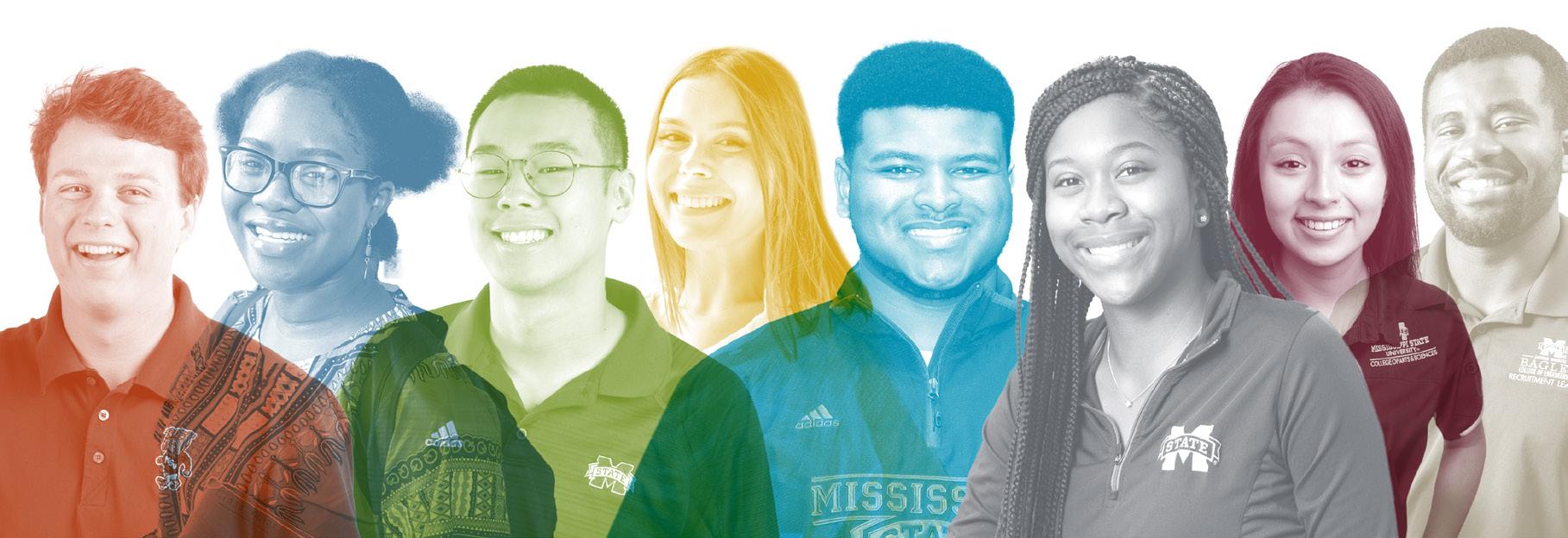
national recognition
Mississippi State’s commitment to creating a sense of belonging for students is earning national recognition for the university.
MSU was the only Mississippi university and one of 10 U.S. land-grant institutions to win the 2022 Higher Education Excellence in Diversity Award, given by INSIGHT Into Diversity magazine. State has earned the HEED honor three times in the last four years.
“The question is always, ‘How do we create spaces where students, regardless of their identities, can come together and learn from each other?’ because that’s what we are as an institution of higher education—a place where people learn and grow together,” explained Ra’Sheda Forbes, MSU’s first vice president for access, diversity and inclusion.
A two-time MSU graduate, Forbes has worked in higher education for almost 13 years, including stints as the assistant director of the university’s Holmes Cultural Diversity Center and assistant vice president of multicultural affairs before being named vice president of MSU’s Division of Access, Diversity and Inclusion in 2020. In this role, she provides oversight for several groups and initiatives, including the HCDC, Office of Institutional Diversity and Inclusion, TRiO Support Program, Promise program, and MSU Thrive, which all help broaden college access, support student success and enhance diversity-related teaching and learning.
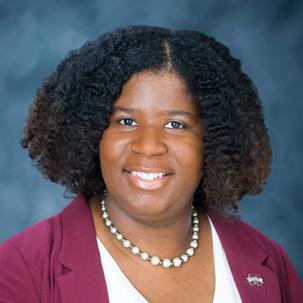
Forbes said the HEED Award reflects the university leadership’s dedication to creating welcoming environments for all people, as well as the effectiveness of Mississippi State’s policies, processes and programs.
By Carl Smith
“I often speak about the student lifecycle and experience. They don’t experience MSU as just the Holmes Cultural Diversity Center or the financial aid office; they experience the institution as a whole,” Forbes said. “All these individual experiences add up as a collective signal to let students know whether they belong. It’s important for us to critically think about each one of those pieces and how students experience them.”
One of the most important moves for diversity, equity and inclusion-related efforts at the university, Forbes said, was the establishment of a vice
presiden.t-level role for their oversight, which purposefully placed an advocate for access, diversity and inclusiveness on President Mark E. Keenum’s executive cabinet.
“This award is a reflection of our institutional values of integrity, hard work and respect for all, and I am so proud of the commitments our students, faculty and staff have made to welcome and support every member of our community,” Keenum said. “Ra’Sheda Forbes has done a truly excellent job
ALUMNUS.MSSTATE.EDU 7
"The question is always, ‘How do we create spaces where students, regardless of their identities, can come together and learn from each other?’ because that’s what we are as an institution of higher education—a place where people learn and grow together."
~ Ra'Sheda Forbes
leading Mississippi State’s ongoing commitment to access, diversity and inclusion. I greatly value her leadership and wise counsel as a trusted member of our administrative team.”
Among the division’s successful initiatives, Forbes touted the university’s continued support of first-generation students, the HCDC—which she describes as “a hub of belonging that actively works to create spaces our students need”—and MSU’s
allows pathways for success by giving students the opportunity to apply the things they’ve learned.”
Cameron Mayers, a junior double majoring in political science and communication, first met Forbes through his work with the HCDC and Office of Institutional Diversity and Inclusion. The Pearl native serves on the Diversity and Inclusion Committee and the Minority Student Success Committee, as well as the Student Association as deputy chief of staff. These roles, he said, give him pride for his part in making the university more diverse and inclusive.
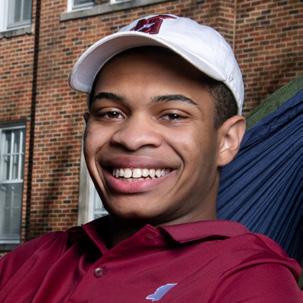
continual expansion of services to meet the needs of growing populations, including the recent creation of an indigenous student organization and increased support for international students.
“People’s identities are both seen and unseen, and everyone is unique in and of themselves. I think you can look at the institution as a whole and be able to call out all aspects of diversity represented in our campus community,” Forbes said. “In terms of inclusion, we can see that in the ways our students interact with each other inside and outside of the classroom and how collaboration happens across departments and units to make people feel like this is their university.
“In terms of equity, we can see it in ways we customize experiences to make sure all students are successful,” she continued. “Adding experiential learning, too, is an equity strategy because it
“I visited MSU in 2020 right before COVID-19 hit. It wasn’t at the top of my list of universities, but something just felt right about being here—like I belonged here. I really enjoy being able to help give other students that same feeling through my involvement,” he said. “When you look at any kind of institution, there’s so much more work that can be done because not any one place is perfect. However, I’m proud to say MSU is one of the most diverse college campuses in the Southeastern Conference. It’s not just race, but it’s also backgrounds and experiences. Because of that, we have programs for first-generation students, those who have experienced homelessness, and people in financial need and other support systems for people from unique backgrounds. Ra’Sheda has helped promote opportunities and support for everyone.
“She’s truly become a mentor to me,” Mayers added. “Her work to make the university a more diverse and accessible place—not only for minority students, but also for all students, faculty, and staff across the board—has been really amazing work, and I’m so grateful to be along for that experience and the journey with her.” n
MSU RANKED IN TOP 5 NATIONALLY FOR FREE SPEECH
Mississippi State is among the top universities nationally for supporting student freedom of expression, according to a 2022 analysis from the Foundation for Individual Rights and Expression, or FIRE. MSU was ranked No. 4 in FIRE’s third annual College Free Speech Rankings released in September 2022. It is the only SEC or Magnolia State university listed among the top 20. The rankings are based on FIRE’s definitive elements of student free speech: openness to discuss challenging topics, tolerance for
8 SPRING 2023 Campus NEWS
"I visited MSU in 2020 right before COVID-19 hit. It wasn’t at the top of my list of universities, but something just felt right about being here—like I belonged here." ~ Cameron Mayers
A PROVEN COMMITMENT to Student Success
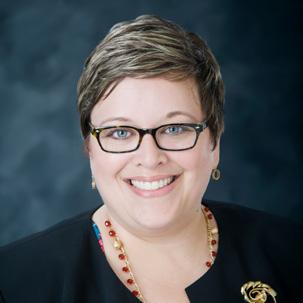
Mississippi State’s commitment to providing safe and equitable spaces for all goes beyond a simple mission statement. Here are a few initiatives and programs supporting students from all walks of life.
First-Generation Scholar’s Initiatives
Mississippi State University was selected to join the First Gen Network after demonstrating a commitment to advancing the outcomes of firstgeneration college students through improving both first-generation student success initiatives and institution-wide approaches. The Office of Academic Access and Support, along with the First Scholars Working group, implemented the First Scholars Week focused on celebrating the accomplishments of first-generation college students and their families.
Dr. Harold Grier Doctoral Scholars Program
The Dr. Harold Grier Doctoral Scholars Program supports racially underrepresented Ph.D. students throughout their doctoral program at MSU. Sponsored by the Office of the Provost and Executive Vice President, the Office of
Institutional Diversity and Inclusion, and the Office of the Graduate School, the program provides financial, professional and academic assistance for scholars throughout their academic careers and creates a pathway to faculty roles.
BRIDGES Undergraduate Research Program
Sponsored by the Division of Research and Economic Development and Division of Access, Diversity, and Inclusion, BRIDGES URP is designed to engage underrepresented scholars in research as a high impact practice. Students participating in the program receive funding, career and graduate school preparation, as well as a community of peers and professional support.
Promise Scholars Program
MSU strives to combine access and excellence in fulfilling its traditional role as The People’s University and in
expression of opposing views, administrative support, and comfort in communicating ideas. Two additional factors are the measure of disruptive conduct and college policies affecting free speech.
Results are based on a comprehensive survey of more than 45,000 students at over 200 colleges.
“Freedom of expression is a fundamental right afforded to all of us,” said Regina Hyatt, MSU’s vice president of student affairs. “We strive to create a campus environment where students, employees and visitors can share their ideas freely and engage in civil dialogue about important topics, even when there are disagreements about those ideas. I am proud of the types of engagement our students seek out in sharing their viewpoints and appreciate the supportive campus climate that allows them to do so.”
keeping with the needs of Mississippi. The Mississippi State Promise Program is designed to help first-year students and community college transfer students from low-income Mississippi families attend MSU by providing financial support, mentoring and coaching.
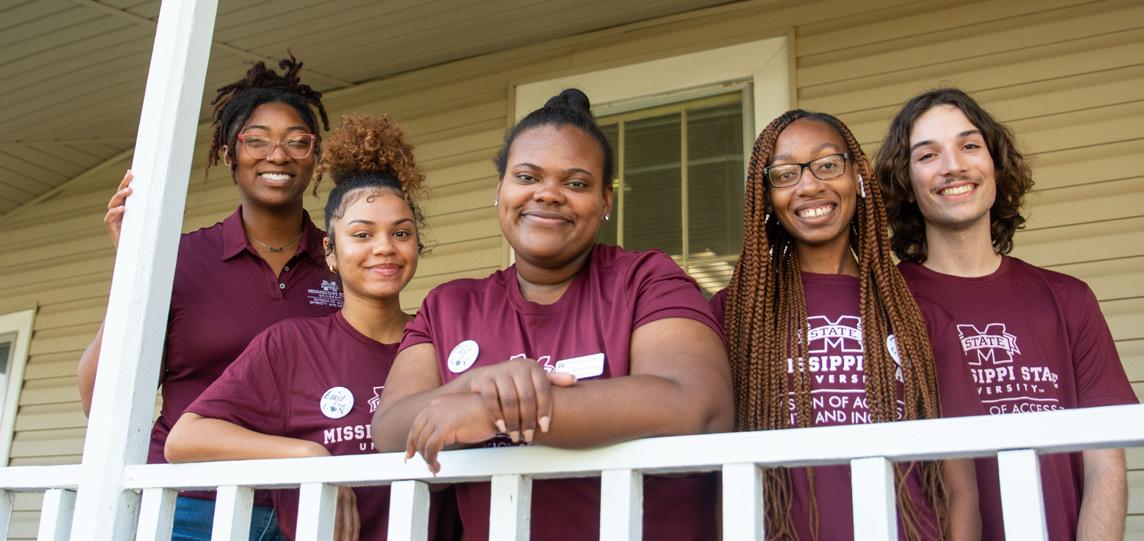
Thrive Scholars Program
The Thrive Scholars Program was created to assist students who were previously or are currently a part of the foster care system, an emancipated minor, at risk for homelessness or had both parents pass away. In addition to furnishing students with resources to help them become successful academically, the program provides students with a community in which they can be comfortable and feel at home. The Thrive community aims to alleviate nonacademic stressors that can hinder students’ academic success and degree completion.
The university has long been recognized for its commitment to free speech as MSU has earned
FIRE’s “green light” rating for 10 consecutive years. The designation is reflective of MSU’s commitment to protecting free speech. MSU is among just 60 institutions to hold the green light designation.
ALUMNUS.MSSTATE.EDU 9
"We strive to create a campus environment where students, employees and visitors can share their ideas freely and engage in civil dialogue about important topics, even when there are disagreements about those ideas." ~ Regina Hyatt
Students at a tailgate hosted for first-generation students last fall.
MSU architecture students RE-IMAGINE MISSISSIPPI’S COAST
By
Adrive along U.S. Highway 90 on Mississippi’s Gulf Coast reveals an environment significantly altered by man and nature over the course of generations. The scenic route itself runs adjacent to a seawall that was turned into the world’s longest engineered beach.
Hurricane Katrina in 2005 left lasting impacts on the area’s natural environment, road and bridge infrastructure, and buildings. The Deepwater Horizon oil spill in 2010 significantly damaged the Gulf’s ecosystem. Rising sea levels are creating long-term threats to low-lying roads and buildings. Barrier islands that are barely visible from the shore trap sediment, making the water darker than what beachgoers might see in Alabama or Florida.
At the same time, casinos dot the Mississippi coastline, symbols of the area’s growing appeal as a tourist destination. Ports for building ships, as well as shipping goods, create an industrial base for the local economy. Recent work to create a more robust “blue economy”—jobs and economic growth based on the sustainable use of ocean resources— is making the most of the economic and environmental benefits the Gulf provides.
All these factors and many more contribute to the complex nature of the Mississippi Gulf Coast’s opportunities and challenges, which are being explored by a new design studio launched last fall by Mississippi State’s School of Architecture.
and people that make up the Mississippi coast. This spring, students will put that knowledge to use by designing a coastal building.
“We need to get people who will be working in design professions and people who are in the job to help us see into the future and think about how to respond to changing conditions,” Perkes said. “Climate resilience and adapting to climate risk creates a design issue that is, I think, becoming more and more important to the professionals whose job it is to visualize and help people understand the kind of future we can have.”

Dubbed “The Gulf Coast Studio: The New Blue Economy Coastline,” the pilot program connects Bulldog students with the well-established MSU Gulf Coast Community Design Studio to provide them with an indepth look at the Mississippi coastline so they can re-imagine what it can become for future generations.
David Perkes, a professor in the School of Architecture and studio director, spent the fall semester giving students a sense of the places
The interdisciplinary studio brings together students and faculty from the School of Architecture and the Department of Landscape Architecture to brainstorm ideas to re-imagine the coast. This year’s pilot version of the studio is funded by a grant from the National Academies of Science, Engineering and Medicine.
The project has given MSU architecture students exposure to the coast—one of Mississippi’s fastest-growing areas—that they would likely not have had otherwise. Elisa Castaneda, a fourth-year architecture major from Madison, Alabama, is designing lagoons that can be filled with brackish water for
10 SPRING 2023
Campus NEWS
James Carskadon, Photos by Grace Cockrell, Megan Bean & Beth Wynn
"We’re the generation that’s going to be navigating climate change and urban spaces becoming even more dense. This is extremely pertinent to what I think careers are going to look like for a majority of our class." ~ Elisa Castaneda
David Perkes, a professor in the School of Architecture and studio director, spent the fall semester giving students a sense of the places and people that make up the Mississippi coast. This spring, students will put that knowledge to use by designing a coastal building.
fisheries or blue water to give a resort feel. She is also looking at incorporating the stormwater drains that run under Highway 90 and onto the beach to create marshlands that can provide additional environmental protection. She said the broad scope of the studio is helping her and her classmates think about some of the complex challenges they will face in their careers.
“We do have to try to find solutions to real-world conditions that are only going to intensify in the future,” Castaneda said. “We’re the generation that’s going to be navigating climate change and urban spaces becoming even more dense. This is extremely pertinent to what I think careers are going to look like for a majority of our class.”

For Travis Bryan, also a fourth-year architecture student, the studio has provided a chance to explore the interactions between saltwater, freshwater and estuary conditions. His project focuses on creating new urban spaces around the water that can be enjoyed by the public.
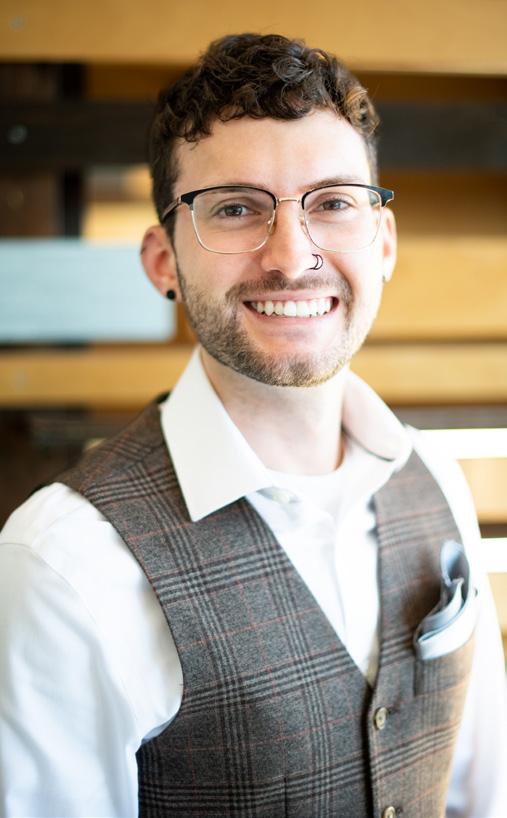

A Union native, Bryan said presenting his ideas to coastal residents and leaders was “terrifying” since he’s not from the area, but he added it was still a valuable experience which
gave him a new appreciation for the coast and its potential.
“When you go to the coast, you see the beautiful, manufactured beaches,” Bryan said. “What you don’t see are the things going on behind the tree lines that are really, quite beautiful. That’s something a lot of us are trying to focus on in our project. Naturally, the Mississippi coast is very beautiful. But our instinct is to develop it in a way that’s great for beaches. I think the drive in this studio is figuring out how we become our own coastline with our own identity.”
Perkes said the new interdisciplinary studio fits well with the established Gulf Coast Community Design Studio’s work, which has evolved over the years in response to events like Hurricane Katrina and the 2010 oil spill. It also has created new opportunities for collaboration with the University of Southern Mississippi, which launched a major initiative in 2021 to boost advanced research related to the ocean and the technologies used to explore it. Students held mid-semester reviews at one of USM’s facilities last fall.
“Architecture and landscape architecture are a way to really visualize some of the potential for the coast beyond just being there
for tourism but also the potential to open up new industry and business opportunities,” Perkes said. “That really helps give the students a full view of a lot of things that are going on down here.”
For the students, one of the challenging parts of the project has been taking a holistic view of more than 30 miles of coastline while designing projects that may incorporate an acre or less of the span. South Carolina native Connor Speaks, a fourth-year architecture major said he has enjoyed the challenge, as well as the opportunity to look closer at issues like storm surge, stormwater drainage and mitigating a building’s ecological impacts. He said the perspectives gained from the project will impact the way he practices when he begins his career.
“Prior to this project, I never realized how complex and how detailed the solutions to these problems can get,” Speaks said. “In my career, if I am designing a project in Mississippi or the Southeast, I know I will now be trying to address things like storm drainage in a positive way. Sure, a design can be a nice work of art but I think even more important is creating a design that affects the people and the place in a more positive way.”n
ALUMNUS.MSSTATE.EDU 11
Connor Speaks
Elisa Castaneda
Travis Bryan
Mississippi State football team member Austin

Williams was named the 2021-22 Southeastern Conference H. Boyd McWhorter Scholar-Athlete of the Year. A native of Ocean Springs he holds a bachelor’s in business administration, and an MBA, having maintained a perfect 4.0 GPA throughout his time at Mississippi State.
Devon Brenner, assistant vice president for outreach and initiatives in the MSU Office of Research and Economic Development, has been named director of the university’s Social Science Research Center. She has been a part of the MSU faculty since 1999, teaching reading and language arts in the Department of Curriculum, Instruction and Special Education. She was head of the department from 2011-2015 before serving one year as an education fellow in the office of former U.S. Senator Thad Cochran. From 2016-2021, she was special assistant to the vice president for education initiatives in the Office of Research and Economic Development, assisting with the planning and launch of the Partnership Middle School on the MSU campus.
Mississippi State sophomore
Alex Speak was selected to study sustainable food production and land use in Wales as part of the Fulbright UK Summer Institute. An animal and dairy science major from Earle, Arkansas, she participated in a three-week program at Aberystwyth University where she studied local agricultural issues like those affecting Mississippi, the Southeast and U.S., including food insecurity.
Paul T. Sullivan, a business information systems senior with a minor in theater, won the Vectorworks Award in Design, Technology and Management at the Kennedy Center American College Theater Festival Region IV awards ceremony. His award includes a professional license for industry-standard drafting software, Vectorworks, valued at $3,000.
Samantha Jones now leads Mississippi State’s Child Development and Family Studies Center. She has two MSU human development and family science degrees, including a 2014 Master of Science.
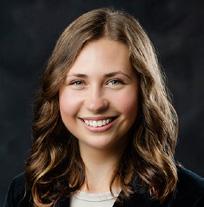
Javad A’Arabi, a political science graduate student from Starkville, participated in the U.S. Department of Statesponsored Critical Language Scholarship Program and was a Fulbright finalist selected to study in Germany.
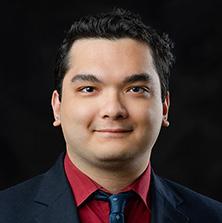
Vasabjit Banerjee, an associate professor within Mississippi State’s Department of Political Science and Public Administration, was selected from a nationwide pool of applicants to attend the prestigious International Policy Summer Institute. Held in Washington, D.C., by the Bridging the Gap Project, the five-day professional development event helps scholars better create and disseminate policy-related academic research.
Saddiq Dzukogi, an assistant professor in MSU’s Department of English, selected for a s a shortlist of finalists to receive the 2022 Nigeria Prize for Literature for his poetry written in tribute to his late daughter, “Your Crib, My Qibla” (University of Nebraska Press, 2021). He also won the third annual Derek Walcott Prize for Poetry, a prestigious prize presented to a living poet who is not a U.S. citizen, for a full-length book of poems published in the previous year.
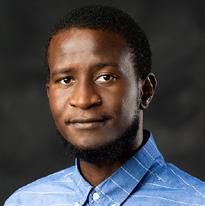
Professor Rebecca Robichaux-Davis in the College of Education’s Department of Curriculum, Instruction and Special Education as the director for the university’s next Quality Enhancement Plan. Known as a QEP for short, this is an intensive five-year plan addressing an important issue for student success created during the institution’s reaffirmation of accreditation through the Southern Association of Colleges and Schools Commission on Colleges.
Professor of English Jervette R. Ward is now president of the College Language Association devoted to serving the academic, scholarly and professional interests of African American collegiate scholars.
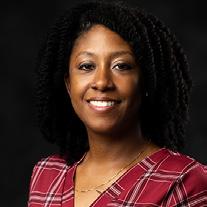
Reese Dunne—an Astronaut, Goldwater and Presidential scholarship recipient and former Mr. MSU—is Mississippi State’s newest Rhodes Scholarship finalist. A
senior mechanical engineering major and Shackouls Honors College student from Starkville, he is MSU’s sixth finalist in 11 years, joining graduate and Rhodes Scholar Donald “Field” Brown and graduates Natalie Jones, Holly Travis, Semaj MartinRedd and Christopher Robinson. Eric Moyen, Mississippi State professor and head of the Department of Educational Leadership, is now the university’s first assistant vice president for Student Success.
Brian D. Shoup, an associate professor, is the new head of the university’s Department of Political Science and Public Administration.
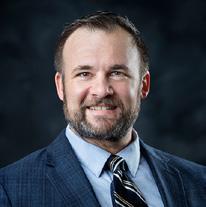
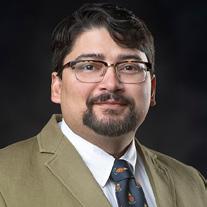
Senior architecture major Alysia E. Williams of Kennesaw, Georgia, is one of 10 students from across the nation receiving a 2022 Gensler Rising Black Designers Micro-Scholarship.


Becky Hagenston, a professor in Mississippi State’s Department of English, received a literary artist fellowship for fiction from the Mississippi Arts Commission. Established in 1968 by the Mississippi Legislature as the state’s official grantmaking and service agency for the arts, the MAC provides financial and technical assistance to artists, arts organizations and educational institutions.
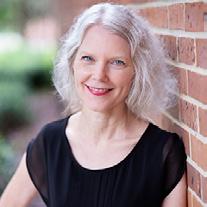
Jake Hartfield, a Mississippi State graduate and former student Orientation Leader, now serves as the director of the university’s Office of Orientation and Events.

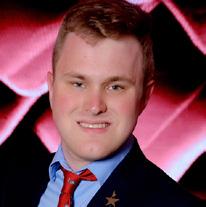
Gary Jackson, who has served as director of the MSU Extension Service since 2011, was named the university’s first associate vice president for outreach and engagement. He is charged with strengthening and coordinating university outreach activities to better meet stakeholder needs at the local, state, national and international levels.
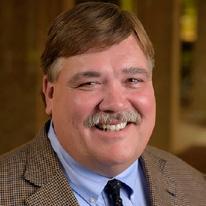
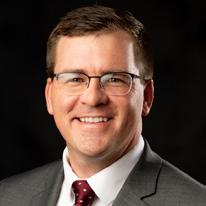
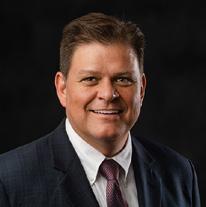
Missy Hopper, a professor in MSU’s Department of Curriculum, Instruction and Special Education,
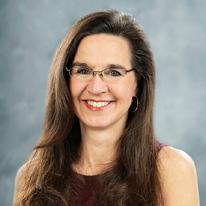
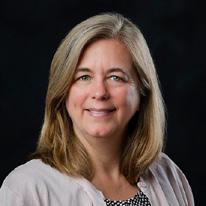
12 SPRING 2023
Campus NEWS
recently was honored with a named dissertation fellowship for her years of service, devotion and commitment to Phi Kappa Phi, one of the nation’s oldest and most selective multidisciplinary collegiate honor societies.
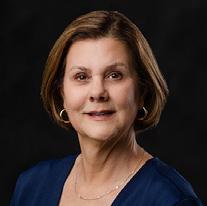
The Missy Hopper Dissertation Fellowship by Phi Kappa Phi is worth $10,000 and one of 15 awards the society gives annually to active members who are doctoral candidates completing dissertations.


Matthew W. Brown is the newest appointee to the prestigious Dr. Donald L. Hall Professorship of Biology at Mississippi State University, a position made possible with an endowment created by its namesake. The professorship established by Hall, a 1962 pre-medicine graduate, honors the former MSU professors who impacted him.
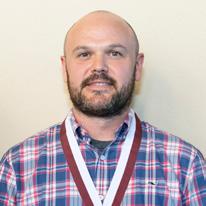
Sean Fox, an expert in applied research in consumer economics, agricultural marketing and experimental economics, now leads the Department of Agricultural Economics. He comes to MSU from the University of Illinois, where he was professor and head of the Department of Agricultural and Consumer Economics.
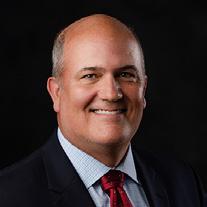

Tommy Anderson, a professor of English, is now dean of Mississippi State University’s Judy and Bobby Shackouls Honors College. Prior to serving as interim dean of the honors college, he served as interim dean of MSU Libraries. He additionally has held the roles of associate dean of academic affairs and interim assistant dean of undergraduate affairs for MSU’s College of Arts and Sciences.
Britain Steele, a junior aerospace engineering major from Mount Juliet, Tennessee, and Emma Wade, a senior computer science major from Decatur, Alabama, are among the 68 members of the Astronaut Scholarship Foundation’s 2022 Astronaut Scholars Class, which includes students from a select group of 45 universities across the nation. The prestigious designation affords them a financial prize and access to a lifelong network of science-, technology-, engineering- and mathematics-focused researchers and trailblazers.
MSU’s Speech and Debate Council claimed five individual national championships at the recent International Public Debate Association National Championship and placed second nationally overall out of more than 100 teams. Council members include, left to right, front row: Marcus Williams, Hannah Daniels, Matteo Mauro, Tyler Melvin, Mia Robertson, Nirmal Bhatt; second row: Amanda Kronenberger, Patrick McKenzie, Hayden Cherry, Anamica Khadgi, Lindsay Culpepper, Maggie Phillips, Eric Humphries; third row: Amari Cooper, Madison Biggerstaff, Vitor Da Silva, Ryan Jarratt, Luke Chaney; and fourth row: Collin Staten, Luke Youngblood, Devin Hutchins.

Damilola Taiwo and Segun Adeyemo, both forestry graduate students in MSU’s College of Forest Resources, were accepted into the Society of American Foresters Diversity Scholar Program. The competitive program, operated by the national organization that advances sustainable forest management, oversees accreditation of forestry programs and certifies professional foresters.
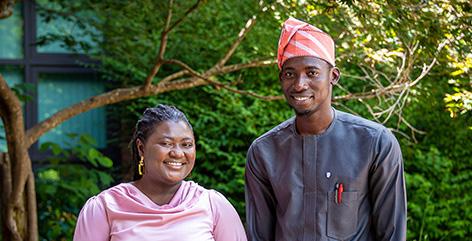
Mississippi State’s Phi Kappa Phi chapter once again is being nationally honored with a Circle of Excellence Platinum Award from the nation’s oldest and most selective multidisciplinary collegiate honor society. The Platinum Award is the highest PKP honor given to a chapter. MSU’s chapter has been a Circle of Excellence winner for five consecutive years since the awards program’s inception in 2018 and has been looked to as a national model by other university chapters across the country. The 2022-2023 award honors the MSU chapter as an excellent organization based on several criteria, including its yearly initiation efforts and activities.
Master’s programs in clinical mental health counseling and school counseling, along with the doctoral program in counselor education and supervision recently received the welcomed accreditation decision from the Council for Accreditation of Counseling and Related Educational Programs. All three curriculums are in the university’s Department of Counseling, Educational Psychology and Foundations, with the two master’s programs offered at both the Starkville and Meridian campuses and the doctoral program offered in Starkville.
ALUMNUS.MSSTATE.EDU 13
PROJECT RECLAIM
Mississippi State psychology study provides relief for hoarding behaviors
By Susan Lassetter, Portraits by Megan Bean
It may happen slowly—one untended stack of mail at a time—or suddenly— with the inheritance of a loved-one’s lifetime of possessions and collections. But however it happens, a constant accumulation of things can seriously impact a person’s life.
Known as hoarding, amassing an overabundance of possessions can limit an individual’s ability to function or form personal relationships. With a new, three-year project sponsored by the National Institute of Mental Health, MSU assistant professor of psychology Mary Dozier said she hopes to identify tools to help people overcome hoarding tendencies and improve their overall quality of life.
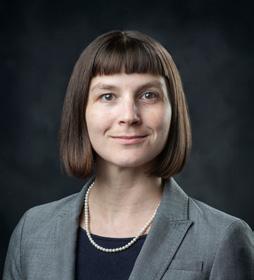

“There are many reasons a person might begin to exhibit hoarding behaviors,” Dozier explained. “Our study is designed to help people identify what’s causing them to have trouble
letting things go and develop tools to overcome it.”
Dozier said clutter is the most visible symptom of a hoarding disorder, but not all clutter indicates a problem.
relationships can then exacerbate the behaviors that lead to the clutter in the first place.
“I’ve seen people who maybe can’t sleep in their bed because it’s covered with things, so they sleep on the couch or in the car,” Dozier said. “Or maybe they can sleep in their bed fine, but they can’t have their grandchildren come stay because the guest room is inaccessible.
“These behaviors get reinforced over time,” she continued, “meaning every
“It’s a spectrum,” she said. “Some people like having things around; they think it makes the space feel homey. But for others, being surrounded by too much stuff can be distressing and cause anxiety, which impairs their ability to function. That’s when it begins to fall into the category of hoarding disorder.”
time they don’t throw something away, it makes it easier to not throw something away the next time.”
That’s where Dozier’s study—called Project RECLAIM—comes in. By providing behavioral intervention and support, a team of MSU faculty and students are helping participants
14 SPRING 2023
Discoveries
"Our study is designed to help people identify what’s causing them to have trouble letting things go and develop tools to overcome it." ~ Mary Dozier
identify what is causing their hoarding tendencies and learn to overcome them.
“The treatment we provide is based on a technique called motivational interviewing,” Dozier explained. “This practice helps people think through their values, identify their goals, evaluate their current behaviors and decide if those things line up or not. It helps them develop a sense of self-efficacy around discarding and decluttering.”
The second part of the RECLAIM intervention is “sorting practice,” an
worth of possessions but are now inheriting houses worth of items from their parents while often still housing their kids’ childhood items,” Dozier said. “Many of these things may hold sentimental value which can make it harder to let go. Or if an item has practical uses, they might not want to get rid of it in case someone needs it one day.
“And in a rural setting, there are fewer external motivating factors to make a change,” she continued. “In a city, neighbors might call the fire
CLEARING THE CLUTTER
With or without a clinical diagnosis of hoarding, too much clutter is something that affects many Americans, with guilt being one common force behind the accumulation.

It could be an item that belonged to a lost loved one or it was a gift. It could be something that still has “life left in it” and would feel wasteful to send to the dump. Whatever the reason, Mississippi State’s Mary Dozier, an assistant psychology professor, says don’t keep items out of obligation.
“It’s OK to get rid of things you don’t like,” Dozier said. “Make room for things that create positive emotions.” Can’t decide? She recommends asking, “Would I buy this again today if I didn’t already own it?” If the answer is no, let it go.
If the item is like new or still has usefulness, there are ways to help it find new life. Garage sales, consignment shops or online sales can help turn unwanted items into cash. There are also numerous places to donate items to get them into the hands of those in need.
• City- or county-based departments of human services, which help families in need and the elderly, and oversee foster families, need a variety of items including household goods, clothing and personal care items. Many even need luggage and coat hangers for helping foster children move and get settled.
activity designed to help individuals practice making decisions about what to keep and what to discard.
“You might think something like throwing away junk mail is easy, but for someone with hoarding problems, that’s a harder decision,” Dozier explained. “Our clinicians facilitate getting them into a regular sorting and discarding routine.”
Currently, Project RECLAIM is open to Mississippians over 60 years of age who live within an hour’s drive of Starkville. Dozier said this population faces unique challenges when it comes to the accumulation of items.
“We’re looking at older individuals who not only have their own life’s
department or code enforcement, but if no one lives nearby, there’s no one to see the problem. That’s why we’re focusing on internal motivating factors to encourage a change in behavior.”
Dozier said she hopes to enroll 60 people in the study—20 people each of the three years. The participants undergo an intensive initial assessment, then begin weekly, hourlong, inhome sessions with MSU graduate students. Each month during the four-month process, they also receive progress assessments to evaluate the effectiveness of the work.
Texas-native Caitlyn Nix, a second-year graduate student in MSU’s clinical psychology doctoral program,
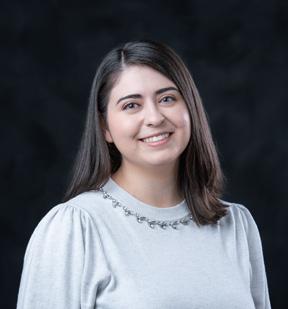
• Schools often accept new or gently used clothes, new hygiene items and school supplies for students in need. Some might also be interested in gently used, age-appropriate magazines and books or excess craft supplies for classrooms.
• Day cares and preschools may accept toys, books and kid-friendly art supplies.
• Police and fire departments sometimes accept stuffed animals or small toys for calming children during emergencies.
Other groups to consider include churches and other faith-based organizations, shelters, drug rehabilitation centers, children’s homes and elder care facilities. Even if they don’t have a formal program for dispersing donations, those associated with these groups often know of people in need who can use these items.
Unless the organization has a designated drop-off for donations or a list of accepted items available online, call in advance to see what it accepts and needs.
ALUMNUS.MSSTATE.EDU 15
"We talk them through what their participation will be like because it’s going to be a relatively involved process."
~ Caitlyn Nix
Dozier explained that having participants self-identify the problem is a big step to helping overcome the underlying issues.
“This isn’t about going in and throwing things away to give someone a clean slate to start from,” Dozier said. “In fact, research shows that if someone else cleans out a person’s home, they will tend to accumulate the same amount of clutter

Darby Mackenstadt said watching people come to terms with the “why” and begin to work through it has been rewarding. A native of Montana, she is enrolled in the MSU clinical psychology doctoral program. Through Project RECLAIM, she is completing clinical hours and exploring her passion for working with older populations.
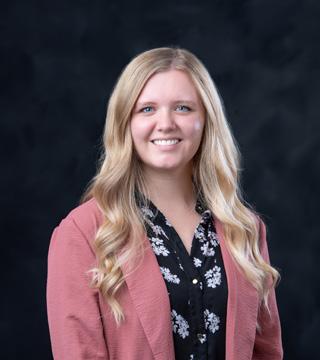
“It’s my job to be there with them
trust me to come into their homes and help them through the vulnerable moments.
“We don’t set expectations or assign homework; we work to help them feel confident in their ability to make decisions and handle their emotions,” she added. "It’s cool to watch them reclaim their space and feel better about themselves.”
Dozier’s study is still accepting participants. Anyone interested in volunteering can contact her at maryedozier@psychology.msstate. edu. Project RECLAIM is limited to those over 60 and within an hour of Mississippi State’s campus, but she is also enrolling those 18 and older for a pilot study exploring the same intervention in a younger population and over a shorter period of time. n
16 SPRING 2023
"It’s really rewarding to know that these individuals trust me to come into their homes and help them through the vulnerable moments . . . And it’s cool to watch them reclaim their space and feel better about themselves.”
Discoveries
~ Darby Mackenstadt
MSU INSTITUTE KEEPS WATER FLOWING
By James Carskadon
Whether it’s irrigating the fields that produce Mississippi’s worldfamous agricultural products or quenching the thirst of its citizens, the stakes of water resource management in the Magnolia State couldn’t be higher. That is why the MSU Water Resources Research Institute works across the state to improve the efficiency and manage the quality of agricultural and public utility water systems— all while educating the next generation of water scientists and engineers.
“Water is a finite resource and we are working to address state and regional water problems,” said Jason Krutz, director of the institute. “We are able to conduct research and fund competitive grants around the state. And through our connection with Extension, we can share the information we glean with the right people in government and agriculture to spread the use of best practices.”
The institute’s work has traditionally focused on studying agricultural water management, which includes both irrigating crops and managing the impact of pesticides and other chemicals in water. The agricultural research focuses on two regions—the Mississippi Delta, which uses water from the Mississippi River Valley Alluvial Aquifer to irrigate the crops that help feed the world, and the Black Belt Prairie region in east Mississippi.
Krutz said agriculture accounts for approximately 80-90% of the state’s water consumption. Declining aquifer levels in the Delta region have led to a focus on efficiency as MSU works with federal partners such as the U.S. Department of Agriculture and U.S. Geological Survey to help study and address the issue.
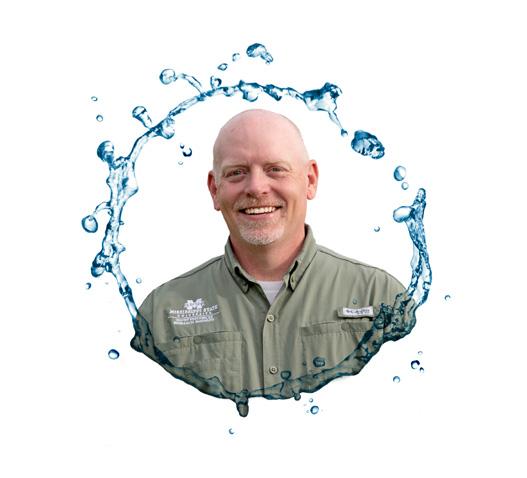
“There is a lot of interest in agricultural best practices that affect water quantity and quality,” Krutz said. “We’re helping producers irrigate at the right amount at the right time to maximize yield with as little water as possible.”
With a global demand for food that is only expected to increase, Krutz said irrigation’s ability to help stabilize yields will play an important role in ensuring a consistent supply of Mississippi-produced products like cotton, corn, soybeans, rice, peanuts and catfish. In the Black Belt Prairie region, WRRI researchers are assessing the feasibility and economic viability of increasing irrigation. With new precision agriculture tools emerging, the team can study how to use irrigation as efficiently as possible.
Jason Barrett, associate extension professor at WRRI, is the lead on the project.
“After what happened in Michigan, people are starting to pay more attention to the effects of lead,” Barrett said. “A lot more people started to realize that this is not just a problem in big cities but in communities of every size.”
Since the EPA-funded project launched in 2020, Extension has worked to share tips for reducing lead exposure with child care centers. The good news, Barrett said, is that the results so far indicate there are easy ways
“They’re projecting that we will need to feed more people with fewer resources,” Krutz said. “We want to be as good of stewards as possible of that resource. We are also looking at things like alternative production systems and cover crops and some of our younger scientists are using precision agriculture technologies to study soil health and water quality.”
TESTING WATER FOR THE YOUNGEST DRINKERS
The water crisis in Flint, Michigan, brought national attention to the issue of lead from old pipes contaminating water supplies. Among the biggest concerns was the detrimental impact of lead exposure in young children. MSU was selected by the Environmental Protection Agency to lead a statewide effort to test drinking water in child care facilities for lead.
to significantly reduce the amount of lead in water that is consumed.

“When we go into a school, we test all of the faucets in the building,” Barrett said. “Most of the time, the dominant area for lead is utility closets. It’s not necessarily water fountains or kitchen sinks, which is a good thing.
We’re also seeing that after you draw the first 250 milliliters of water, the lead either drops off completely or is vastly reduced," he continued. "That tells us that if you run your water for at least 30 seconds, you’re going to greatly reduce any type of exposure to lead in drinking water. We’re seeing these trends across every state, so one of the good things to come out of this project is developing some national best management practices.”

GETTING CLEAN WATER TO THE TAP
To ensure continued access to safe, clean and abundant water when turning on a tap,
ALUMNUS.MSSTATE.EDU 17
With a global demand for food that is only expected to increase, Jason Krutz said irrigation’s ability to help stabilize yields will play an important role in ensuring a consistent supply of Mississippi-produced products.
public utilities everywhere must navigate issues such as aging infrastructure and limited resources. In Mississippi that can mean navigating red tape, developing maintenance plans and securing the resources for necessary upgrades while also keeping prices manageable for consumers.
Barrett leads a research and outreach program that provides technical, financial and management support for water systems of every size across the state—from the largest municipalities to rural water associations with a few dozen customers and even private wells.
Barrett said smaller water systems have more financial constraints, which can make maintaining infrastructure difficult and lead to poor water quality. The institute regularly conducts rate assessments to help managers calculate a rate for customers that allows for proper maintenance.
“A lot of our work revolves around educating these groups, whether it is individuals on a municipal board or board members of a rural water association,” Barrett said.
With Mississippi’s rural nature, private wells serve as a primary water source for approximately 12% of Mississippi residents. While those residents enjoy the autonomy that comes from a private supply, the same issues that impact regulated water systems can impact well water. The institute works to educate
REDUCING LEAD EXPOSURE AT HOME
While water systems are routinely tested for lead, bacteria and other concerns, there are steps residents can take to ensure the water that comes from their tap is safe. Lead pipes and other plumbing hardware can cause lead to enter into a home’s drinking water beyond the recommended limit of 15 parts per billion.

The Water Resources Research Institute recommends flushing faucets each morning and using cold water for cooking and preparing baby bottles. Residents are also encouraged to clean the aerator’s in faucets regularly and be aware of water heaters as a potential source of lead.
private well owners about important steps they can take to ensure their water remains safe.
“From everything we see with testing on the private well side, about one third of those systems have bacteria, which is not good,” Barrett said. “For public water supplies, it’s less than half a percent, so there is a large
“I think we would be well suited to study water quality and quantity issues, as well as ecological issues beyond the agricultural fields and into wildlife and marshlands,” Krutz said.
The institute’s growth in recent years has allowed it to fund more graduate students
difference. Part of our role is providing that education and telling private well owners some simple steps they can take to ensure the safety of their water.”
CONTINUING TO GROW
Krutz plans to continue to expand the scope of the institute’s research and outreach programs as water issues impact ways of life. Beyond agriculture and public water systems, Krutz said he sees opportunities for growth in studying water quality as an environmental issue.
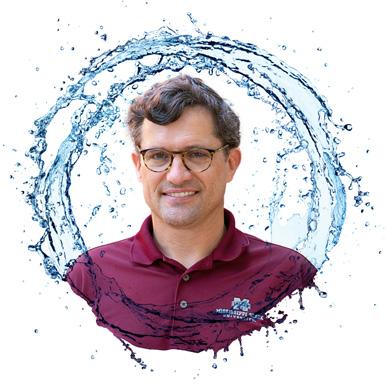
at Mississippi State, giving them the opportunity to conduct relevant research in conjunction with their coursework. Krutz said he is also excited about the younger scientists on the institute’s staff that are expanding its research capabilities.
“We’ll continue to train up-and-coming scientists and engineers studying wastewater and other issues, and we have some young scientists here, which allows us to really expand our agricultural footprint,” Krutz said. “That helps us bring in more master’s and doctoral students.” n
Because lead does not have a flavor or an odor, it can often go undetected. At-home tests are available for lead testing. Additionally, there are five Mississippi labs certified by the Mississippi State Department of Health to test water supplies, located in Hattiesburg, Pascagoula, Meridian, Ocean Springs and Stennis Space Center.
MSU Extension’s Healthy Homes Initiative has several resources available for anyone looking to reduce exposure to harmful chemicals in the home. To view those resources, extension.msstate.edu./hhi
18 SPRING 2023
Discoveries
“After what happened in Michigan, people are starting to pay more attention to the effects of lead. A lot more people started to realize that this is not just a problem in big cities but in communities of every size.” ~ Jason Barrett
IT ALL STARTS WITH AN IDEA.
NOW, MORE THAN EVER, THE WORLD NEEDS GREAT IDEAS … NEW WAYS OF THINKING.
That’s why we, at Mississippi State University, are ringing in a new era of education and research that’s focused on what matters most … providing an environment in which students can understand today’s most-pressing challenges and develop the skills to solve them.

The time for moving forward is now . . . and it all starts here.
TAKING CARE OF WHAT MATTERS
WWW.MSSTATE.EDU
Priyadarshini “Priya”
Basu is the recipient of the 2022 Early Career Professional Award from the Southeastern branch of the Entomological Society of America—the world’s largest entomological society. A faculty member in the Department of Biochemistry, Molecular Biology, Entomology and Plant Pathology, her research focuses on bee physiology, nutrition, molecular ecology, neuroethology and toxicology, as well as understanding and mitigating the impacts of various stressors on bee pollinators.
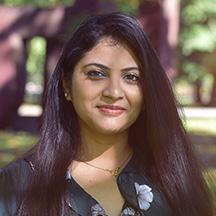
Courtney Thompson, an assistant professor, received $6,000 from the National Endowment for the Humanities for archival research on the history of medicine in the 19th century.
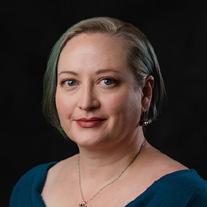


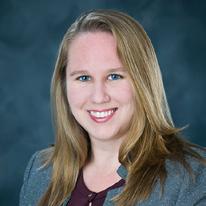
Ganesh Karunakaran, a Mississippi Agricultural and Forestry Experiment Station aquaculture economist and associate research professor, received the prestigious Distinguished Early Career Award from the U.S. Aquaculture Society, a chapter of the World Aquaculture Society. He is based at MSU’s Thad Cochran National Warmwater Aquaculture Center in Stoneville.

Daniel Petrolia, an agricultural economics professor and scientist in the university’s Mississippi Agricultural and Forestry Experiment Station, along with colleagues from The Nature Conservancy, was awarded a Mississippi-Alabama Sea Grant project to compare the dollar amount invested in these coastal restoration projects to the benefits they provide. With a tentative completion date of January 2024, the study’s scope includes large-scale, high-investment coastal restoration projects—mostly living shorelines and oyster reef projects—implemented between 2015 and 2020.
J. Alex Thomasson, head of Mississippi State’s Department of Agricultural and Biological Engineering is the 2022-23 presidentelect of the Council for Agriculture Science and Technology.

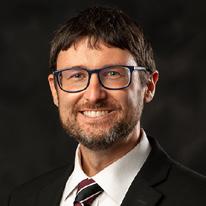
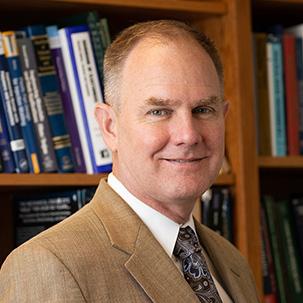
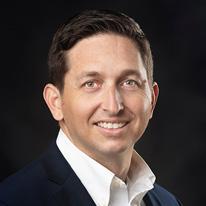
Zully E. ContrerasCorrea, a Mississippi State postdoctoral associate in the Department of Animal and Dairy Sciences, was one of only 12 individuals nationwide being recognized with the 2022 Young Scholar Award from the American Society of Animal Science.
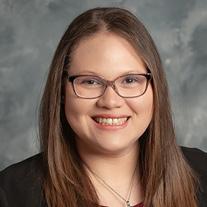
Vicky Montiel-Palma, an assistant professor of chemistry, received a National Science Foundation CAREER Award totaling more than half a million dollars to research new chemical methods for removing harmful contaminants from petroleum and feedstocks.
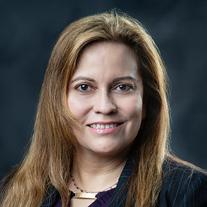
Lourdes CardozoGaibisso, an assistant professor in MSU’s English department, is collaborating through a $1.2 million grant from the National Institutes of Health to advance immersive learning environments for Latine multilingual learners. The five-year project focuses on creating spaces for LML students to engage with science inquiry experiences using features of translanguaging—the practice of maximizing communication using more than one language within a classroom lesson.
Mississippi State faculty member Tara E. Sutton is serving as senior personnel on a five-year National Institutes of Health grant investigating the sexual assault experiences of sexual and gender minority men and expanding insight into victimization and related outcomes. An assistant professor in the sociology department and an affiliated faculty member
in the Gender Studies and African American Studies programs, Sutton is a co-investigator for the $4,369,668 grant.
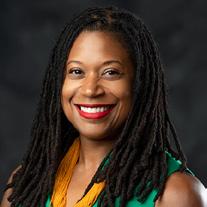
Daniel Stevens, a longtime symphony orchestra performer, conductor and faculty member is Mississippi State’s new head of the Department of Music. He comes to MSU after serving as a tenured professor at the University of North Alabama, where he also was director of orchestral studies and an applied viola studio teacher. While at UNA, he established partnerships with Disney Concerts, Film Concerts Live and several Grammy award-winning artists. He also led the Shoals Symphony Orchestra, an external nonprofit organization in Florence, Alabama, which generated approximately $2 million over an eight-year span.
Anna Osterholtz, an associate professor in the Department of Anthropology and Middle Eastern Cultures, is part of a team of scholars featured in Science—the premier journal for researchers published by the American Association for the Advancement of Science—for research tying together genetic data and linguistic movement as people migrated across early civilizations.
Jamese Sims, an accomplished atmospheric scientist with extensive U.S. government program management experience, is now Mississippi State’s deputy director of the university’s Northern Gulf Institute and strategic adviser for federal partnerships.
Doyl E. “Ted” Dickel, an assistant professor in the Department of Mechanical Engineering, received the NSF’s Faculty Early Career Development (CAREER) award, which will provide a $682,571 grant to support his research. Dickel is developing machine learning models that can incorporate the magnetic properties of iron and cobalt when modeling potential materials for use in items such as electric motors and steel.
20 SPRING 2023
Discoveries
Mississippi State University is leading a nationwide project with the goal of better preparing educators for teaching in rural settings. With $2.4 million in support from the National Science Foundation, the project titled “Investigating STEM Teacher Preparation and Rural Teacher Persistence and Retention” brings together 14 universities to address workforce challenges in school settings, particularly for STEM teachers in rural areas.
Mississippi State University research and outreach has contributed to a 59% productivity increase over the past decade in a crucial stage of catfish farming, a new multistate research survey shows. Encompassing Mississippi, Arkansas and Alabama, the survey area accounts for 93% of U.S. catfish production. Mississippi ranks first in U.S. catfish production with $232 million in annual production value across 34,000 acres.

With the goal of developing an automated, reliable method with less human error than manual inspection, MSU scientists with the Mississippi Agricultural and Forestry Experiment Station are conducting research on the feasibility of sinusoidal-illumination imaging, or SII technology, as that novel tool. The project is funded by the U.S. Department of Agriculture’s National Institute of Food and Agriculture.
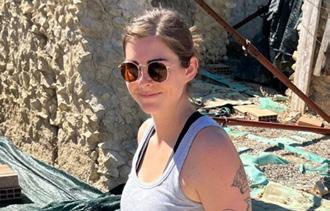
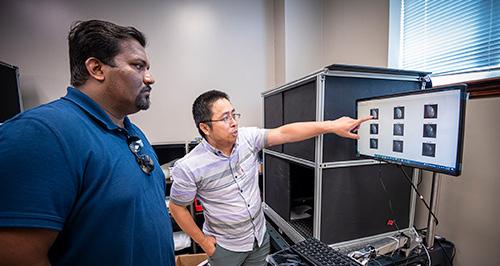
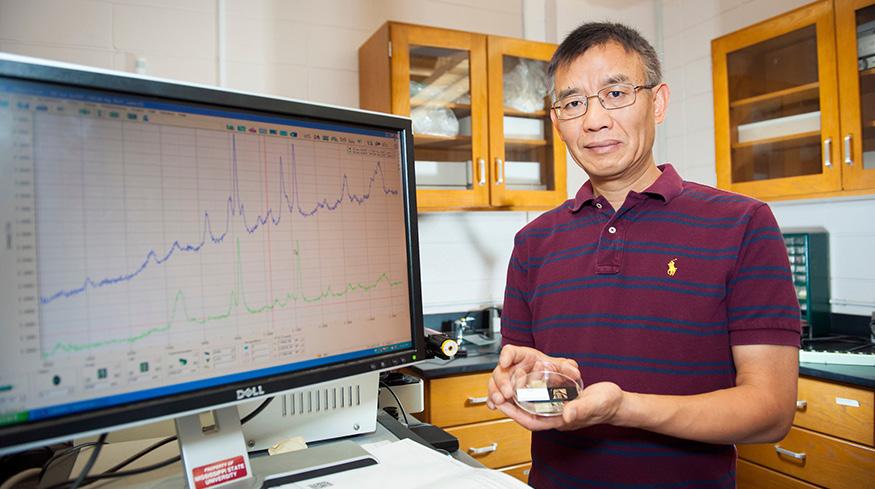
Mississippi State’s Eric Anderson, a graduate student in the MSU Department of Anthropology and Middle Eastern Cultures, is receiving a $50,000 grant from the SMART Business Accelerator Initiative to continue developing a mobile application for his Portable Osteometric Device, a new tool created to ensure the efficiency of human skeletal remains analysis and measurement. Anderson collaborated with Sierra Malis, a fellow graduate student in anthropology, to form a new company, Advanced Research Collection Technologies LLC, or ARC Tech, to continue improving the POD and disseminate it to the anthropological community.
The U.S. Department of Agriculture’s National Institute of Food and Agriculture Southern Regional Aquaculture Center funded the research in response to requests from aquaculture producers in the region. MSU scientists worked with colleagues from Virginia Tech, Auburn University and the University of Arkansas at Pine Bluff to conduct the surveys and analyze the data.
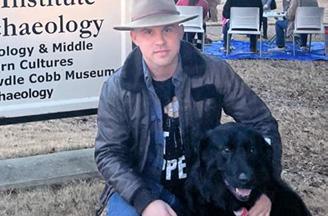
ALUMNUS.MSSTATE.EDU 21
Professor Dongmao Zhang of the Department of Chemistry is the principal investigator of a $390,000 National Science Foundation grant to develop an optical spectrometer to study materials’ spectral chemical sizes, shapes and chemical compositions, as well as their optical properties. The research could lead to new discoveries about materials and their makeup.
Mississippi State scientists are applying powerful imaging technology that detects subsurface bruising in fruits as a potential way to identify and grade meat quality defects in poultry. Anuraj Sukumaran (left), assistant professor in the Mississippi State Department of Poultry Science, and Yuzhen Lu, assistant professor in the MSU Department of Agricultural and Biological Engineering, study imaging technology that detects subsurface defects in poultry

22 SPRING 2023 State SNAPSHOT
BRINGING THE GOLDEN EGG HOME:
The Dawgs’ defense held Ole Miss to its lowest rushing yardage of the 2022 season and allowed only four of 17 third down conversions to help return the Egg Bowl trophy to the Mississippi State campus. With a final score of 24-22, it was Mike Leach’s first Egg Bowl win and the last game he would coach before his untimely death in December. Photo by Kevin
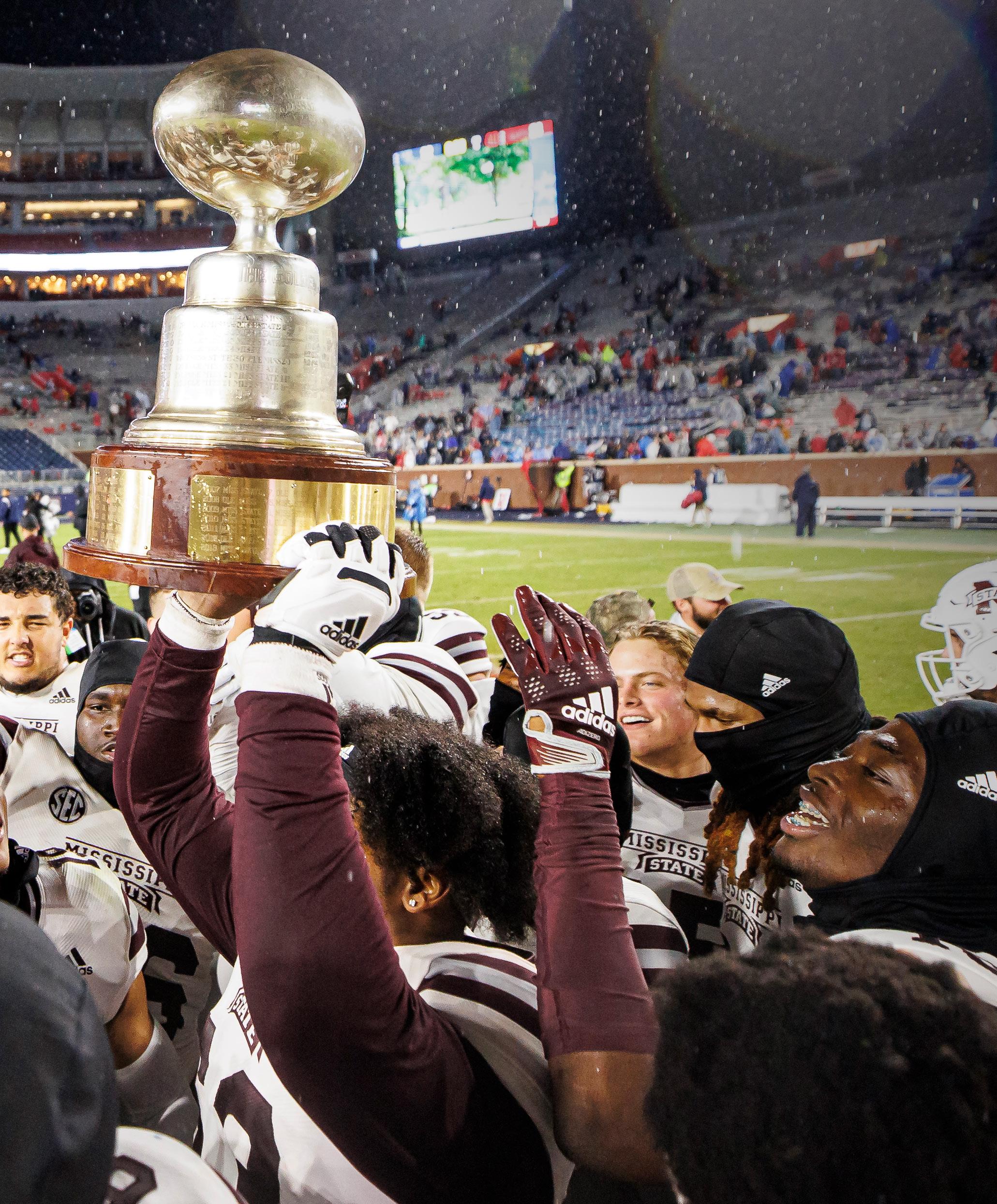
ALUMNUS.MSSTATE.EDU 23
Snyder
FAIR WINDS, CALM SEAS to college football’s most famous ‘pirate’
By Sid Salter, Photos by MSU Athletics
Having an opportunity to spend a little time with Mike Leach and experience the world through his filters — or lack of them — was a privilege for which I will always be grateful.
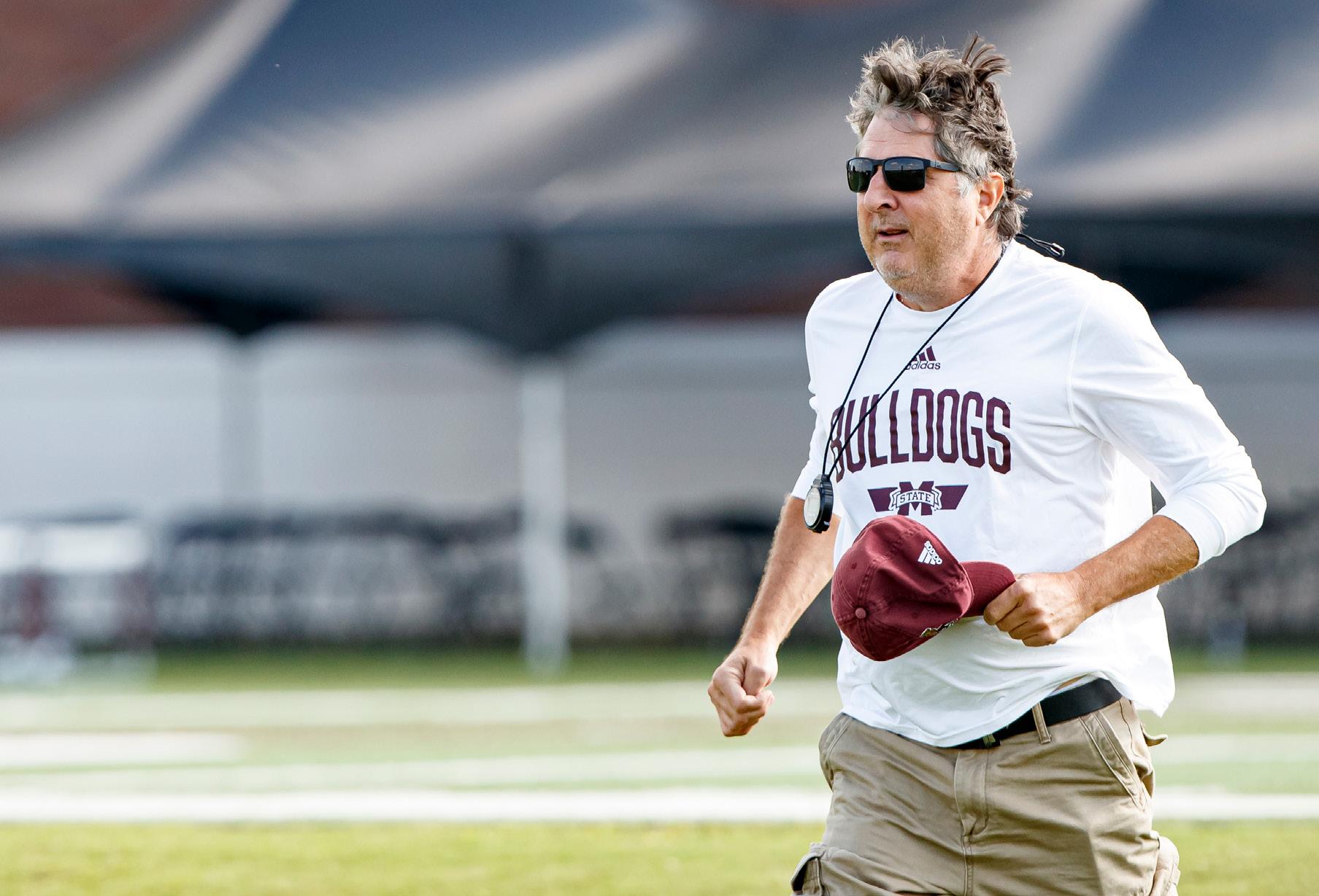
The storied coach’s untimely death from complications of heart disease Dec. 13 at University of Mississippi Medical Center in Jackson brought a jumble of images to my mind. I genuinely liked Coach Leach and enjoyed my encounters with him a great deal.
From the day of his arrival on the Mississippi State University campus in January 2020, I was nervous every time Leach was in front of an open microphone or in sight of a cell phone video operator — which was virtually constant. By reputation, he was brash, unpredictable and given to freely sharing his opinions.
And he lived up to his billing — Leach was all of those things. I spent parts of both good days and bad days with him. On both ends of that continuum, he held fast to who he was and what he believed and let the chips fall.

24 SPRING 2023
Leach’s intelligence was palpable. He was not only able to discuss almost any subject, but he did so armed with the product of his voracious curiosity. As one would expect of a lawyer, Leach was really good at argument and was rather unflinching in debate.
A good day I spent with Leach came at my hometown Neshoba County Fair in 2021. The institution invited all three coaches from Mississippi’s biggest football programs—MSU’s Leach, Lane Kiffin of Ole Miss and Will Hall from Southern— for a roundtable discussion at the Founder’s Square Pavilion before a large live crowd and a statewide radio audience.

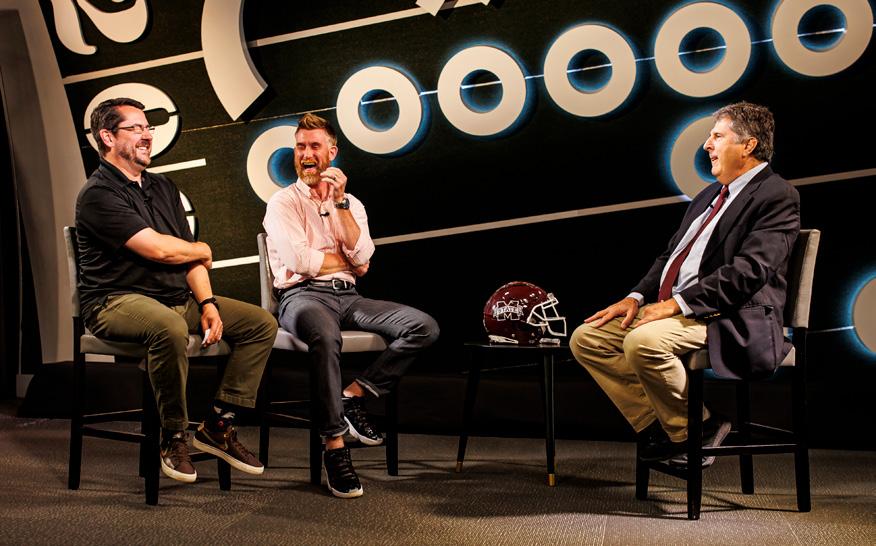

Leach and Kiffin had an obvious friendship based in mutual respect and familiarity. Both were generous to the younger Hall in the appearance. But Leach made the rounds at Neshoba because the whole vibe of the place fit him. He located the Minshew cabin and was embraced by the family of his former Washington State quarterback Gardner Minshew, now the backup quarterback of the NFL’s Philadelphia Eagles.
On the day, Leach indulged an inordinate number of photos, handshakes and impromptu
visits. When the time came to leave the fairgrounds, he didn’t want to go. I drove him to the Philadelphia municipal airfield and as he exited the car, he said: “Can you take me back out there after this alumni thing tonight is over?”
Particularly in the first year on campus, Leach walked a lot. I would see him coming in cargo shorts, a Hawaiian shirt and a ball cap with a cup of coffee. He talked to students, faculty or staff and usually not about football.
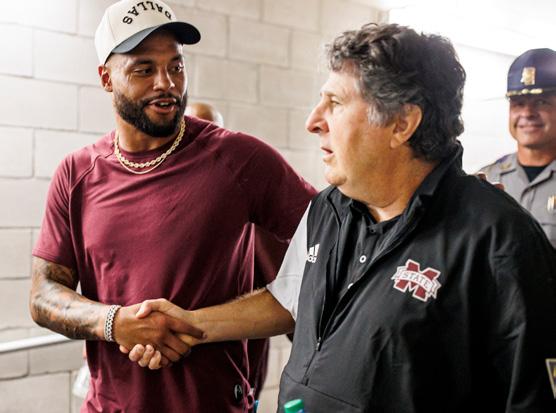
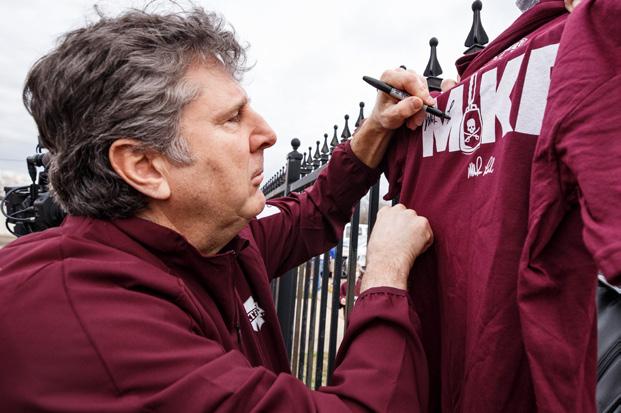
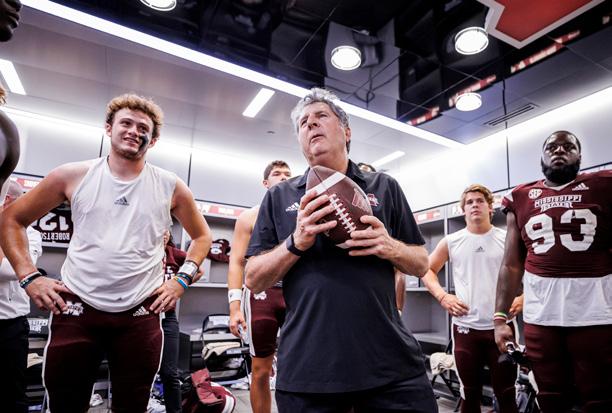
Like a lot of Bulldogs, one of the saddest aspects of Leach’s sudden death to me was the fact that after a really tough 2022 schedule, 2023 seemed to promise more opportunity for a special season — a season that would see Leach begin to receive the recognition his career deserved in the nation’s premier football conference.
The “Air Raid” had proven effective in the Southeastern Conference. Leach had proven effective in the SEC and was as individually captivating and iconic as he had been in the Big 12 and the PAC 12. The “Pirate” had found safe harbor in north Mississippi—and here he will be missed. n
ALUMNUS.MSSTATE.EDU 25
Leach’s intelligence was palpable. He was not only able to discuss almost any subject, but he did so armed with the product of his voracious curiosity.
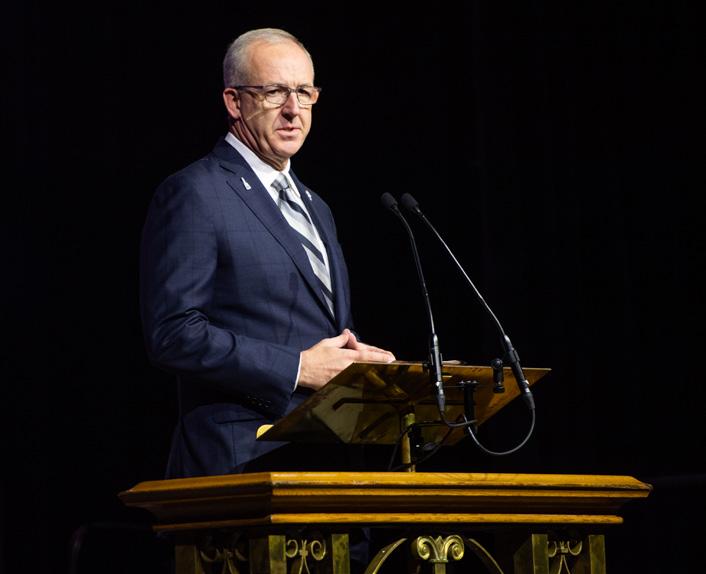
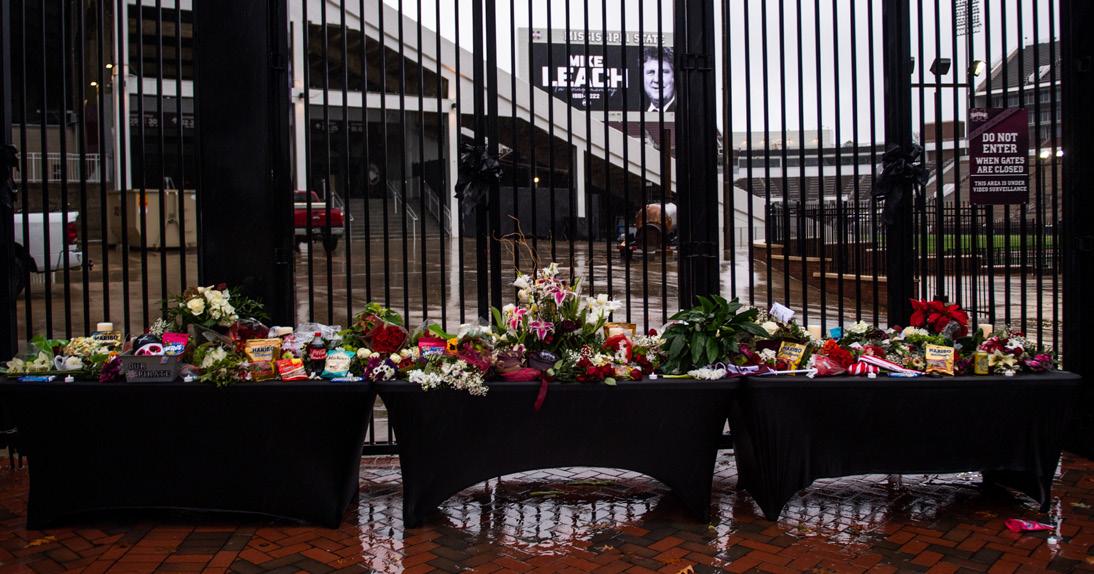
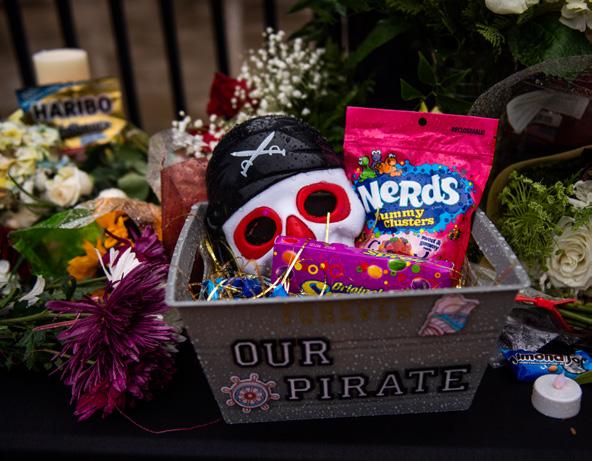
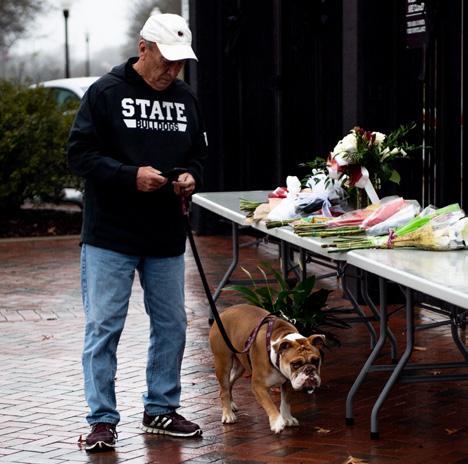
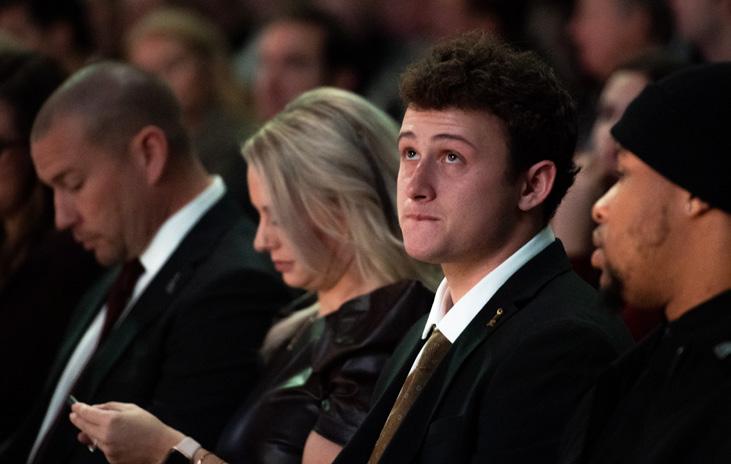
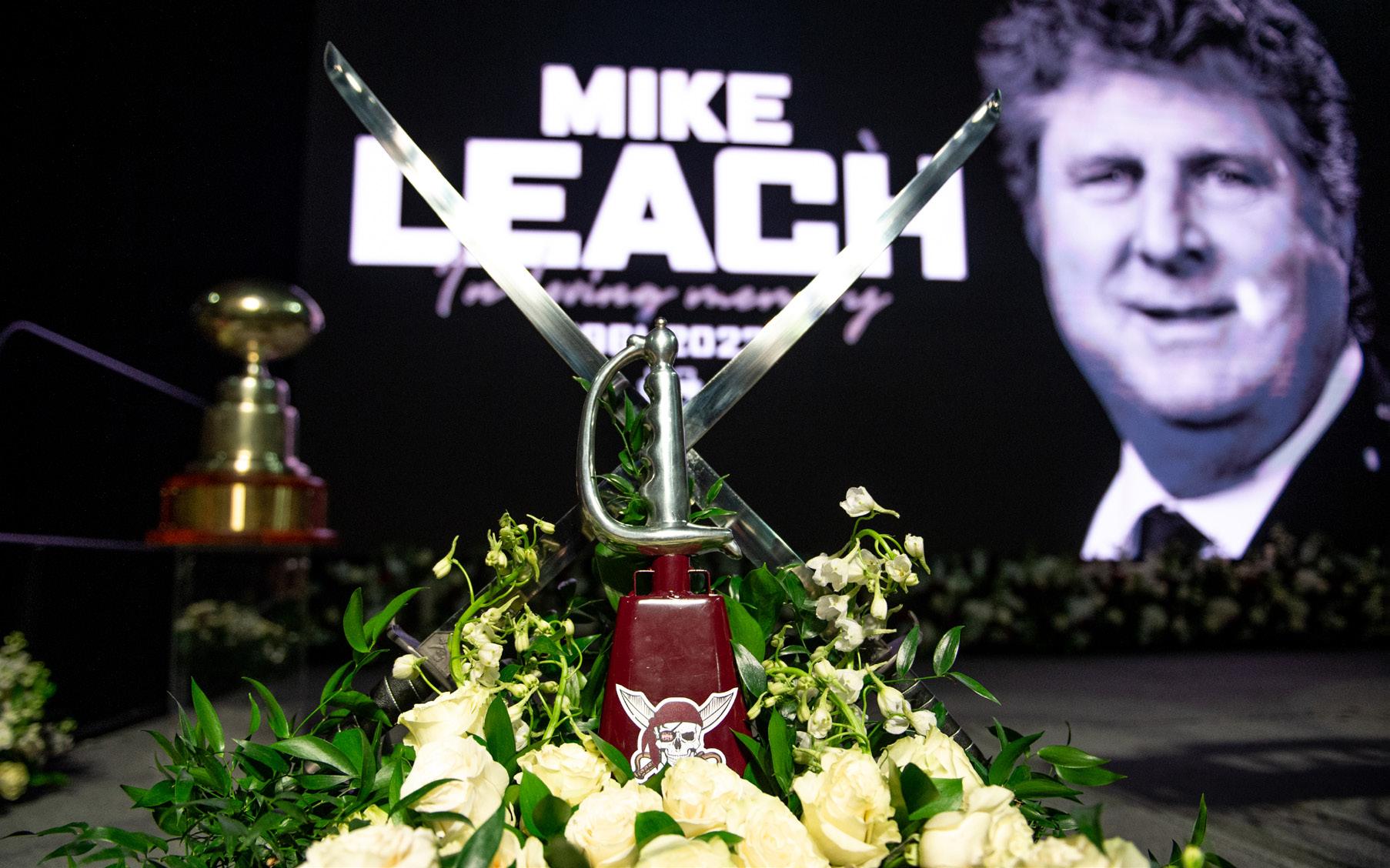
26 SPRING 2023
MSU HONORS COACH LEACH
By Allison Matthews, Photos by Grace Cockrell, MSU Athletics
Thousands of Mississippi State friends and college football fans gathered at Humphrey Coliseum Dec. 20 to remember and honor Mike Leach, known as one of the sport’s greatest offensive innovators.
The memorial included stories about everything from his larger-thanlife personality, humor and love of conversation to his coaching legacy and signature “Air Raid” offense.
MSU President Mark E. Keenum said Leach was a “humble and caring individual” who “positively impacted the lives of many, many people.”
“As I got to know Mike, I came to realize his passion for education and for life-long learning. Mike was always ready to learn something new—and to share it with anyone who would care to listen. And there were always a lot of people who wanted to hear what he had to say,” he said.
Keenum said Leach’s passion for learning meant “he could have been successful at anything he wanted.”
SEC Commissioner Greg Sankey recalled Leach describing the values learned from difficult situations and how football presents many adversities that have to be overcome—and how this challenge also presents the “fun” of football.
“I also watched him talk with intent about the value of education and the importance of graduating people who are part of a college football team,” Sankey said. “I am grateful that Mike chose to be a part
of the Southeastern Conference these past three years.”
The list of distinguished speakers paying tribute to Leach included former and current football coaches Hal Mumme, Bob Stoops and Lincoln Riley; players Gardner Minshew, Gabe Marks, Will Rogers and Nathaniel Watson; longtime friend and agent Gary O’Hagan; USC senior associate athletics director Dave Emerick, who formerly served in that role at MSU and worked with Leach for 18 years; as well as Voice of the Bulldogs Neil Price.
Matthew S. Holland, elder and general authority seventy of The Church of Jesus Christ of Latter-day Saints, spoke of Leach’s faith and love for others.
Elder Holland said, “Mike could, in an instant, cut through the pressures and limelight of his highprofile life and address someone, often a stranger in need. For Mike, this was not just a personality trait, it was an exercise of his faith.”
Leach was named MSU’s 34th head football coach in 2020 after leading the football programs at Texas Tech, Washington State and Iowa Wesleyan universities. He compiled a 158-107 record, guided his squads to 19 bowl games, had seven seasons with nine or more wins, won two conference division titles, became the winningest coach in TTU history and set records for bowl appearances at both TTU and WSU. During 10 of those 21 seasons, Leach’s passing attack led the FBS—six at TTU and four at WSU. n
MIKE'S LAST GIFT
In the time since Mike Leach’s death, story after story has come to light about his generous spirit. One of his last selfless acts came in the form of organ donation facilitated by the University of Mississippi Medical Center—the state’s only transplant program.
“Mike was a giving and attentive husband, father and grandfather. He was able to participate in organ donation at UMMC as a final act of charity,” his family said in a statement released by Mississippi State.
The Mississippi Organ Recovery Agency, which helped coordinate the Leach donation, reports that a single donor can save as many as eight lives through organ donation and heal 75 or more through tissue donation.
“Organ, eye, and tissue donation is a final act of charity that allows us to live on through others, explained Kevin Stump, president and CEO of MORA. “It provides a second chance for the more than 100,000 people across the United States living in poor health and in desperate need of a transplant.”
Mississippi alone has 1,300 children and adults on the transplant waiting list, with a new name added every 9 minutes. Nationwide, 17 people die each day waiting on a transplant that did not come in time.
Living donors can help save lives through liver, kidney and bone marrow transplants. Those who choose to donate after death can not only provide life-saving organs but also help restore someone’s sight by donating corneal tissue or provide healing skin grafts through tissue donation.
“MORA encourages everyone to follow Coach Leach’s example,” Stump said. “Have the conversation about donation with your loved ones and make your wishes known.”
To learn more visit www.msora.org for information about the Magnolia State’s donation process or see the website of its parent organization, Donate Life America, at www.donatelife.net
Registering to be an organ donor is free and easy at www.registerme.org.
ALUMNUS.MSSTATE.EDU 27
“As I got to know Mike, I came to realize his passion for education and for life-long learning.
Mike was always ready to learn something new—and to share it with anyone who would care to listen. And there were always a lot of people who wanted to hear what he had to say.”
~ President Keenum
Zach Arnett wastes neither time nor opportunity. After all, he says, “We’re in a results business.”

Mississippi State wasted no time naming Arnett head coach for Bulldog football. The program is thrilled with early returns. Arnett is thrilled with his chance to write a longer and larger story.
“I can’t put into words how this university has changed the lives of myself and my family,” Arnett said. “I will forever be indebted to this institution for the opportunity.”
Mississippi State is already indebted to its 35th head coach. He secured a top-25 recruiting class, ReliaQuest Bowl victory, exciting assistant hires and staffing additions all within his first weeks as top Dawg, but Arnett won’t claim credit.
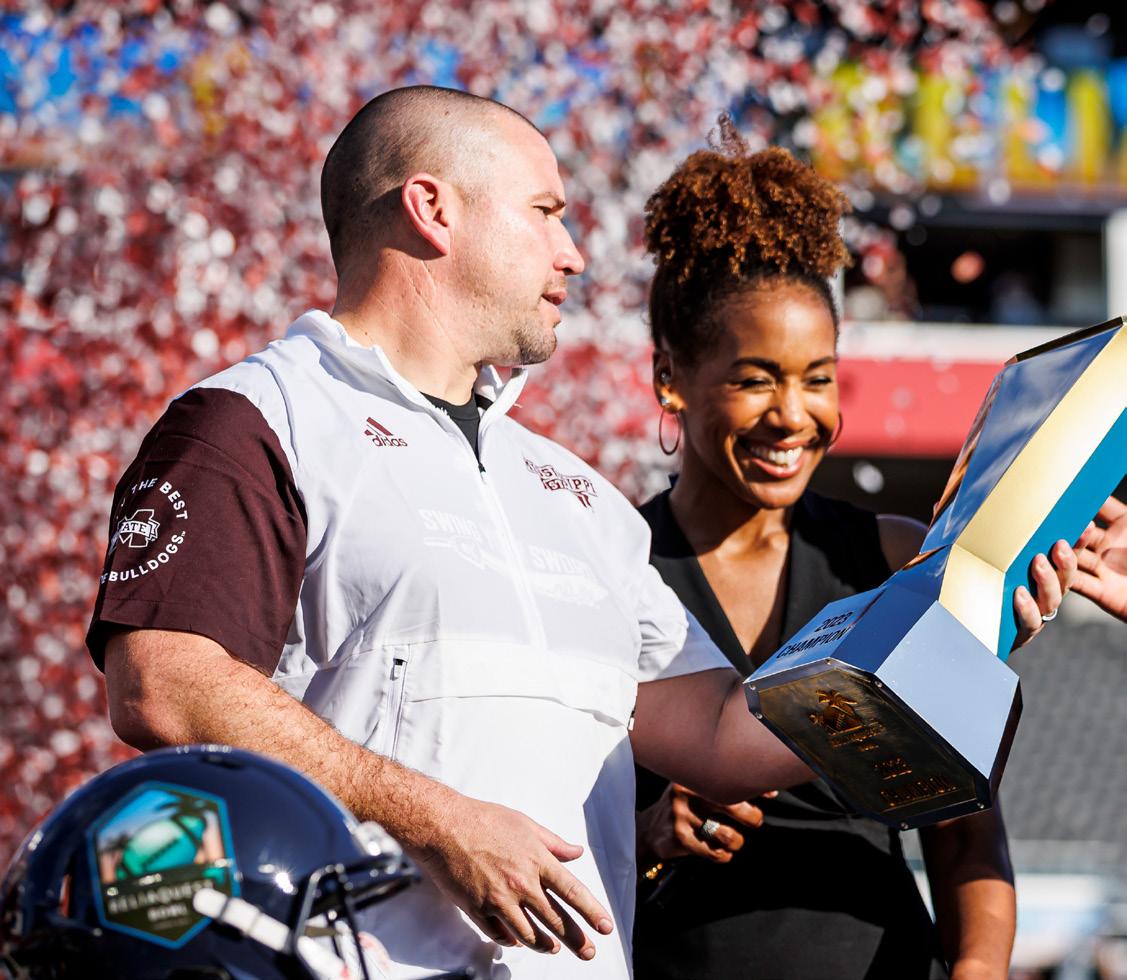
“We’ve got great guys in our program,” Arnett said. “A lot of times too much of the story is on coaches.”
But coaches and coaching count, and Mississippi State is counting on Arnett to write quite a story of his own. He already has whole team buy-in, according to linebacker Jett Johnson.
“All the offensive guys love him,” Johnson said. “And obviously everybody on defense
PICKING UP THE BANNER
Arnett takes helm of Bulldog football
By David Murray, Photos by MSU Athletics
loves him, too. We all think he deserves the opportunity, and we want to play very hard for him.”
When offensive players mauled in last year’s practices by the Arnett-led defense love him, it is just one piece of evidence that Mississippi State made the correct call under stressed circumstances. Two days after the passing of Mike Leach, and without a permanent athletic director in place, the university promoted the late coach’s third-year coordinator.
President Mark Keenum affirmed need for program stability and continuity. But this was no hasty pick to finish a season, complete recruiting and play a bowl game. As important as all that was, Mississippi State looked to the future and to someone college football folks recognized as a head coach of the future.
“I have tremendous confidence in Zach Arnett’s leadership and believe he is uniquely positioned to continue the progress Coach Leach brought to our program,” Keenum said. “He brings great drive and intensity to the task.”
It’s hard to imagine a tougher task than what Arnett accepted. The loss of Leach one day into bowl practice, barely a week before
signing day, would have challenged seasoned head coaches. Arnett has been in the business only one decade, the last five seasons as a coordinator. But Mississippi State read rightly his potential as he successfully navigated through the crisis and into the next phase of Bulldog football.
“He is a tremendous young coach who understands the culture of Mississippi State and will continue to elevate it in this new role,” interim athletic director Bracky Brett said at the time of the hire.
Arnett is in fact a young head coach at any level, not just Power Five football. He will turn 36 in September. Still, everyone in the college game was tracking him, including ESPN. The network tabbed Arnett to a list of 45 Minority Coaches Under 45 and predicted, “Arnett will soon be up for head coaching jobs in a market warming to defensive coordinators.”
Arnett is the first defensive coach to become head coach for the Bulldogs since Jackie Sherrill, who cut his coaching teeth on defense in 1991. He is also the first internal promotion since Bob Tyler in 1973, whose tenure will be noted by Veteran fans as the beginning of this program’s rise to respectability half a century ago.
28 SPRING 2023
Zach Arnett holds the ReliaQuest Bowl trophy following Mississippi State’s 19-10 defeat of the University of Illinois in the Jan. 2 game.
Arnett’s association with a famed name from successful seasons past is one Bulldog fans also noted. He played, then worked for defensive guru Rocky Long, an acolyte of SEC legend and former MSU defensive coordinator Joe Lee Dunn. Maroon and White faithful recognized Dunn’s signature 3-3-5 system in what Arnett brought to Scott Field.
It was that defensive scheme that intrigued Leach and pushed him to inquire if New Mexico-native Arnett would be interested in an SEC opportunity. It was fortuitous timing as Arnett had accepted but not yet signed a deal with Syracuse.
“I’m probably lucky Coach Dunn is retired and Coach Long didn’t want to give it a go here,” Arnett joked at the time of his hire in January 2020. “You guys probably would have liked him better.”
That might have been true for the media, but the team? It took no time at all
“offering” opinions in offensive recruiting discussions, for instance.
“Some would say I gave it way too freely. Certainly out of line at times,” he said.
Out of line or not, Leach respected Arnett’s passion and opinion alike, and offensive personnel became big admirers as well. And for the “Defender Dawgs?” It was love at first bark. So, if they are a little extra thrilled that their former position coach is now in charge, it’s natural.
“He’s very deserving, he’s worked his tail off ever since he’s been here,” Johnson said. “He’s probably had numerous opportunities to go somewhere else, but he stuck it out with us. Now he’s reaping the benefits of that.”
Those benefits include his four-season contract at $3 million per, a bargain in the big-bucks SEC. It is a long way and far cry from his gridiron beginnings as a linebacker and team captain for Long at New Mexico. Rather ironically, he signed out of La Cueva High in Albuquerque to play college baseball. As a catcher, of course.

It’s no wonder that when he finally made it to Dudy Noble Field that first spring in Starkville, it was a revelation for the former backstop.
“There were 13,000 in the stands,” Arnett recalled. “I must have sent a million pictures to all my family and friends saying, ‘Hey, you’ve never seen anything like this!’”
personally. I hope to be half the leader those guys have been.”
What Arnett is, is completely Mississippi State. On the post-game field, watching the new coach watch his celebrating squad, Keenum agreed.
“Arnett already is a Mississippi man through and through,” he said.
The hard-work, hard-nosed ethic fits the program, the university, the state and the future of football. Mississippi State’s wisdom, luck or whatever in locking Arnett down when competitors such as LSU, Notre Dame, Texas, Oregon, Auburn and others inquired is confirmed.
Now, Arnett is in charge of a proud program that is all the prouder for its aggressive top Dawg. Quarterback Will Rogers feels the coach’s first full year is setup for great things.
“Win nine games, be a top-20 team and with the guys we have returning, I think we’re pretty excited where this program is going,” Rogers said.
Beating Illinois in the closing seconds of the ReliaQuest Bowl was a fitting bow on Leach’s legacy, and an explosive start to Arnett’s tenure. Even while savoring his first W at the lead, the new coach knew what note to strike with Bulldog Country.
“Obviously there’s a particular game on Thanksgiving Day we prioritize over all others,” Arnett reminded.
for them to sign-off on this hire and see bigger things beyond.
“Just the way he carries himself and the way he goes about his business,” Johnson said. “He’s strictly business, very little play.”
That all-business, no-play image is cemented by Arnett’s sideline demeanor. Many an SEC side judge knows all too well that he doesn’t play games. And now that he is head coach, he can vent bador no-call wrath for both sides of the Bulldog ball.
Arnett’s passion for performance, and results, extends into all areas. He admits
Despite his appreciation for America’s pastime, baseball was not to be his calling. Before his freshman fall, he was given a football scholarship. Four years, 47 games and two bowls later he had over 200 tackles. Arnett led the NCAA in forced fumbles in 2008 as a senior and was an Academic All-American who earned degrees in history and political science.
When Long took over at San Diego State, Arnett was hired first as a graduate assistant and then linebackers coach. By 2018 he was coordinating the entire defense. But don’t think he was only exposed to coaching that side of a squad. A decade with Long and three years with air raid-master Leach rounded this resume well.
“For a young coach to spend time under them and just observe and listen, those lessons will stay the rest of my life,” Arnett said. “Not only professionally but
All-American Emmanuel Forbes said he believes Mississippi State prioritized the right man to direct the Dawgs through tragedy and transition.
“It just shows that he’s a great coach, and he’s going to be able to be a coach for a long time,” Forbes said.
To Arnett, the time is now.
“We still have work to do, and we have to get results,” Arnett said. “That’s the mentality that exists here. It’s what makes this a tremendous institution, a tremendous place to work.”
Thanks to that debut game bowl win, Arnett takes a 1-0 record into his head coaching career.
“A great start to the Arnett era,” Johnson said. “And hopefully he can stay undefeated for a long time.”
Such results fit Mississippi State’s ambitions with Zach Arnett taking care of Bulldog business. n
“We still have work to do, and we have to get results. That’s the mentality that exists here. It’s what makes this a tremendous institution, a tremendous place to work.” ~ Zach Arnett
NEW TOP DAWG
MSU welcomes Zac Selmon as athletics director
By Sid Salter & Harriet Laird, Photo by Grace Cockrell
Mississippi State University President Mark E. Keenum announced Zac Selmon—the scion of a legendary college football family and a rising star in athletics administration—as MSU’s new director of athletics. The appointment follows a national search.
“In seeking a new director of athletics, we talked with some of the nation’s very best athletics department administrators,” Keenum said. “After an extensive review of those outstanding candidates, I am convinced that in Zac Selmon we found an outstanding leader with a servant’s heart–a leader who has extensive experience at two Power Five universities and who understands and shares our relentless commitment to achieving and maintaining excellence in our Bulldog athletics programs–all of them.”
Keenum added that, as a son and nephew of the famed “Selmon Brothers”—the University of Oklahoma’s Lucious, Lee Roy, and Dewey Selmon of Eufaula, Oklahoma— Zac Selmon “grew up with powerful examples of winning at the highest levels and doing so with a deep commitment to sportsmanship and scholarship. Winning and winning the right way is in Zac Selmon’s DNA.”
Selmon’s “servant’s heart” and his relevant Power Five athletics administration experience were key components in the appointment of Selmon, Keenum explained.
“We’ve talked about the Selmons and their great football legacy. Zac’s experience as a successful student-athlete at Wake Forest is an important component as is his relevant athletics administration experience,” Keenum
said. “But I think my focus during the interview process was how seamlessly Zac’s values of family, faith and character align with those of Mississippi State University.”
With his extended family, Selmon has been an active part of a multi-generational effort to bring help and healing to those at home and abroad who struggle with poverty, homelessness, lack of education and, for many, a lack of hope. He and his sister Shannon
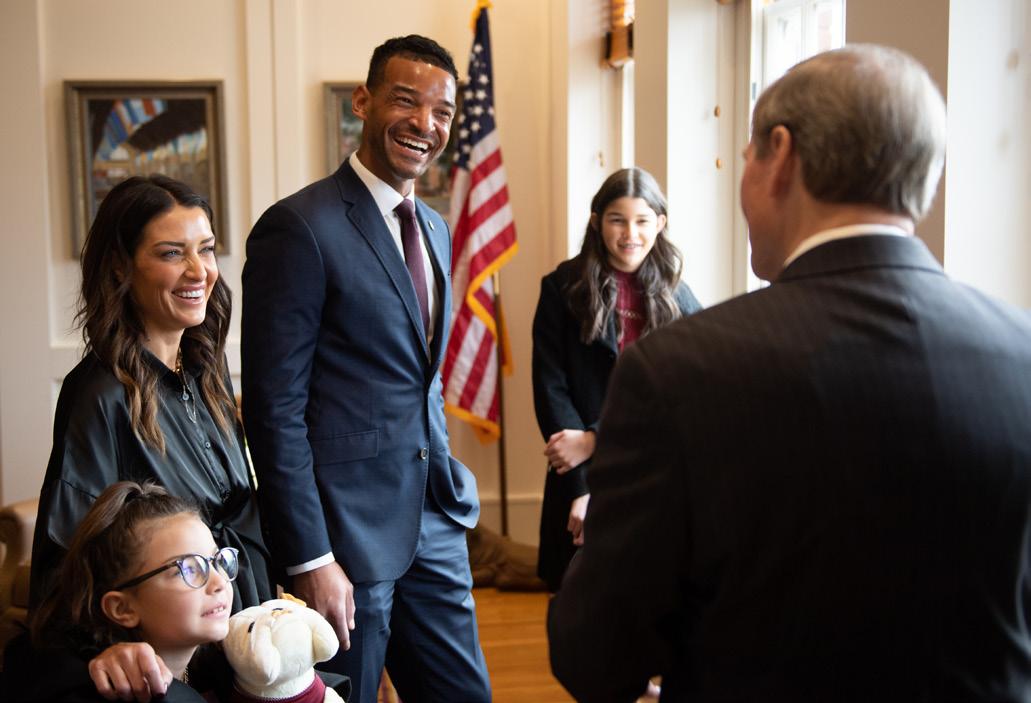
associate athletics director for administration and development, Selmon led the fundraising strategy for OU Athletics’ $200 million capital campaign, setting annual giving records in 2018 and 2019. In 2020, philanthropic giving reached its highest in university athletics history.
“This is an incredibly exciting opportunity and a professional journey that I’m ready to begin,” Selmon said. “I want to thank Dr. Keenum for his confidence in me. I’m grateful to my family for preparing me from an early age to work hard and trust in God. I have a deep and abiding respect for Mississippi State’s traditions and the role this university plays in taking care of what matters in this state and nation. My family and I are eager to join the Bulldog family.”

are co-founders of the Shine Foundation, a nonprofit dedicated to serving those in need, especially children, at home and abroad.
Selmon accepted the position as MSU’s 18th athletics director after having an accomplished career at the University of Oklahoma on the executive leadership team. As deputy athletics director for external engagement and advancement, he led OU Athletics’ stakeholder relations including the Sooner Club and annual giving. He provided sport oversight for football and led strategic communications, marketing, licensing, multi-media rights, brand management and fan engagement.
In his previous five-year position as senior
Along with his celebrated family, Selmon has learned from and worked for two well-known and respected university athletics directors—North Carolina’s Bubba Cunningham and OU’s Joe Castiglione. He served as associate athletics director and special assistant to Cunningham at UNC before heading west to OU to join Castiglione as senior associate athletics director, chief of operations, in 2015.
At Wake Forest University, Selmon not only became a four-year starter at tight end for the Demon Deacons but also a dean’s list scholar graduating in 2007 with a degree in religion and international studies. He holds a 2010 OU master’s degree in education with an emphasis in intercollegiate athletics administration.
Selmon and his wife Rachel have two daughters, Shayne and Rylee. n
30 SPRING 2023
"I have a deep and abiding respect for Mississippi State’s traditions and the role this university plays in taking care of what matters in this state and nation." ~ Zac Selmon
Mississippi State University President Mark E. Keenum welcomed new MSU Athletics Director Zac Selmon, wife Rachel and daughters Rylee and Shayne to Lee Hall prior to the press conference naming Selmon as MSU’s 18th leader of the program.
MSU continues to boost Mississippi’s advanced technology, manufacturing economies
By James Carskadon
In MSU’s Thad Cochran Research, Technology and Economic Development Park, teams of engineers at Camgian are developing artificial intelligence-based sensors and systems to convert the mountains of data generated by military and industrial partners into predictions, insights and choices that will guide strategic decisions.
Across Starkville at the Downtown Innovation Hub, teams of computer scientists at Babel Street are developing open-source intelligence solutions to closely monitor potentially volatile situations around the world, helping to prevent negative events before they happen.
In Canton, MSU engineers are helping Mississippi manufacturers design new facilities and plan for upgrades that will allow the company to enhance productivity, thereby increasing the manufacturing jobs in the state.
In McCool Hall, startup companies are being guided through the process of turning their ideas into concrete business plans that will help create Mississippi’s next generation of entrepreneurs.
These are some of the many ways MSU is helping to create an environment where companies in the Magnolia State can excel in today’s technology-focused economy.
“If we can help Mississippi companies succeed in a rapidly changing landscape, it creates additional in-state job opportunities for graduates in high-demand fields,” said MSU Vice President for Research and Economic Development Julie Jordan. “Whether we are providing companies with space to grow, partnering on advanced R&D projects, growing the pipeline of skilled university graduates, or providing technical support, MSU is working with companies across the state to move the economy forward.”

ALUMNUS.MSSTATE.EDU 31
BOOSTING STARKVILLE’S TECH ECOSYSTEM

Located adjacent to the MSU campus, the Thad Cochran Research, Technology and Economic Development Park has been a hotspot for innovation since it opened in 1987. The 272-arcre park houses university research centers and private companies, which combined employ approximately 1,300 people.
Managed by MSU Research and Technology Corp., the park has steadily grown, including recent investments in office space for startup companies and established businesses that want to locate near the university. In 2019, MSU Research and Technology Corp. purchased a former bank building in
downtown Starkville and turned it into the “Innovation Hub” providing a place for companies that want to be in a downtown area.
Serving as MSU Research and Technology Corp. director for more than a decade, Marc McGee said he has seen startups such as Glo and CampusKnot use incubator space and grow into thriving businesses, while innovative companies from across the country and world have created a presence in the research park.
“The university administration has always seen the potential of the research park as a driver of economic development in the region,” McGee said. “The demand for office space in the park is high, and that is in large part because the university is an attractive research partner and provides a steady stream of potential employees. The companies we have here
are providing high-end employment opportunities in areas like engineering, computer science, artificial intelligence, cybersecurity and more.”
When Gary Butler, a Pearl native, wanted to start his own high-tech defense company after working for Internet pioneer BBN Technologies, a Cambridge, Massachusetts-based research and development company, he could have moved closer to the nation’s capital or major metropolitan tech hubs. After learning more about MSU’s research capabilities and support for entrepreneurship, he decided to start Camgian in Starkville in 2006.
The company started as a oneman enterprise with a small office in Starkville’s Cotton District before moving to the research park, where it remains headquartered. Finding government
32 SPRING 2023
and industry demand for its cognitive computing-based software, the company has opened offices in Charleston, South Carolina; Nashville, Tennessee; Tuscaloosa, Alabama; and is currently establishing a new facility in Lawton, Oklahoma.
As Camgian has grown, Butler has remained committed to the company’s roots in Starkville and his goal of providing high-skill job opportunities for Mississippians. The company now occupies 1.5 floors of the Industry Partners Building in the park.
“We wanted to create a company where Mississippi’s top technical talent can stay in the state and work on some of the world’s most challenging national security problems through the development of breakthrough technologies,” Butler said. “I’ve led
For some professionals, decadeslong careers have taken place in the research park. Derrick Savage and Muthu Nagarajan came to MSU as students from Huntsville, Alabama, and India, respectively. After getting electrical engineering degrees from MSU in the 1990s, they began working for Cypress, a semiconductor manufacturer that had a product design center in the park. In their personal lives, they both started families and became involved in the local community. After Cypress consolidated its semiconductor design facilities, Camgian purchased the Starkville branch in 2009.
Savage and Nagarajan both ended up joining the then-young company and have gone on to take vice president roles, helping grow Camgian into what it is today. The combination of a rewarding job and a quality community with minimal
While companies continue to take advantage of research park office space adjacent to university research centers, there is also demand for the downtown space. Babel Street was the first tenant to move into the Innovation Hub in 2019, using the newly renovated office space to support the company’s growing technical development team.
Bryan O’Neill, Babel Street senior vice president of application development, said that while many employees work remotely, the Starkville location is a convenient place to gather team members for face-to-face collaboration when launching new projects. With an office outfitted with arcade games, ping-pong and beer, as well as easy access to downtown restaurants and MSU sporting events, O’Neill said the location allows for collaboration and team building that can better connect a sometimes geographically widespread workforce.
DARPA-funded technology programs in my career, one of the most innovative and forward-looking organizations in the world, and if you join Camgian as an engineer, you will work on emerging technologies that are of similarly impactful scale. As such, one doesn’t need to transplant to California, northern Virginia, Boston or Huntsville to work on game changing technologies. Solving hard problems by pioneering next generation technologies is in our DNA at Camgian and one can find that opportunity for truly purposeful, cutting-edge work here in Starkville. The initiatives that we are pursuing today in AI, machine learning, and big data are pushing the frontiers of decision automation in areas related to manufacturing, industrial operations, and national security. Our work in these areas is as leading edge as you will find anywhere in the United States.”
traffic and relatively low cost of living has made staying in Starkville worthwhile for both of the Mississippi transplants.
Many companies located in the research park provide internships and co-op opportunities for MSU students. While these opportunities allow companies to build relationships with potential full-time employees, they also provide students with meaningful private sector experience, which will benefit them regardless of where they work after graduation.
“Having those opportunities to get out into the workplace while you’re still in school takes your learning to another level, because you get to see how all of these things you’re learning start to come together,” said Savage, noting that several of Camgian’s current employees worked with the company as students. “It’s an invaluable experience.”
While the company is headquartered in Washington, D.C., founder, board vice chairman and former CEO Jeffrey Chapman, a Starkville native, has maintained a presence in Mississippi’s College Town, in part because of the connection to university researchers. With strong Mississippi roots, the company employs several MSU graduates.
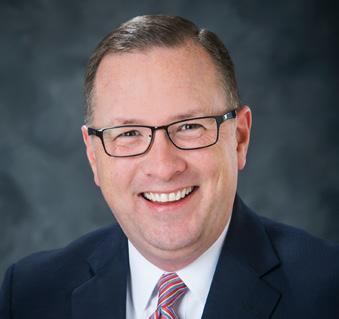
O’Neill said the company’s mission of allowing government and private partners to assess threats in real time has been a draw for employees.
“We help good people stop bad people from doing bad things,” O’Neill said. “We can provide situational awareness around different events that are happening. You can search something in Google, and, really, you’re searching 5 percent of what has been indexed on the internet. Our applications target beyond a standard search engine in a multilingual format.”
Both Camgian and Babel Street have received awards from the Greater Starkville Development Partnership in recent years recognizing their contributions and impact on the Starkville community. O’Neil said awards like that, as well as other honors the company has received in Mississippi, have
ALUMNUS.MSSTATE.EDU 33
"The companies we have here are providing high-end employment opportunities in areas like engineering, computer science, artificial intelligence, cybersecurity and more.”
~ Marc McGee
helped make people more aware of the high-tech jobs available in the area.
“When I first moved here 14 years ago because my wife got a job at MSU, it did not feel like there were many opportunities in tech," O’Neill said. "But if someone were to move to Starkville now, they would be way more familiar with many of these companies because they have a greater presence across the community.”
HELPING MISSISSIPPI’S ADVANCED MANUFACTURERS THRIVE

MSU’s Center for Advanced Vehicular Systems-Extension in Canton may be located near one of Mississippi’s largest manufacturers, but the center has been a vital asset for manufacturers big and small since it opened nearly 20 years ago. Since 2006, CAVS-E has had a $6.4 billion impact on its clients, with over 6,700 jobs created or retained.
As part of the Mississippi Manufacturers Association Manufacturing Extension Partnership, CAVS-E provides engineering support to industry whenever demands arise. Those needs can include simulation modeling, site master planning, and finding technologies for automation solutions, as well as specialized training to improve processes in manufacturing and healthcare.
“Through our services, we are helping companies establish new facilities, expand their existing facilities and product lines, and gain efficiencies that improve companies’ bottom-lines, which in turn supports the economic engine of the state and translates to more jobs for Mississippians,” said CAVS-E Director Tonya McCall.
While CAVS-E began as part of the state’s incentive package to attract the Nissan plant in Canton, the center has evolved to ensure its services remain relevant to industry in the state. As they helped companies improve their
manufacturing processes, their engineers began to hold training on the new technologies and concepts that were driving the improvements.
“In more recent years, the changes in technology have shaped the way manufacturers operate as they focus on ways to be more efficient and develop a basis to support the decision making within their plants,” McCall said. “Our engineering team can deliver services that small and medium companies may not have access to or would not want to maintain in a full-time capacity, but we can come in when help is needed. We just want these companies to thrive. Their success is our success and ultimately leads to the success of the state.”
BUILDING A CULTURE OF ENTREPRENEURSHIP
As director of the Center for Entrepreneurship and Outreach in MSU’s
34 SPRING 2023
College of Business, Eric Hill helps provide guidance for approximately 100 startup teams every year as they work to turn an idea into a product and eventually a business. While many of these teams are students, the center also works with faculty and MSU’s Office of Technology Management to support new businesses that emerge from intellectual property-generating research activity.
Hill said Mississippi has made strides in recent years to grow a culture of entrepreneurship in the state, and MSU has played a significant role in it, both through the creation of successful startup companies and supporting statewide efforts that link the startup ecosystem. He sees several benefits to bolstering the entrepreneurship culture in Mississippi. There are the economic impacts that result from new business activity in a town or region, such as job creation and revenue growth. Additionally, there is the cumulative effect on employee recruitment as the pool of employers grows, giving employees confidence they can find good jobs for their spouses or be able to find a different job if needed. Finally, there is the social impact of being able to have a community of support as entrepreneurs navigate the peaks and valleys of starting a business.
“So often, you can be stuck on something that seems like it’s going to torpedo the whole idea,” Hill said. “In those moments, it’s important to have a community of people that can provide support based on their experience and having examples around the state of entrepreneurs that successfully moved past a problem. We can’t put a price tag on that.”
MSU alumni are also helping ensure entrepreneurs have access to angel capital, or investments that help young companies develop the resources they need to become profitable. Alumnus
Wade Patterson
launched the Bulldog Angel Network in 2017, helping connect MSU-affiliated entrepreneurs with angel investors.
Hill said it has been enjoyable to see the Center for Entrepreneurship and Outreach continue to grow in the impact it has on individual entrepreneurs and the state as a whole.
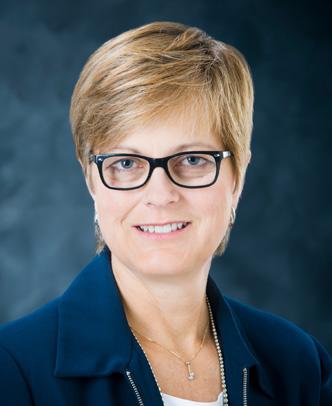
“Right now, the portfolio of companies funded through the program is in excess of $39 million, with dozens of employees working for the collective group,” Hill said. “So that’s exciting, because those are real numbers that matter in Mississippi.”
POSITIONING MISSISSIPPI FOR SUCCESS
Jordan said MSU’s research activity will continue to help position Mississippi for success in economic sectors that will help the state grow in the future.
“We have some really exciting research taking place using the technologies and concepts that will shape the future of our economy over the coming decades,” Jordan said. “We’re on the leading edge in areas like smart agriculture, advanced materials and manufacturing, autonomous systems, and computer science. In addition to helping prepare students for their careers in these kinds of fields, we are helping to boost economic activity locally by developing new partnerships with industry and supporting faculty members as they go through the process of commercializing new technologies.
“When you combine our R&D activity with the land-grant mission of sharing knowledge and service to the broader community, it’s a very powerful combination, and one that will continue to benefit our state for generations to come.”
SUPPLY CHAIN MANAGEMENT STUDIES


Before the outbreak of COVID-19, most people didn’t put much thought into how toilet paper made it onto their local stores’ shelves. Now, after years of issues with the global supply chain, its importance has never been more apparent.
Mississippi State launched the Supply Chain Logistics program—the only one of its kind in the state—in the 2021-22 academic year to prepare students to help solve these local, regional, national and international issues. The program, which culminates in a bachelor’s degree, builds upon fundamental classes offered within the College of Business with a focus on logistics, operations, procurement and transportation of goods and materials throughout global supply chains.
More than 30 students have received the new degree since its launch, and more than 120, including numerous double majors, were enrolled in the program at the end of 2022.
The university also hosts Maroon and White Supply Chain Day each semester, which links students with industry professionals, many of whom are alumni. A student group with the same name also recruits potential students to the program and links them to events and networking opportunities.
For more information about MSU’s Bachelor of Business Administration in supply chain logistics, as well as other programs offered in the College of Business, visit www.business.msstate.edu
ALUMNUS.MSSTATE.EDU 35
n
"In addition to helping prepare students for their careers in these kinds of fields, we are helping to boost economic activity locally by developing new partnerships with industry and supporting faculty members as they go through the process of commercializing new technologies."
~ Julie Jordan
THE FAMILY WAY
THE FAMILY WAY
MISSISSIPPI STATE’S OFFICE OF PARENT AND FAMILY SERVICES GUIDES BULLDOGS THROUGH UNIVERSITY LIFE
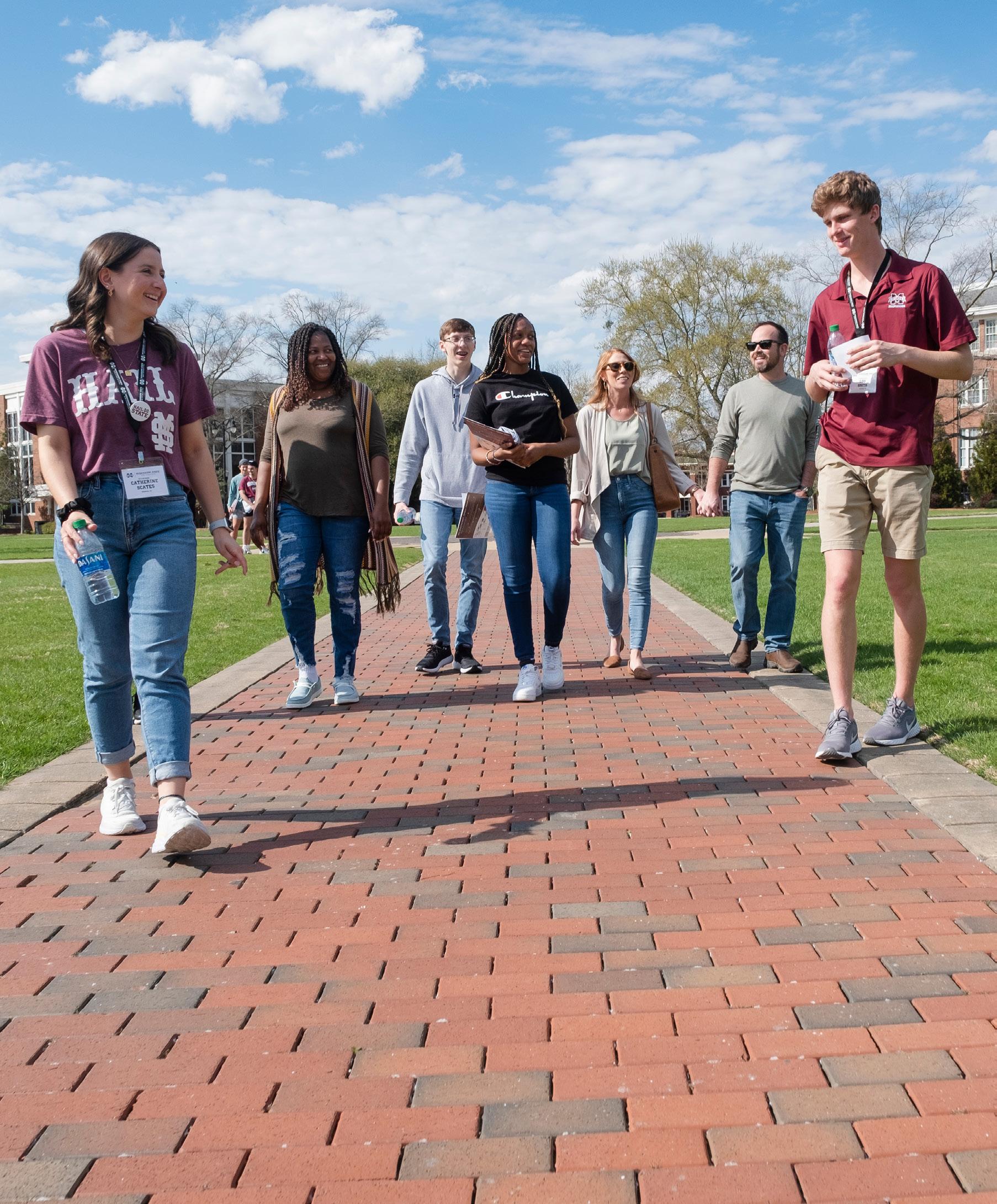 By Susan Lassetter, Photos by Megan Bean & Grace Cockrell
By Susan Lassetter, Photos by Megan Bean & Grace Cockrell
36 SPRING 2023
When Cat Walker’s father enrolled at Mississippi State in the 1960s, the life of a university student was vastly different from what today’s Bulldogs experience. A firstgeneration college student, he came to Starkville from the Delta and found a mentor, major and path to a degree.
“If you ask my dad why he was successful in college, he will say it was because of his mentor, Dean Rhodes,” Walker said. “That one person provided support and helped guide him through.”
With a fraction of the student population and fewer options for majors and programs, college life was undoubtedly simpler for that generation. But that’s the nature of higher education, explained Thomas Bourgeois, MSU’s dean of students. Institutions have to grow to meet the changing needs of the students and communities they serve.
“I’ve been in higher education for almost 30 years, but the job today is completely different than it was 15 or even 10 years ago,” Bourgeois said. “Helping students and families understand all of the university’s processes and what MSU has to offer is a big part of it.”
Today’s universities are a complex network of opportunities, resources and tools to help students succeed. It’s more than any one person can navigate alone, but as director of the Office of Parent and Family Services, Walker knows how to give families peace of mind and chart their course for the smoothest education journey possible.
“I might not be the ‘one person’ that Dean Rhodes was to my dad, but I can connect students to the one person who can help them with their issue,” Walker explained. “I say I’m a Mississippi State generalist—I might not know the answer or be able to solve the problem, but I can point you in the right direction.”
‘CALL CAT’
In many Mississippi State online circles, “Call Cat” has become the go-to answer for any question or concern about student life at MSU. She has a well-earned reputation for being able to solve any problem, whether it’s a worried parent wanting a welfare check on their student or a family member trying to help their Bulldog find vegan food options on campus.

“I give out my cellphone number, and I think that’s an important part of the job,” Walker said. “You can’t be in this job if you only want to work 8 a.m. to 5 p.m. because parents
and families need someone they can call if they have an emergency. I don’t mind being that person. Dean Bourgeois doesn’t mind being that person. We love our university and we love our students, so if they need anything we are here.”
Falling under the Division of Student Affairs, the Office of Parent and Family Services consists of two full-time staffers—Walker, who is assistant dean of students, and coordinator Becky Faulk. Working closely with the Office of the Dean of Students, they have made themselves into the “Google of Mississippi State information.”
“Google might not always give you the right answer, but it will point you in a direction, and that’s what we do for Bulldog parents, families and students,” Walker explained. “We are always working to build relationships with the units across campus, so when we need to help solve a problem, we know where to start.”
Bourgeois said the office essentially serves as a conduit for helping students, or their concerned families, navigate modern college life one issue or crisis at a time.
“We are one piece of the larger puzzle of guiding students and helping them find success,” Bourgeois explained.
HARNESSING A RESOURCE
Mississippi State University was on the forefront of student development and support in 2007 when it created the Office of Parent and Family Services—the first office of its kind in the state and one of few in the Southeastern Conference at the time.
Starkville native and MSU alumna Lady Cox worked with Bourgeois to create the office and served as its first director. She explained that university officials had noticed an increase in parental involvement in students’ lives. With cellphones and social media, students had more contact with their families, and, therefore, families had more insight into their students’ daily college lives.
Rather than see it as a problem, Mississippi State sought a way to use that relationship as an additional tool for student success.
“In the early to mid-2000s, more college parents were suddenly talking to their students daily. There was a greater connection there than there had been before,” Cox explained. “We thought, ‘Why not engage the parents?’ If there’s
ALUMNUS.MSSTATE.EDU 37
a problem, the parents were likely the first ones to notice or realize it, and we wanted to give them a clear place where they could go for help.”
Bourgeois said that at the time, many universities used parent associations primarily as a fundraising unit. But Mississippi State officials didn’t want money to be a requirement to get help or access to a campus advocate.
“We realized our students’ families could be a valuable resource in helping those students succeed,” Bourgeois said. “They have 18 years of experience with that student, so when it comes to their needs, they are the experts. Why not educate these parents about MSU and its resources and give them a way to plug in?”
Cox said one of the first developments of the office was to create both parent and student handbooks. These print publications, which are updated and reproduced annually, as well as a robust web presence, give concerned parents and students a place to start when they need answers. The next step was making sure people knew about the office and to staff it with people ready, willing and able to be a campus advocate for MSU students.
Cox, who is now an associate vice president for student affairs at Auburn University, served in that
role until 2010 when the torch was passed to Walker.
Having been among the first wave of higher education professionals dedicated to parentinstitution relationship development and having now seen MSU’s approach from both inside and outside the university, Cox said Mississippi State’s parent and family support is a big draw for prospective students.

“A lot of students want the big school experience, but parents want to feel like their students will be part of a close-knit community,” Cox explained. “MSU’s Office of Parent and Family Services gives parents a lot of comfort and reassures them that in a place with more than 20,000 students, theirs is not just a number. There will be people actively looking out for and caring about them.
“I think that’s something special about Mississippi State,” she continued. “It’s a big school but a small community, and everything at MSU is about holistic student development.”
CAMPUS ADVOCATES
Bourgeois said part of developing the “whole” student while also supporting those who raised
38 SPRING 2023
“YOU CAN’T BE IN THIS JOB IF YOU ONLY WANT TO WORK 8 A.M. TO 5 P.M. BECAUSE PARENTS AND FAMILIES NEED SOMEONE THEY CAN CALL IF THEY HAVE AN EMERGENCY."
~ CAT WALKER
them is helping both parties gain perspective and distance.
“When a student goes off to college, it can be anxiety-inducing for parents who now, suddenly, can’t rush in to ‘fix’ a problem. And it can be stressful for the student who, for the first time, is faced with solving their own issues,” Bourgeois explained. “We help bridge that gap by empowering students to problem-solve and being their advocates when necessary, while helping families breathe easier and learn to let go.”
“Letting go” is not always easy for parents and often isn’t advice they want to hear, but Bourgeois said encouraging self-reliance and problem-solving are some of the best gifts a student can get.
“Failure is a good teacher, and sometimes it’s necessary,” Bourgeois said. “Seeing that one wrong decision or bad grade isn’t the end of the world is a good learning experience. And when students solve their own problems successfully, it’s a confidence builder.”
Walker said that’s why the Office of Parent and Family Services doesn’t solve the problems for students but rather gives them the tools to fix it themselves.
“We’re here to help students through a situation, not get them out of it,” Walker said. “It’s important that they understand the consequences of their actions—say if they don’t go to class—but also understand that one bad grade doesn’t have to end their college career.”
Instead of approaching a professor to ask for a grade adjustment, Walker said the Office of Parent and Family Services can show students where to go for tutoring or how to apply for grade forgiveness. Instead of helping a student get excused from class for a broken leg, OPFS staff can direct them to the Disability Resource Center, which can help them find the accommodations needed to continue attending their lectures.
“We will do whatever we need to do to support our students and assure them and their families that they have the opportunity for success here,” Walker said. “I’m a mom myself, and I love this university and our students. I want the see them both succeed.
“I love to see our students succeed, and I love this job,” she continued. “I would be happy doing this—being a resource for students and families—until I retire.”

ALUMNUS.MSSTATE.EDU 39
n
“WE ARE ONE PIECE OF THE LARGER PUZZLE OF GUIDING STUDENTS AND HELPING STUDENTS FIND SUCCESS.”
~ THOMAS BOURGEOIS
PARENT & FAMILY WEEKEND
Each fall, Mississippi State University hosts Parent and Family Weekend to help current Bulldog students share their university experience with their families.
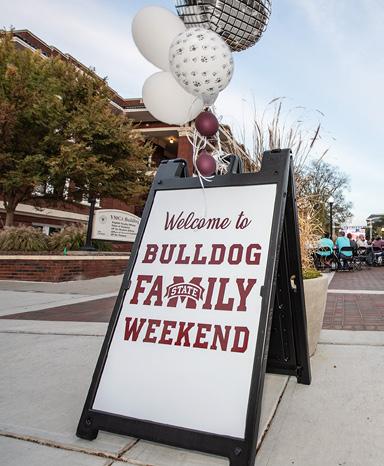
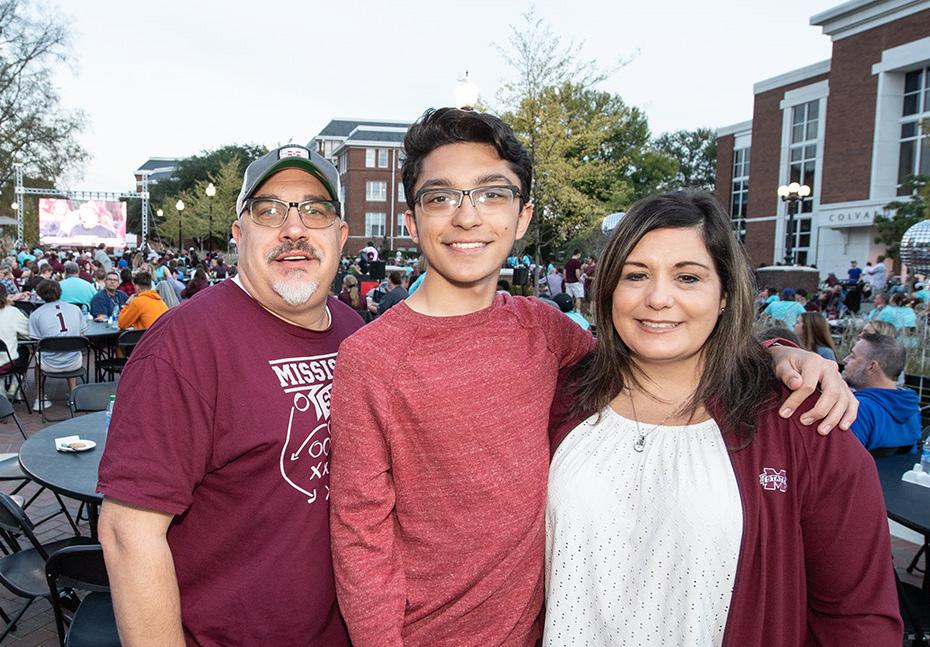
Jointly sponsored by the Office of Parent and Family Services and the MSU Alumni Association, the weekend provides a variety of Maroon and White activities, including a football watch party and campus tours, as well as opportunities to explore Starkville and experience campus amenities, such as the Sanderson Center.
Cat Walker, director of the Office of Parent and Family Services, is proud to say the event has grown from fewer than 20 participants when it was first hosted 15 years ago to more than 1,000 attendees in 2022. She attributes the rising attendance to the changing demographics of the MSU student body.
“We’ll always have parents who are alumni and are eager to come back to see how campus has changed and what their student is experiencing, but we’ve seen exponential growth in participation from students and families who have no previous experience with or connection to campus or Mississippi State,” Walker explained.
“In the past, a lot of our students have had parents or grandparents who are alumni, or they grew up coming to games and events on campus,” Walker continued. “But now, within the student population, we have a lot more out-ofstate students, first-generation students or those whose families attended other universities and have no ties to MSU.”
To help these students and families begin to feel at home in Starkville, Walker said the Office of Parent and Family Services plans the annual event for a weekend when campus and the local community have plenty of hospitality and excitement on display.

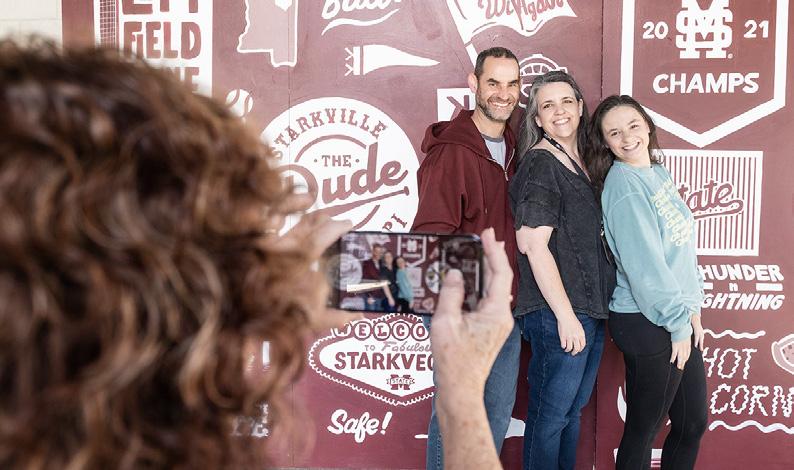
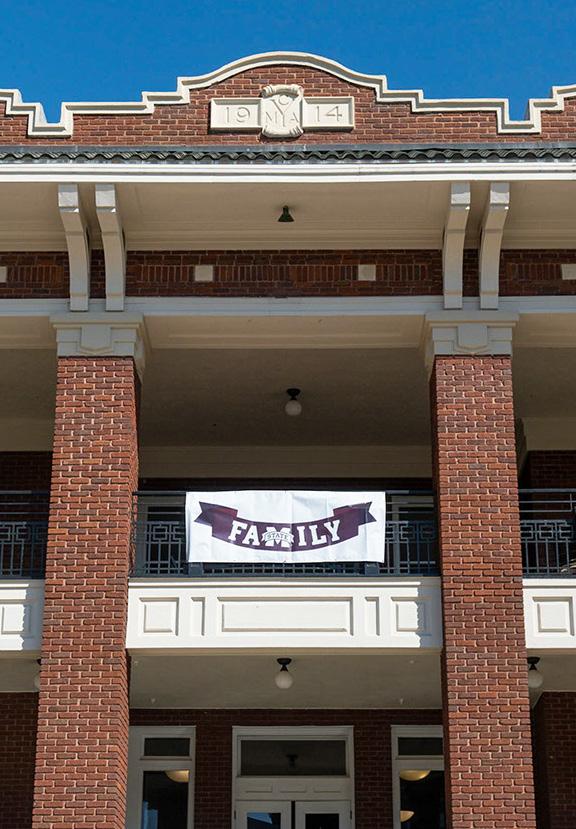
In 2022, Parent and Family Weekend coincided with Bulldog Bash in the Cotton District, a fun run to support the T.K. Martin Center and the Starkville Community Market. Taking place on the weekend of an away football game, it provided visitors a chance to get a feel for the area without the game day crowds while still enjoying SEC football at a watch party on campus.
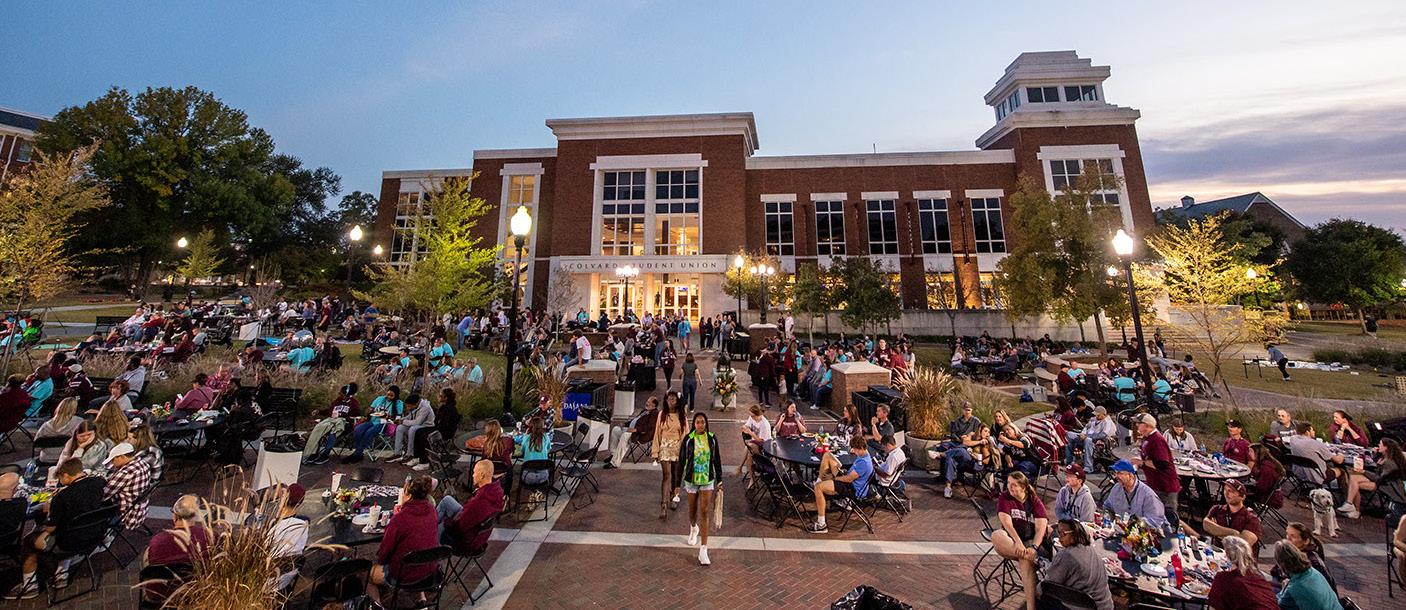
40 SPRING 2023
READY TO LAUNCH
Sending a child off to college can be a nerve-wracking experience for a parent, not to mention the mental toll it can take on a young person living alone for the first time. But practicing the tasks one has to master to effectively manage their own health, finances and schedule can give both parents and students peace of mind when it comes time to leave the nest.
“Taking responsibility for your day-to-day life and being able to make sound decisions is like any muscle—the more you use it, the stronger it becomes,” explained Cat Walker, director of MSU’s Office of Parent and Family Services. “In this case, you’re building the pathways in your brain that will help you be successful when you’re out on your own.”
With more than a decade of experience working with students and their families, Walker said it is usually obvious which students have done things for themselves versus those who have relied on parental intervention. The former, she says, have the confidence to tackle whatever life throws at them or at least know where to go for help, whereas the latter are more prone to panic, shutting down or choosing to quit.
Walker suggests the following as ways to help high schoolers begin preparing for life away from their parents.
• Teach money management. Technology makes it easy for parents to monitor their children’s bank accounts and transfer funds as needed. But if money just appears when they need it, they might not learn financial management. Let them be responsible for monitoring their account balance.
• Talk it out. Let children learn how to solve interpersonal disputes. When they get to college, they will have roommates, group projects and other situations in which they must effectively work with others. It’s a skill like any other, and it takes practice.
• Make them responsible. Any student preparing for college should be completing their own paperwork—including college and housing applications—and scheduling their own appointments.

• Know important information. Students need to know their social security number, as well as where to find their card and birth certificate. They should also have copies of all their insurance cards, know how to find in-network providers and how to have prescriptions filled locally.
• Get a handle on daily chores. Washing dishes, doing laundry, cooking and grocery shopping are all second nature to most parents. But teens need guidance and experience to be prepared to take over these tasks for themselves. Let them practice these skills while still at home so they don’t have to make panicked calls from the laundromat later.
Finally, Walker says one of the most valuable skills a teen can learn is how to “figure it out.”
“Life doesn’t just hand you solutions,” Walker said. “You have to be proactive about finding answers and resolving situations. Start small, but start young to help them become more confident in their ability to solve life’s little problems.”
MY STUDENT SUPPORT PROGRAM
Attending college can be an exciting, formative experience. It can also be a time of change, adjustment and stress. To support Bulldogs with all of these developments, Mississippi State provides access to My Student Support Program, known as MySSP.
The MySSP website and app, available on both Apple and Android smart devices, give students access to free, confidential mental health and well-being support 24/7. Its selfdirected resources include videos, articles and podcasts, as well as assessments for depression, general anxiety, and alcohol and drug use.
“We looked at several providers and found MySSP to be the most

comprehensive tool on the market,” explained Jeremy Baham, assistant vice president for student affairs.
“It is a wonderful supplement to the free, in-person counseling available to all MSU students and can get them immediate support when there are waiting lists for on-campus or other local mental health support.”
MySSP joins an umbrella of mental health services available to MSU students through the Longest Student Health Center, Student Counseling Services, Psychology Clinic, Collegiate Recovery Community, Office of Survivor Support, Athletics Department of Counseling and Sports Psychology and MSU Meridian’s Weems Mental Health network.
ALUMNUS.MSSTATE.EDU 41
Greenville woman finds her dream career in research fields
By Bonnie Coblentz, Photos by Grace Cockrell
When Tameka Sanders climbs out of her pickup truck and walks into a field or farmers’ meeting, she knows she belongs. She has the education and experience necessary for success in agriculture, which is something others quickly realize upon meeting her. Still, as a Black woman, she’s an anomaly in industry statistics.
The most recent U.S. Department of Agriculture census shows 96% of farms nationally are run by white producers, while less than 2% are Black or African American. And although an increasing number of women are farmers, they are not the face of agriculture.
“When I show up in certain places, I’m surrounded by white males,” Sanders said. “Once I strike up a conversation, they ask my background, and everything blows over.”
Sanders is a field scientist with Corteva Agriscience at its Stoneville Research Center, a role she assumed in April just before earning a doctorate from Mississippi State University in weed science.
A Greenville native, her family expected her to pursue higher education, as her mother and all four siblings went to college. She earned a bachelor’s degree in biology at Delta State University and was accepted into nursing school. In the middle of clinicals, she realized that nursing was not for her.
MSU Extension Service and the Mississippi Agricultural and Forestry Experiment Station, hired her to do data entry in the office—a role that soon grew into more.
“He said that if I wanted to learn what they’re doing out in the field, I was more than welcome to,” she recalled. “I had discovered with my biology degree and working for USDA that I really enjoyed research, so I hopped on the opportunity to learn everything.”
Delta born and raised, helping graduate students conduct their projects as a research technician was the first time she ever set foot on a farm. Tyler Hydrick, one of the first students she worked with, pointed out that since she was already doing the work, she should take the classes and get the degree.
Putting her biology degree to work, she took a job with the USDA in Stoneville, then was hired by MSU as a research technician for the Delta Research and Extension Center. Jason Bond, a weed scientist and researcher with the
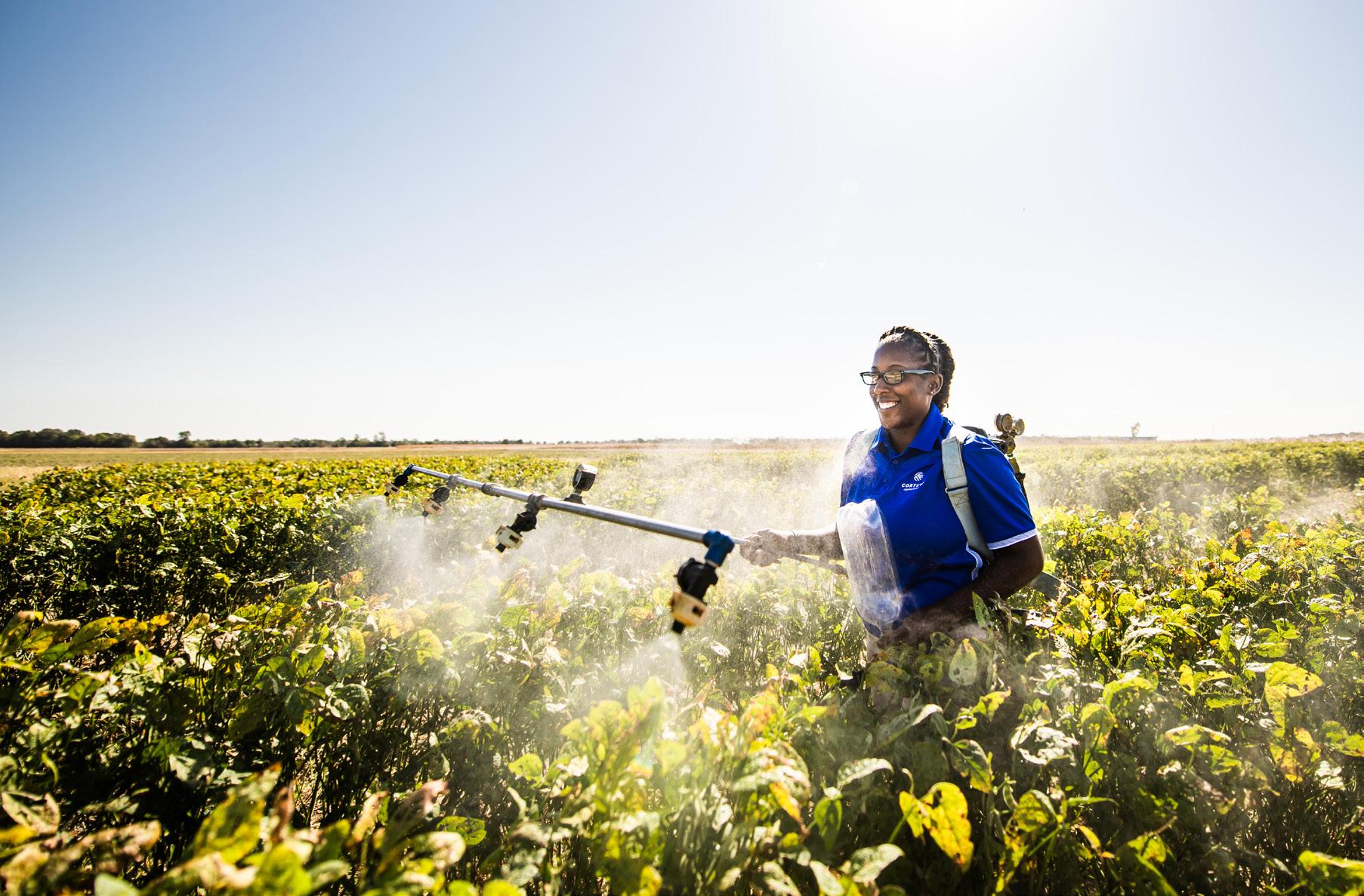
“I told him I had sworn off school, but I finally decided, why not?” Sanders said.
Though it brought on significant personal challenges, she restarted her academic journey in 2017. Sanders received a master’s in weed
42 SPRING 2023 Our PEOPLE
“Some of the people I was in class with grew up on farms and already had the experience when they got their education. I was getting the education and the experience at the same time.” ~ Tameka Sanders
science in 2019 then went straight into a doctoral program, earning that degree in 2022.
In her personal life, she married Dion Sanders the same year she began her graduate work. Her first child, daughter K’lynn, was born while she was working on her master’s degree, and her daughter, Khylee, was born in the middle of her doctoral program.
Sanders juggled the responsibilities of wife, mother and student, even commuting more than two hours, three days a week for 8 a.m. classes two semesters. After class, she would go straight to work for a full day on the job.
“Balancing home, family, work and school sometimes seemed overwhelming,” she recalled. “There were many days I wanted to walk into Jason’s office and say, ‘I just can’t.’ But I kept pushing through because I’d come too far to quit.”
She said self-comparison was sometimes her biggest hurdle.
“I would doubt myself and wonder if I really was capable of doing this,” she said. “Some of the people I was in class with grew up on farms and already had the experience when they got their education. I was getting the education and the experience at the same time.”
Sanders credits Bond, her major professor, with encouraging her to keep going.
“When she interviewed, she said she wanted to work in research. She was a hard worker, very reliable and has a high level of ‘figure-itout,’” Bond said.
Bond recalls talking to Sanders about taking off the needed time when her first baby was due.
“K’lynn was born in January, and she came back in the spring,” Bond said. “I walked into her office with something for her to do, and she said she’d do it as soon as she finished her exam. I didn’t realize she was taking classes while she was home with the baby.”
Although her graduate work was with rice, Sanders works in the fields today with rice, corn, soybeans and cotton.
A typical summer day for Sanders in the Mississippi Delta starts around 6:30 a.m., as temperatures frequently hit triple digits as the day progresses. She mixes chemical formulations for application, then heads out to spray fields.
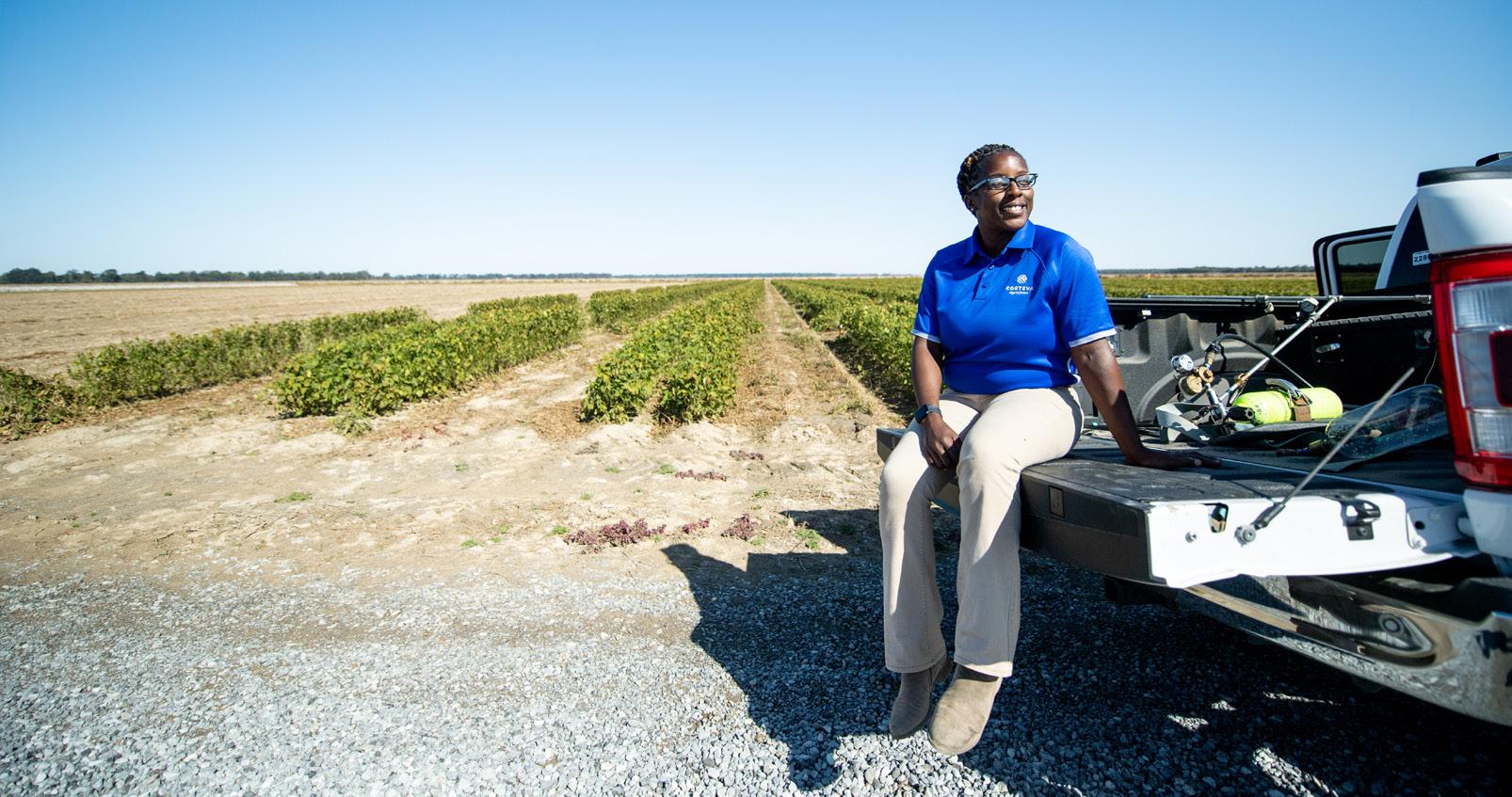
“One field trial for a chemical compound can mean I spray 48 research plots with a backpack and handheld sprayer,” Sanders said. She wears full protective gear with a pressure tank on her back, the mix container strapped on the front, and a 5-foot boom sprayer in her hand. Once back from the
field, she washes everything down and puts it away for the next day.
The Corteva field station where she works is equipped with a shower, and Sanders said she always brings a change of clothes.
“I sweat through a change of clothes a day, but I enjoy being outside and doing the work,” she said.
After lunch, Sanders goes back into the fields she sprayed the week before for data collection—evaluating the crop and weeds to note changes and any damage to plants.
Rounding out her day is data entry, notes, project updates to the home Corteva office and planning the next day’s tasks.
Sander’s life is not all about her job on the farm. She is a dance mom, fully involved in her 4- and 2-year-old daughters’ classes in jazz, ballet and tap. Although her schedule no longer allows her the time needed to train, she has run multiple marathons in the past, including the Mississippi Blues Marathon in Greenville.
“My family is always amazed at what I do, because it’s strenuous, outdoor work and it gets hot and humid here,” Sanders said. “I don’t even check to see how hot the field is. When you love what you’re doing, it takes your mind off the difficult stuff.” n
ALUMNUS.MSSTATE.EDU 43
STRONG SERVICE
Alumna supports community as voice for storm safety
By Carl Smith, Photos by Jennifer Ipsan, WDRB
Early in her Mississippi State career, Hannah Strong said she was a classic case of “I don’t know what I want to be when I grow up.” Now, the award-winning meteorologist for WDRB in Louisville, Kentucky, is one of the most trusted sources of weather-related information in the Lower Ohio Valley.
Strong, a 2015 graduate, collected three Ohio Valley Regional Emmy Awards in 2022—one for best meteorologist and two as part of the station team recognized for best newscast and coverage of a tornadic weather outbreak.
Winning these trophies, she said, can be traced back to a fateful trip to the MSU Career Center.
The Birmingham, Alabama, native tried a few majors—from engineering to business— in her first years as a Bulldog, but “nothing felt right.” Strong said she was interested in the science-related fields and liked the idea of serving others, but she needed a direction.
“I went to the Career Center in tears one day. I said, ‘I think I’m close, but this just isn’t it. I need help,’” she recalled. “The counselor there said, ‘It’s OK. You don’t need to know right now. Let’s try some options and see what
fits, and you’ll learn more about yourself along the way.’ That’s one of the best pieces of advice I ever received.”
With an understanding of her interests and strengths, advisers pointed Strong toward the university’s professional meteorology curriculum. She enrolled in a class taught by Charles Wax, a professor emeritus of meteorology and climatology who, at the time, was in his last year of regular teaching. She said taking a class from the former state climatologist and 12-year MSU Department of Geosciences head “sealed the deal” for her academic path.
“I’m so grateful I got to be in one of his classes. He is a titan of meteorology,” Strong said. “Meteorology itself is so fascinating because it’s very cerebral. There’s a lot of math and science—a lot of research in the field. Public-facing, interactive jobs heavy on the math and science aren’t a dime a dozen out there.”
Lindsey Poe, an MSU instructor and undergraduate coordinator of broadcast meteorology, taught Strong in several classes and said she knew almost immediately that Strong would be successful in anything she put her mind to.
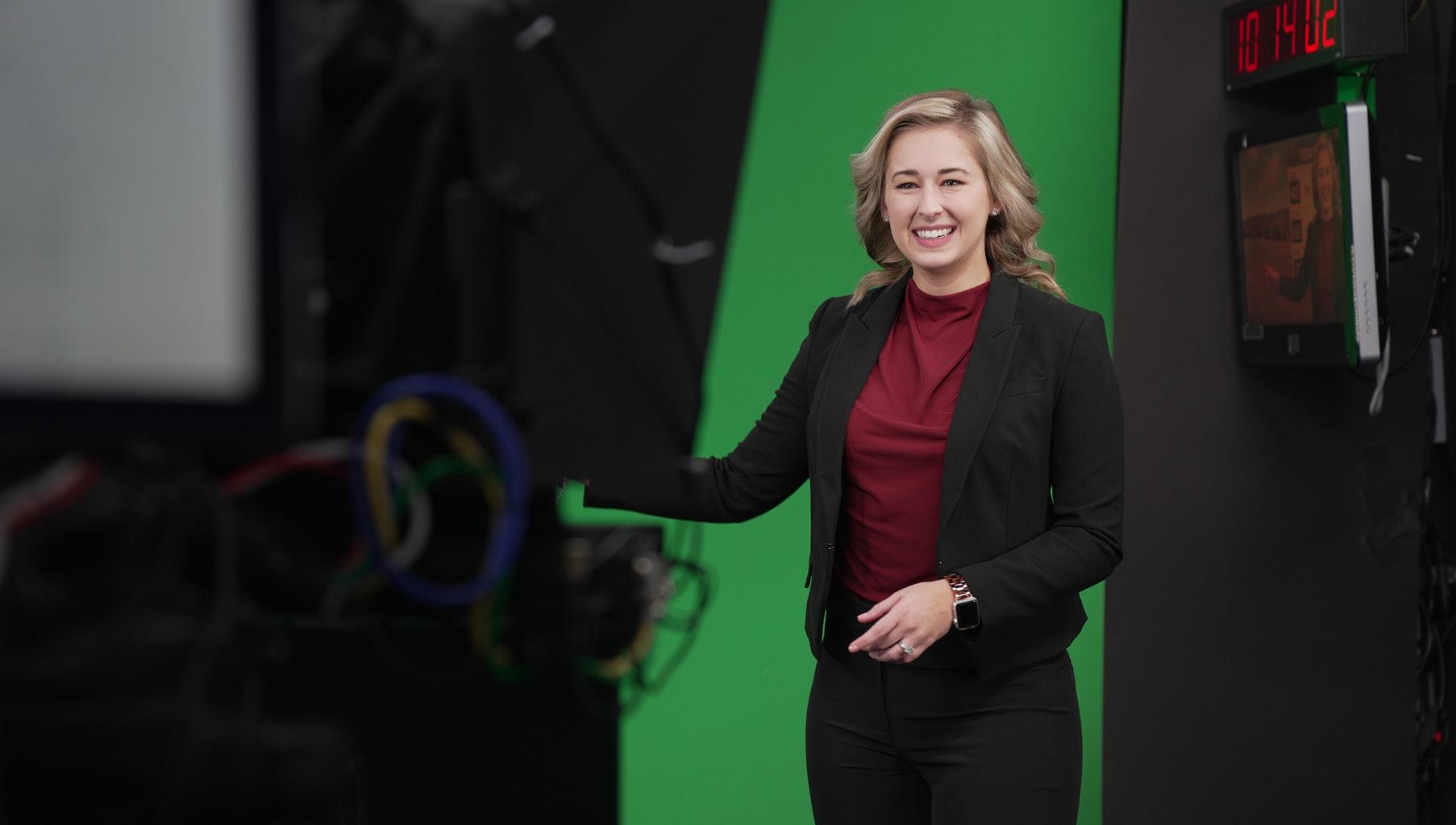
“She took her courses seriously and is one of the more determined students I’ve had. She came into every class, lab and situation prepared and serious about improvement,” Poe said. “What sticks out to me about Hannah then and now is how her hard work rubs off on others. She raised the bar for other students and expected of them perhaps what they didn’t expect of themselves.”
Strong began her career as an on-air meteorologist in Fort Wayne, Indiana, after graduating magna cum laude in the spring of 2015 with a bachelor’s degree in geosciences, emphasis in professional meteorology. She holds the Certified Broadcast Meteorologist accreditation from the American Meteorological Society and a National Weather Association Seal of Approval, and she serves on the NWA board of directors, NWA social media committee and the AMS broadcast board.
Upon joining the rank of TV weathercasters, she joined a club filled with Bulldogs: Best estimates show that approximately 1 in 3 of today’s on-air broadcast meteorologists is a product of the university’s nationally recognized meteorology program. Like many of those alumni, she
44 SPRING 2023 Our PEOPLE
credits Mississippi State with preparing her to handle her first outbreak of severe weather as a professional.
“I was maybe a year out of college, and people were trusting me to give them lifesaving information, which can feel like a lot of pressure,” she said about covering her first major outbreak of tornadoes.
The next day, Strong was sent into the field to tell the story of the weather’s impact. She visited rural areas outside of Ft. Wayne, where residents were already cleaning up and rebuilding. Despite the shock and devastation experienced hours before, residents welcomed her and her photographer with open arms.
“They took time to share their stories with me because I was with them that night—because I was the one talking them through one of the worst nights of their lives, trying to help them understand what was going on,” Strong said. “They said we’re part of the community, and that’s why we trust you. Knowing I’m part of the community like that—that’s one of the coolest parts of this job.”
As for in-studio work, stepping in front of a green screen was no new task for Strong, as her practicum classes prepared her for “the complicated ballet” that is presenting the weather on television.
“There’s nothing like it because there are so many mechanics and so much timing that go into making it work,” Strong explained. “You’re standing there, looking into the camera and giving the forecast while checking the monitor to make sure everything is progressing like it should be. Every piece of your brain is firing in that moment. It takes a lot of grace to pull it off.”
Grace, Strong said, is something she also asks for from her viewers because there’s no hiding mistakes once they’re made on live television. From mixing up words to “falling over for no reason,” she said she’s had plenty of embarrassing moments in front of the camera.
“If I make a mistake in my daily job, like anybody can do, there’s a potential for at least a million local residents to see it. And Heaven forbid I go viral,” Strong said laughing. “You can become a meme in the matter of moments.”
With her three regional Emmy Awards in tow, Strong said she can look past the minor

mistakes and be proud of her work, which was vetted by her peers.
“I really do think imposter syndrome is super prevalent in broadcast meteorology. The awards are reinforcements that say, even if you don’t see it in yourself today, someone else sees the value of your work and that you’re here for a reason. They’re really validating,” she said. “I’m so thankful for those moments where I can look up at the trophies and say, ‘Yeah, it matters. I’m doing okay,’ especially on the hard days where we might not be able to reach everyone, even though we’re doing everything we can.”
Strong recently renewed her contract with WDRB and is taking on a new role focusing on the digital delivery of the TV station’s content. Her long-term goal is to become a chief meteorologist in a community where she can plug in and belong.
“You don’t turn on a particular station for its weather coverage because they made the flashiest graphics. You stick with a station long term because that’s the one you made a connection with,” she said. “I want to be the one leading so that we can really make a difference as a team, but I also want to be the one that you feel like you can trust because you’ve made that connection with someone who has your back. I also want to be a good leader and mentor especially for young people getting into this business.”
She said she understands the power of supporting young professionals because of the support she has felt, and continues to feel, from the Bulldog family.
“MSU gave me the opportunity to hone my craft, build my skills and jump straight into a top-half market right out of college,” Strong said. “The experience any broadcast meteorology major comes out of MSU with is ahead of any other program that I’m aware of.
“The continued support of the MSU community is something that others can’t compare with,” she added. “Because I didn’t come to Mississippi State for the meteorology program, I didn’t understand how big of a deal it was until after I had graduated. Seeing the people who taught and supported me in college make a big deal out of me and what I do makes me feel like a feather in the cap of the program. They make me feel like I’m part of why we’re such a big deal.” n
ALUMNUS.MSSTATE.EDU 45
"You don’t turn on a particular station for its weather coverage because they made the flashiest graphics. You stick with a station long term because that’s the one you made a connection with. I want to be the one leading so that we can really make a difference as a team, but I also want to be the one that you feel like you can trust because you’ve made that connection with someone who has your back."
~ Hannah Strong
WDRB Meteorologist Hannah Strong poses with the Ohio Valley Regional Emmy Award she received for the station’s team coverage of severe weather. Strong, a 2015 Mississippi State graduate, also won an Emmy for best meteorologist and was part of group that won an Emmy for best newscast.
BORN IN MAROON AND WHITE
Mullen celebrates more than nine decades of MSU service, fandom
By Emily Cambre, Photos submitted
Many people claim to be lifelong Mississippi State fans, but few can claim the kind of lifetime devotion shown by Tom Mullen. At 98 years old, he has decades of Bulldog loyalty on even the most diehard fans around.
A Starkville native, Mullen was born into the Maroon and White life. His mother attended the university and graduated in 1913, while his father worked at Mississippi State as assistant manager in the big laundry located on campus.
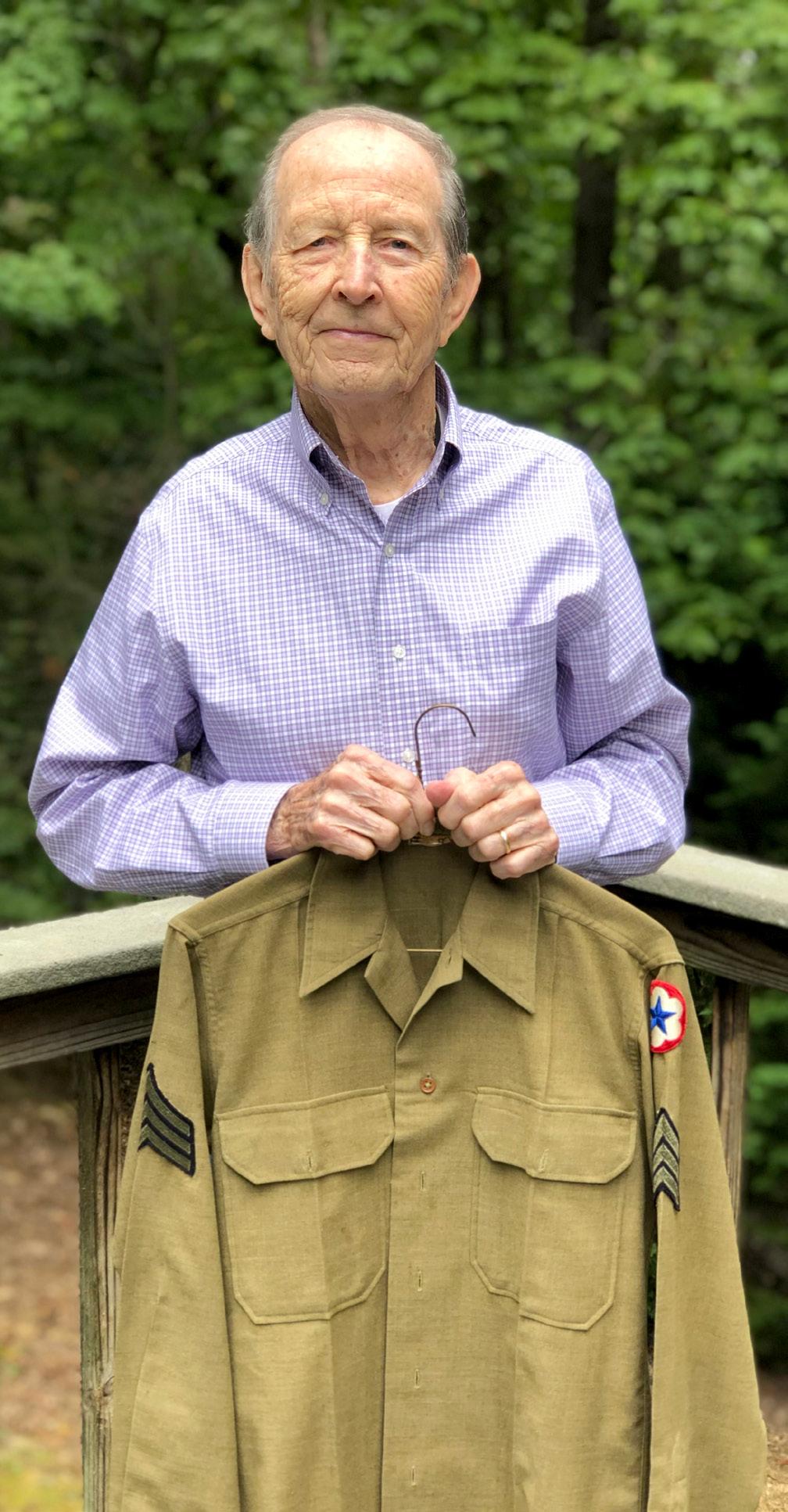
Mullen’s love for Mississippi State only grew when he started attending MSU sporting events, especially baseball. Even as a child, Mississippi State baseball was his favorite sport to watch, which still stands true today.
“My mother would come, pick me up from school and take me out to baseball games. And they were always in the daylight, no night games then,” Mullen recalled of the time before stadium lights were around. “My father was coming back from work and he’d picked me up after the game to take me home. I had it made and it didn’t cost anything to go to a game. Whether we won or lost, I loved to see those baseball games. If you were there, you enjoyed it.”
Mullen said after all of those experiences, he knew there was only one place to go after graduating high school.
“My connections have all been to State, from the time that my mother went there,” Mullen said. “My whole family was connected to State in some way. And I think that Mississippi State treated us all well.”
Mullen decided to major in chemical engineering following in the footsteps of his cousin.
“He was a year ahead of me and studying chemical engineering,” Mullen said. “I thought, well, I want to do the same thing. I always liked chemistry and just felt that that was the thing I wanted to do.”
46 SPRING 2023 Our PEOPLE
Outside of his studies, Mullen played trombone in the Famous Maroon Band, as well as the ROTC band. He even started playing the trombone in three private dance bands, one named the Southernairs, to make money on the side.
“I love music anyway and loved being able to do some big band work and jazz work,” Mullen said. “Music has been my hobby.”
While things were going well for Mullen as he found his footing and formed friendships at MSU, world events soon changed the direction of his future. In November of his sophomore year, an Army recruiter spoke to the chemical engineering majors about joining the WWII fight. Mullen enlisted and was called to duty in June 1943.
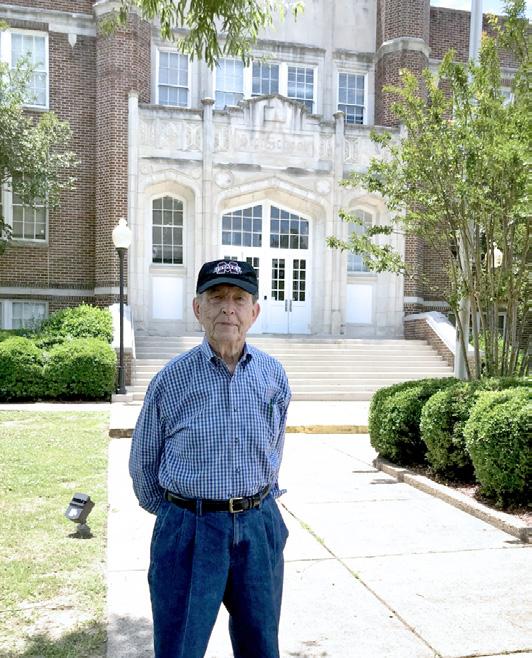
With his chemical background, Mullen was first stationed at Camp Sibert in Alabama, which focused on chemical warfare training. Months later, he continued his service in a secret mission project at Terre Haute, Indiana until he returned to Mississippi State about a year later.
Mullen finished his chemical engineering degree in 1948 and immediately started a job in the tire division of BFGoodrich in Akron, Ohio. His 32-year career with the company would see him through multiple transfers across the country before he ultimately retired from the company’s Tuscaloosa, Alabama, facility.
“I couldn’t have a better career than I had for my whole time at BFGoodrich,”
Mullen said, noting that his successful career wouldn’t have been possible without his family. “My family was so cooperative. My wife didn’t mind going anywhere.
that at the time. It wouldn’t have been the proper place. But we did marry.”
Mullen and Frances ended up having three daughters. Although neither Mullen or his daughters live in Starkville, he has visited his hometown and watched the growth of a once small university with admiration.

Mullen has continued to follow the Maroon Band and has even participated in alumni band events during pregame and halftime of Mississippi State football games throughout the years.
During his latest visit to MSU’s Starkville campus for a football game some five years ago, he admits to being taken aback. Since his time as a Bulldog predates the university’s cherished cowbell tradition, he wasn’t prepared for just how loud the atmosphere was.
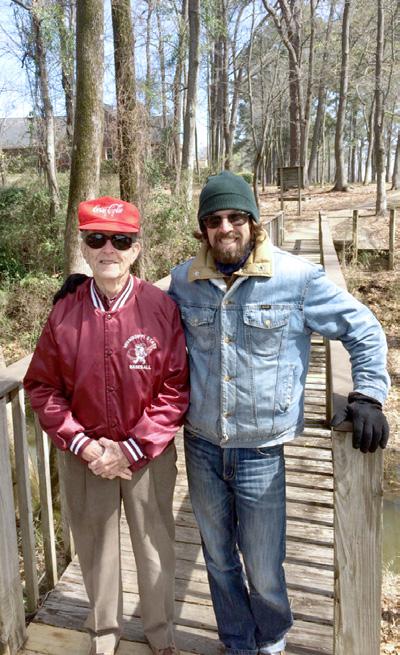
“She was that kind of a person,” he continued, speaking of his late wife Frances. “She was a person’s person. And my 66 years with her were the best thing that ever happened to me.”
Mullen said he still remembers the moment he met Frances at the army base in Alabama while he was taking a break from playing Ping Pong at the United Service Organizations.
“This lady served me a Coke and I looked at her and thought to myself, ‘that’s the most beautiful person I have ever seen. I’d like to marry her,’” Mullen said. “I didn’t tell her
Mullen also mentioned how much Mississippi State’s campus and student population has grown since he was once a student here.
“Mississippi State was very small. I don’t think there were over 2,000 students when I went there,” Mullen recalled. “But of course, when State grew, Starkville grew. That’s what a university can do for a small town. It gave Starkville opportunities, which makes a difference for the town.”
Although Mississippi State has grown and changed since he graduated in 1948, Mullen said he will forever call himself a loyal Bulldog.
“I was born as a Mississippi State fan and I’ll stay a Mississippi State fan,” he said. n
ALUMNUS.MSSTATE.EDU 47
“My connections have all been to State, from the time that my mother went there. My whole family was connected to State in some way. And I think that Mississippi State treated us all well.” ~ Tom Mullen
EMBARK ON AN
ADVENTURE
Grab your passport, we're going on a trip!
The MSU Alumni Association annually sponsors trips across the globe through the Traveling Bulldogs program. With a set number of reserved spots for each trip, be sure to book your 2023 destination today! By booking a trip through the Traveling Bulldogs program, you not only receive tailored itineraries with top-notch tour guides, but also are helping to support your MSU Alumni Association. If you would like to receive our monthly travel e-newsletter or learn more about upcoming trips, please visit www.alumni.msstate.edu/travel.

48
SPRING 2023
*All trips and dates are subject to change. Visit our website for the most current information.
APRIL

Dutch Waterways
European Coastal Civilizations
Historical Baseball
MAY
The Kentucky Derby
Cruise the Heart of Europe
Easy Company
Village Life Dordogne
Flavors of Northern Italy
JUNE
Stunning Scenery of Alaska: SEC Conference Cruise
National Parks and Lodges of the Old West
Great Journey Through Europe
JULY
Western Gems of the Emerald Isle
Discover the Canadian Rockies by Rail
AUGUST
Discover Southeast Alaska
Kenya Safari: The Big 5
SEPTEMBER
Flavors of Sicily
Passions and Pursuits River Cruise: Southern France

Insider’s Japan
OCTOBER
Landscapes and Lighthouses of Coastal Maine
Gladiators to Gondolas
Greek Isles and Turkish Riviera
Experience the Victory at the National WWII Museum
NOVEMBER
Polar Bears of Churchill
Macy’s Thanksgiving Day Parade
Holiday Markets Cruise
DECEMBER
Montreal and Quebec City Christmas Markets
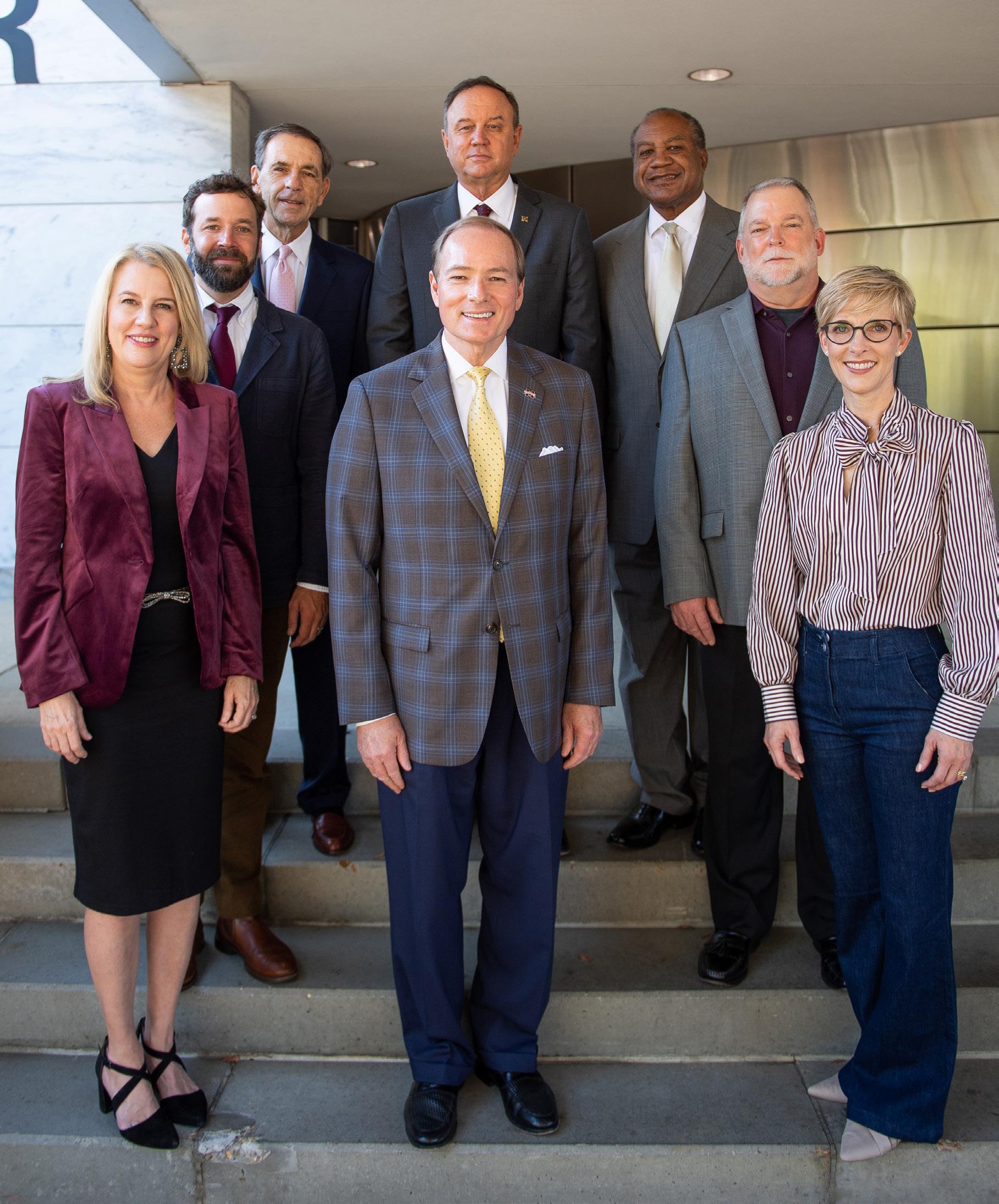
50 SPRING 2023 ALUMNI News
ASSOCIATION ANNOUNCES
2022 Alumni Fellows
By Hailey Jenkins
The Mississippi State University Alumni Fellows program strives to recognize some of the land-grant institution’s most accomplished graduates. The program annually brings one alumnus from each of MSU’s eight academic colleges back to their alma mater for a special three-day visit. In addition to showcasing the achievements of the alumni honorees, the event also facilitates meaningful engagement as fellows share professional experiences and insight for successful careers with current students and the wider university community.
Since its establishment in 1989 by the Mississippi State Alumni Association, more than 250 graduates have been chosen to receive this lifetime honor. The newest class of Alumni Fellows includes:
College of Agriculture and Life Sciences
Ted H. Kendall IV of Bolton is a fifth-generation farmer and second-generation Bulldog who earned a bachelor’s degree in agricultural economics in 1982. After graduation, he returned home to begin his career in the family business, where he serves as president and co-owner of The Gaddis Farms, a family-owned, diversified row-crop, beef cattle, wildlife management and timber farming operation in Hinds County. Throughout his career, Kendall has invested his time and resources in a variety of areas that help advance Mississippi’s agricultural industry. An entrepreneur, community leader, farmer and advocate, Kendall has held and continues to serve in numerous leadership positions, including vice president of the Mississippi Farm Bureau Federation, delegate and chairman for the state of Mississippi on the National Cotton Council and member of the boards of directors for both Southern Farm Bureau Casualty Insurance Co. and Merchants and Planters Bank, among others. He also served as chairman of the USDA Farm Service Agency State Committee for Mississippi and is currently serving as vice chairman of the board of directors for the Mississippi Food Network.
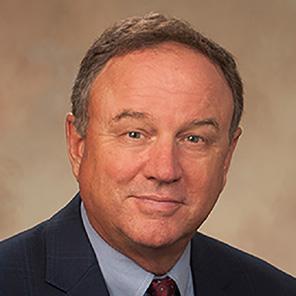
College of Architecture, Art and Design
Ben Jenkins of Dallas, Texas, is the founder and design director of two Texasbased businesses—graphic design and brand strategy agency, OneFastBuffalo, and sporting goods company, Warstic Sports Inc. A former student-athlete who played as a shortstop and outfielder for the Diamond Dawgs, Jenkins credits MSU with helping him to further his art career. He took several classes in graphic design while earning a bachelor’s degree in interdisciplinary studies. After graduating in 1996, Jenkins played minor league baseball for the Philadelphia Phillies for several seasons and later enrolled in graduate school at School of the Art Institute of Chicago. He began producing work as a freelance artist, which eventually led to the 1999 establishment of OneFastBuffalo. In 2010, he founded Warstic Sports Inc., which began with a focus on designing better baseball bats. Warstic bats were approved for use in Major League Baseball in 2016, and the company is now a multisport product development enterprise.


ALUMNUS.MSSTATE.EDU 51
College of Arts and Sciences
Myna Dickerson Sowell of Spring Hill, Tennessee, received her Bachelor of Fine Arts in communication in 1991 and has since remained very engaged with Theatre MSU and the Department of Communication. As a student, Sowell learned lessons in classical work, technical skills and communication methods, participated in seven productions with the theater department and was a member of the Alpha Psi Omega National Theatre Honor Society. Her lifelong love for theater, bolstered by her MSU education, led Sowell to a meaningful career as a standardized patient at Vanderbilt University’s Center for Experiential Learning and Assessment, where she helps train medical students in interpersonal communications through practice in talking to and treating their patients.
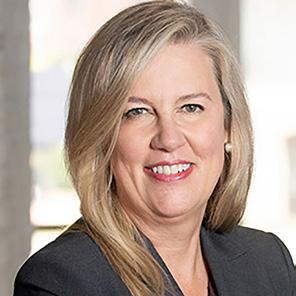
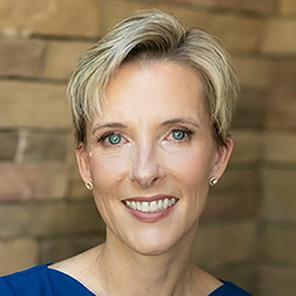

College of Business
Cynthia Cooper of Brandon is an internationally recognized speaker, consultant, best-selling author and advocate. She previously served as the chief audit executive and vice president of internal audit at WorldCom. In 2002, she was named among TIME Magazine’s Persons of the Year for her role in uncovering and reporting fraud at WorldCom, the largest corporate fraud in history. Cooper went on to serve for over two years as vice president of internal audit with MCI, WorldCom’s successor, helping the company move forward and successfully emerge from bankruptcy. She has received numerous awards and recognitions for her contributions, including being the first woman inducted into the American Institute of Certified Public Accountants Business Hall of Fame and an inaugural inductee of the Institute of Internal Auditors American Hall of Distinguished Audit Practitioners. Cooper is a Certified Fraud Examiner who received a Bachelor of Professional Accountancy from MSU in 1986 before going on to pursue her Master of Professional Accountancy at the University of Alabama. At MSU, she serves on the advisory board for the College of Business and has been instrumental in helping the college add the NASBA CPT Certificate in Ethical Leadership to the curriculum. She began her career in public accounting and currently serves as CEO of CooperGroup LLC.
College of Education
John Correro of Starkville has dedicated more than 60 years to Mississippi State University through his years as a student and Bulldog football player, his distinguished career at the university and his continued service as a loyal alumnus. As a student at MSU, Correro served as secretary and treasurer of the campus M Club and later became president. He also was named Mr. MSU and lettered in football for three years. He graduated in 1962 with a bachelor’s degree in social studies and physical education, and later earned a master’s degree in educational administration with a minor in counseling. While working on his master’s, the Greenwood native served as a graduate assistant and assistant freshman football coach for the Bulldogs. In 1964, he moved to Natchez, where he accepted a teaching position and also served as an assistant football coach at Natchez-Adams County High School. He was later promoted to athletic director and head football coach before returning to Starkville to serve as field secretary for the MSU Alumni Association. In 1975, Correro was promoted to associate director and later to executive director, a position he held from 1994 until his retirement in 2005. A former sideline reporter for MSU football’s radio broadcasts from 1979 to 2016, Correro was inducted into the MSU Sports Hall of Fame in 2017.
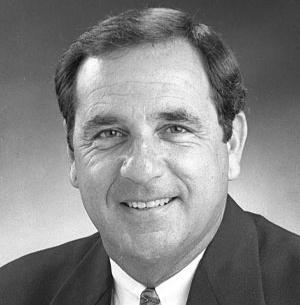
52 SPRING 2023 ALUMNI News
James Worth Bagley College of Engineering
Frederick V. “Fred” Buie of Brookhaven is a two-time Mississippi State University graduate who earned bachelor’s and master’s degrees in industrial engineering in 1978 and 1991, respectively. He began his career with General Electric, where he held project engineering and production management positions in motors, aircraft instruments and lighting departments. Buie also served in the consulting business and as a manufacturing methods engineer for McDonnell Douglas Aircraft. In 1998, he purchased Des Moines, Iowa-based Keystone Electrical Manufacturing Co. The company, which Buie led as president for more than two decades, manufactures protection and control relay panels, medium voltage switchgear, and turnkey control centers used in the generation, transmission and distribution of electric power, and serves the electric utility industry throughout the nation. In 2020, Buie returned to his native Brookhaven, where he retired following the sale of Keystone to a former competitor. At MSU, he serves on the Foundation’s board of directors and the Engineering Advisory Board. He was previously honored by the Bagley College as a Distinguished Fellow in 2008.
College of Forest Resources
Zack Parisa of Piedmont, California, graduated from MSU with a bachelor’s in forestry in 2006. He then went to graduate school at Yale University and earned a master’s degree in forest science in 2009. The following year, he co-founded National Capital Exchange, a data-driven carbon market company, for which he continues to serve as CEO. Over the last decade, Parisa has developed and pioneered precision forestry tools that have revolutionized the way forests are now measured, valued and managed. NCX has also worked with other large companies such as Microsoft to create Basemap—the first high resolution forest inventory in the United States—creating a map of over 92 billion trees that now underpins the NCX market. In 2021, NCX created the largest forest carbon project in the contiguous U.S. and was named on the 2021 Environment and Energy Leader 100 list. Parisa was also a candidate for the Pritzker Emerging Environmental Genius award from the University of California Institute of the Environment and Sustainability.
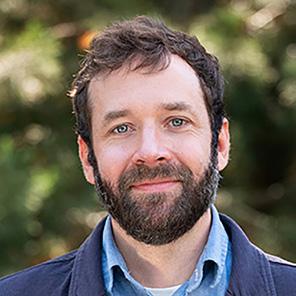

College of Veterinary Medicine
Rance M. Gamblin, DVM of Akron, Ohio, is a Jackson native who enrolled at MSU in the fall of 1985 as a member of the first class of the College of Veterinary Medicine’s Early Entry Program. He received his bachelor’s degree in biological sciences in 1988, followed by a Doctor of Veterinary Medicine in 1992. After graduating, Gamblin completed a rotating small animal internship at Colorado State University’s College of Veterinary Medicine and Biomedical Sciences. Following his internship, he served as a research associate in experimental radiation therapy before relocating to begin a clinical oncology/hematology residency at Ohio State University. Upon completion and passing certification examinations in 1997, Gamblin became a Diplomate of the American College of Veterinary Internal Medicine’s Specialty of Oncology. For the last 25 years, Gamblin has been a clinical veterinary oncologist in private practice as well as a partner and co-owner of Akron, Ohio’s Metropolitan Veterinary Hospital—one of the oldest 24/7 emergency and referral veterinary hospitals in the United States.

More information on the 2022 class of MSU Alumni Fellows and the alumni association can be found at www.alumni.msstate.edu/alumnifellows
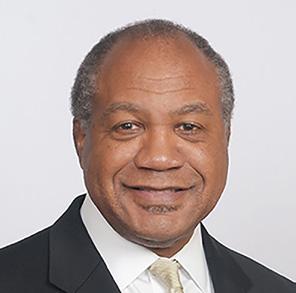
Ware joins MSU fundraising staff
The MSU Foundation has welcomed Allie Ware as the newest member of the development staff. A former student-athlete and experienced fundraiser, she joined the fundraising team in September as an assistant athletic director for development.
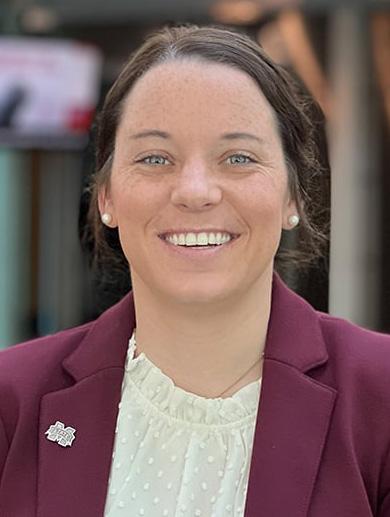
Ware began her career in 2014 with global sports and entertainment marketing firm The Aspire Group, where she was responsible for overseeing ticket sales for NCAA Championships and the U.S. Open. She also instituted fan experience packages for the 2016 NFL Pro Bowl and was recognized twice as the top sales consultant within the company.
Raised in Alpharetta, Georgia, Ware earned a bachelor’s degree in sociology from the University of Richmond and a Master of Education in higher education leadership at Mercer University. She was a four-year member of the women’s lacrosse team at the University of Richmond and served as captain her senior year.

Before coming to MSU, she served as an assistant athletic director of development at Yale University. Ware also has previous athletic fundraising experience from both the University of Richmond and Mercer.
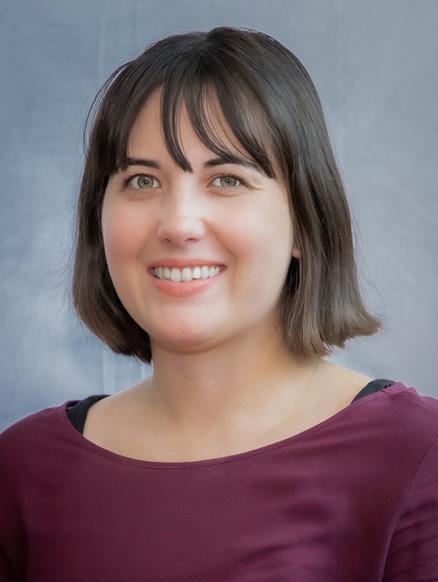
Ware can be reached at 662.325.0965 or aware@ athletics.msstate.edu. For more on the work of the MSU Foundation, visit msufoundation.com
ALUMNI ASSOCIATION WELCOMES MISUN
Kaci Misun assumed a new role within MSU’s Division of Development and Alumni in October. Having previously served as office associate with the annual giving team for the last year, she will now serve as administrative assistant for the Alumni Association. The Biloxi native is a 2017 MSU College of Education graduate and former intern of the college’s T. K. Martin Center for Technology and Disability. In addition to her new position, Misun also is pursuing a master’s degree in workforce education leadership at MSU.
54 SPRING 2023 ALUMNI News
For more information about purchasing a Mississippi State University car tag, please visit alumni.msstate.edu/cartag


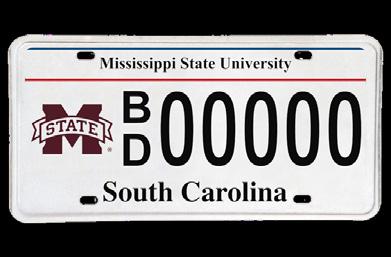
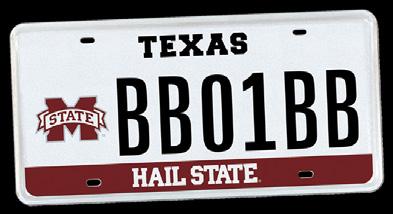

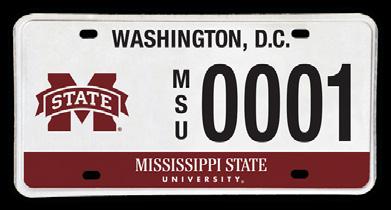


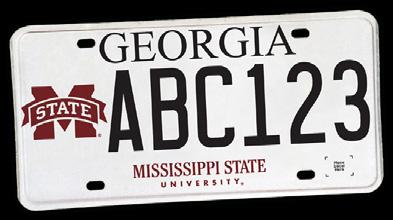

ALUMNUS.MSSTATE.EDU 55
2023 Alumni Delegate Officers
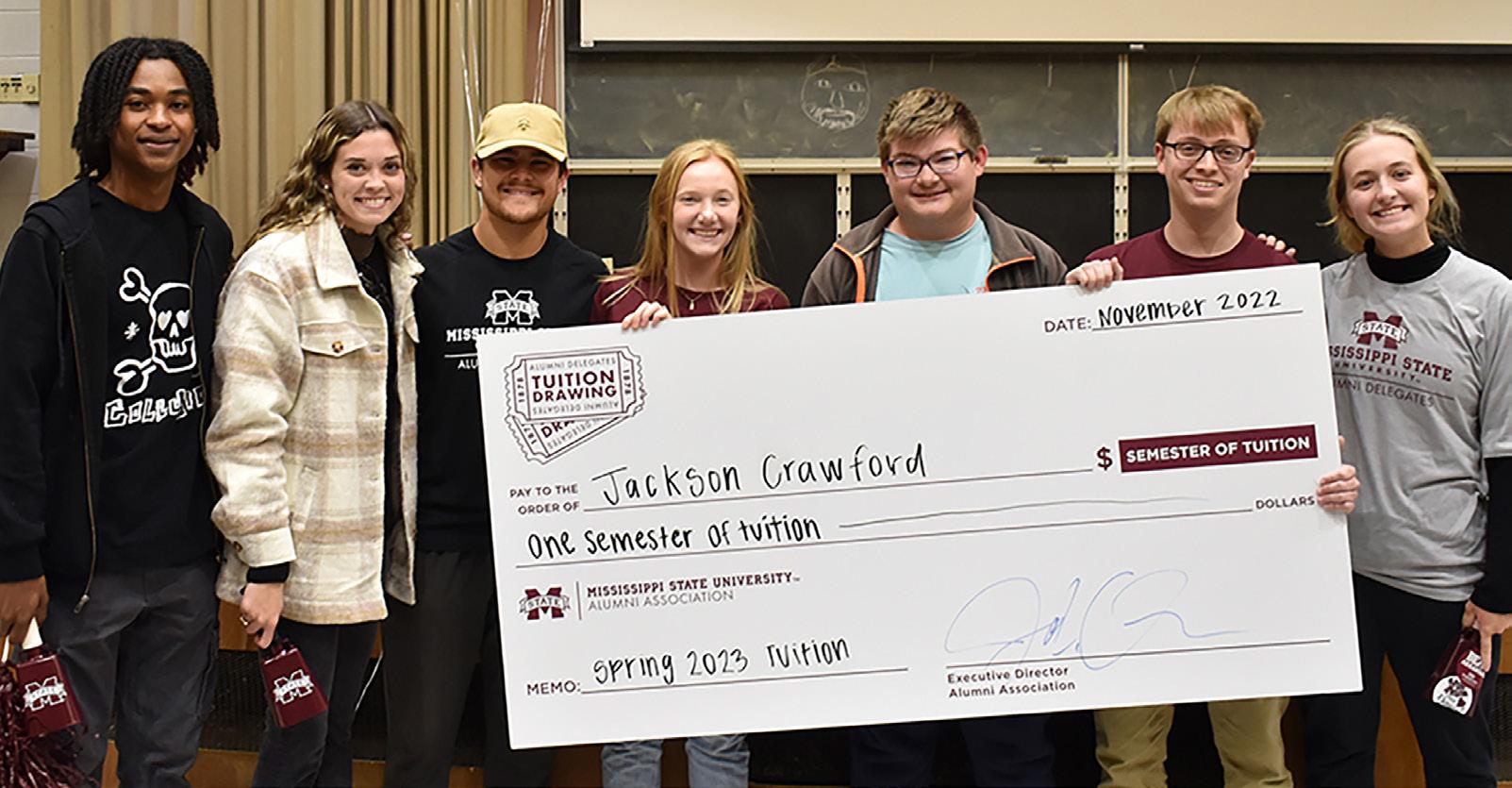
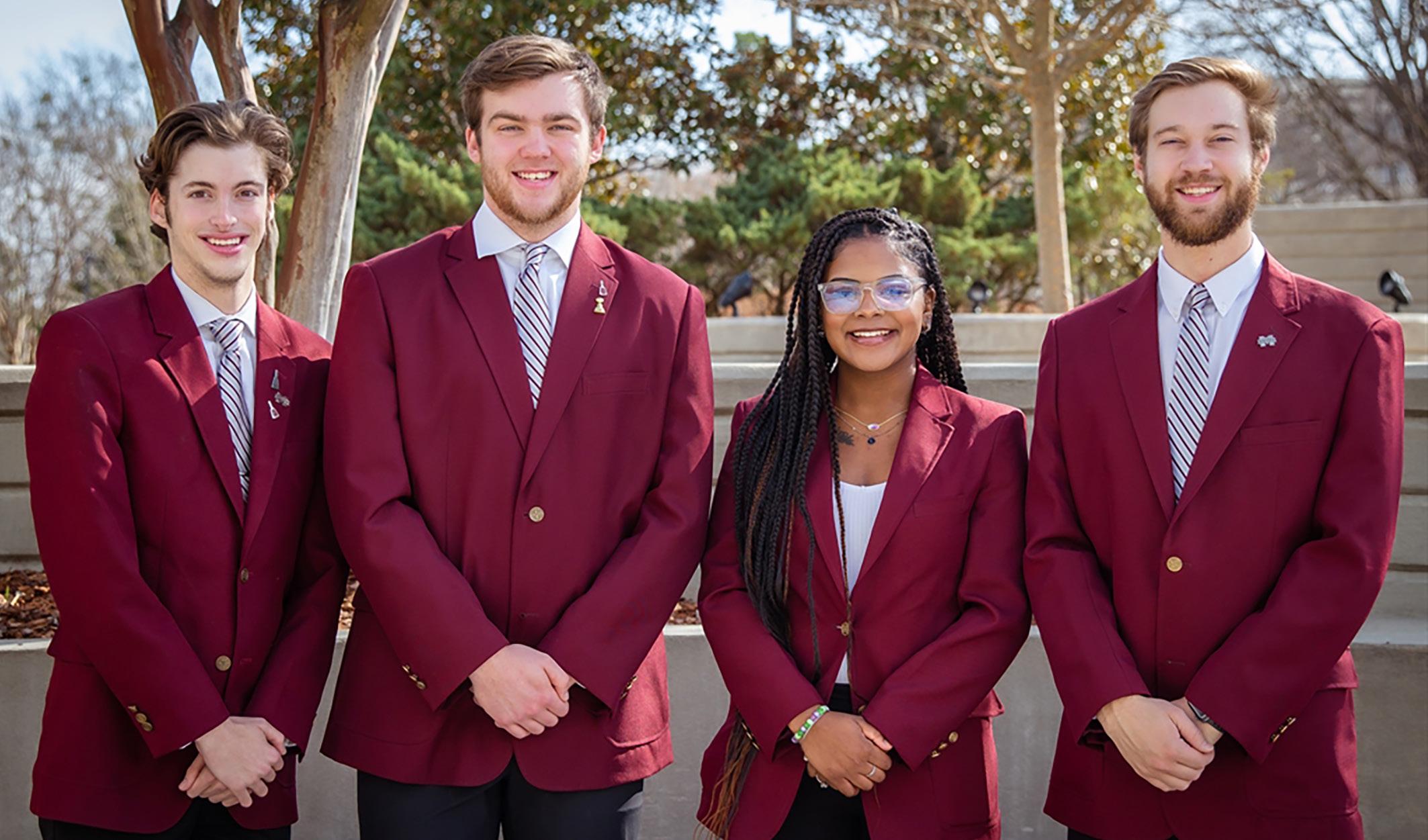
56 SPRING 2023 ALUMNI News
Mississippi State University sophomore Jackson Crawford of Pass Christian, third from right, is the winner of the MSU Alumni Association’s 18th tuition drawing. Crawford, a physics major, is receiving free, full-time tuition this semester.
L-R: Dehn Basham, vice president of public relations; Bailey Harrison, president; Omega Storey; vice president of member education, and Christopher Ogburn, secretary
Tuition Winner
RING Ceremony
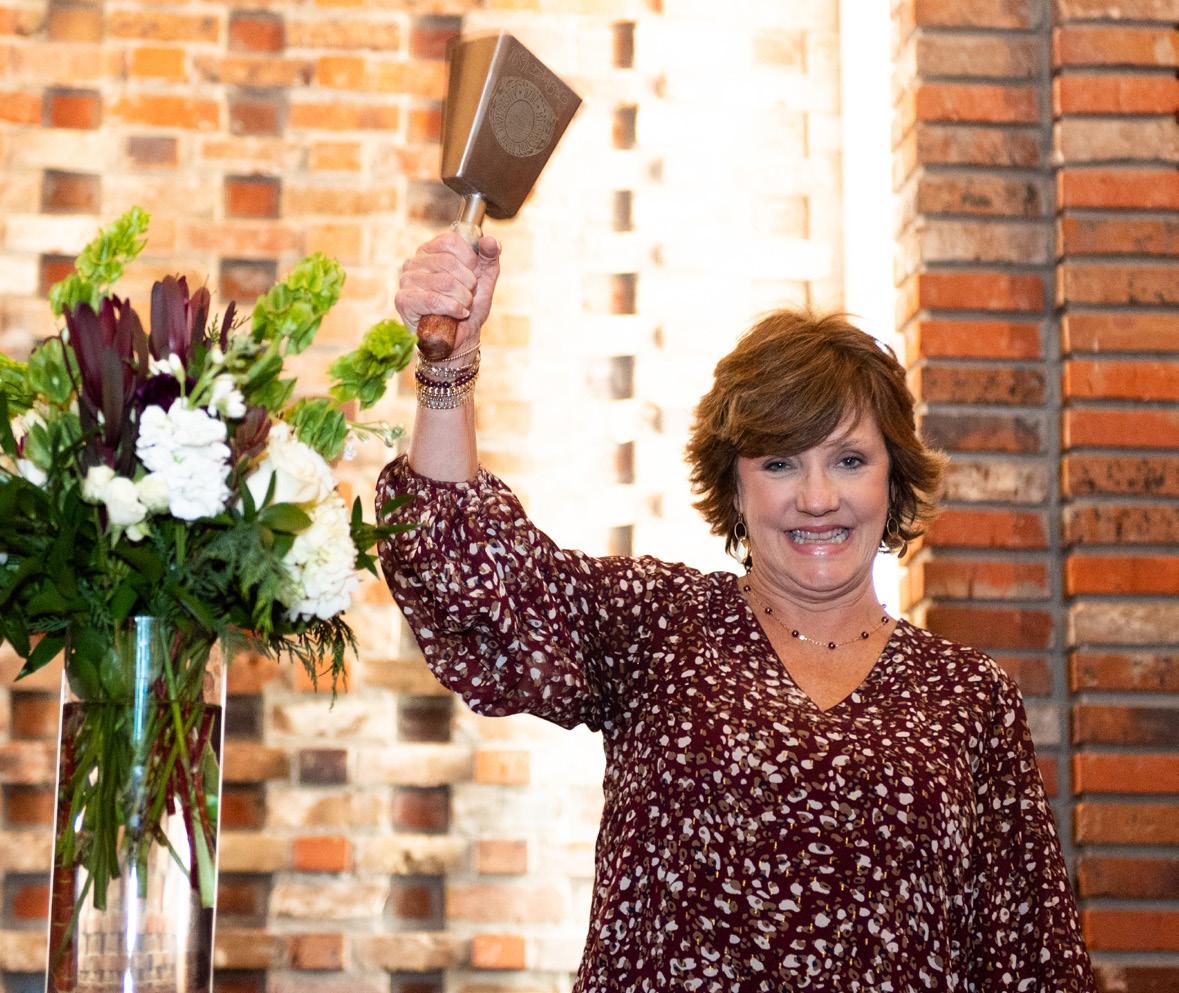
Prior to each spring and fall commencement, the MSU Alumni Association hosts The Ring at MSU, a time-honored tradition for the presentation of the university’s official class rings. Nearly 50 Bulldogs received rings, presented by MSU President Mark E. Keenum, during the December 2022 ceremony. Proud alumna Sherri Carr Smith of Gulfport was recognized by the Alumni Association as the fall ring honoree. As one of the university’s most loyal supporters, Carr Smith received a special class ring for her outstanding service and dedication. She is a 1986 communication graduate who is the immediate past national president of the Alumni Association.
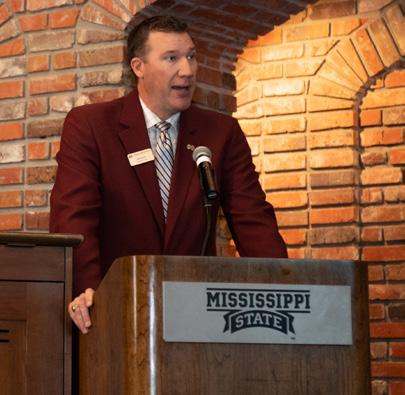

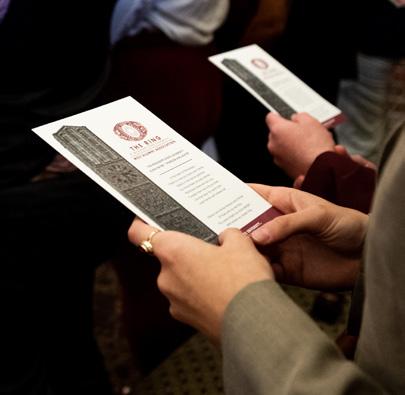
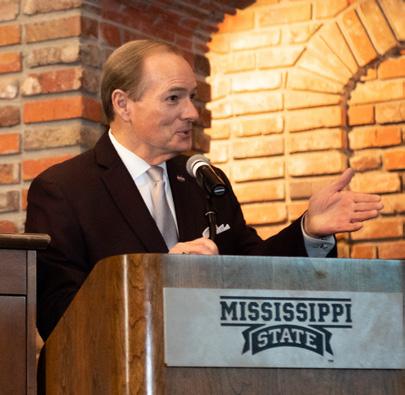

ALUMNUS.MSSTATE.EDU 57
Impact by Ironwood offers the latest payment products, like IronChoice, designed to reduce or eliminate the cost of accepting credit cards with solutions to fit your business needs.

• Countertop terminals
• Contactless payments
• Mobile payments
• Online ordering & eCommerce
• Point-of-sale options
• Invoicing & text-to-pay
• Recurring payments

When you process your payments with Impact, we give a portion of our revenue to support Mississippi State University. Visit our website for a no-obligation consultation.

impactmsstate.com

58 SPRING 2023
Attention Alumni-Owned Businesses, Eliminate Credit Card Processing Fees & Support Mississippi State University
Ironwood is a registered ISO/MSP with Merrick Bank, South Jordan, UT, and Fifth Third Bank, N.A., Cincinnati, OH.

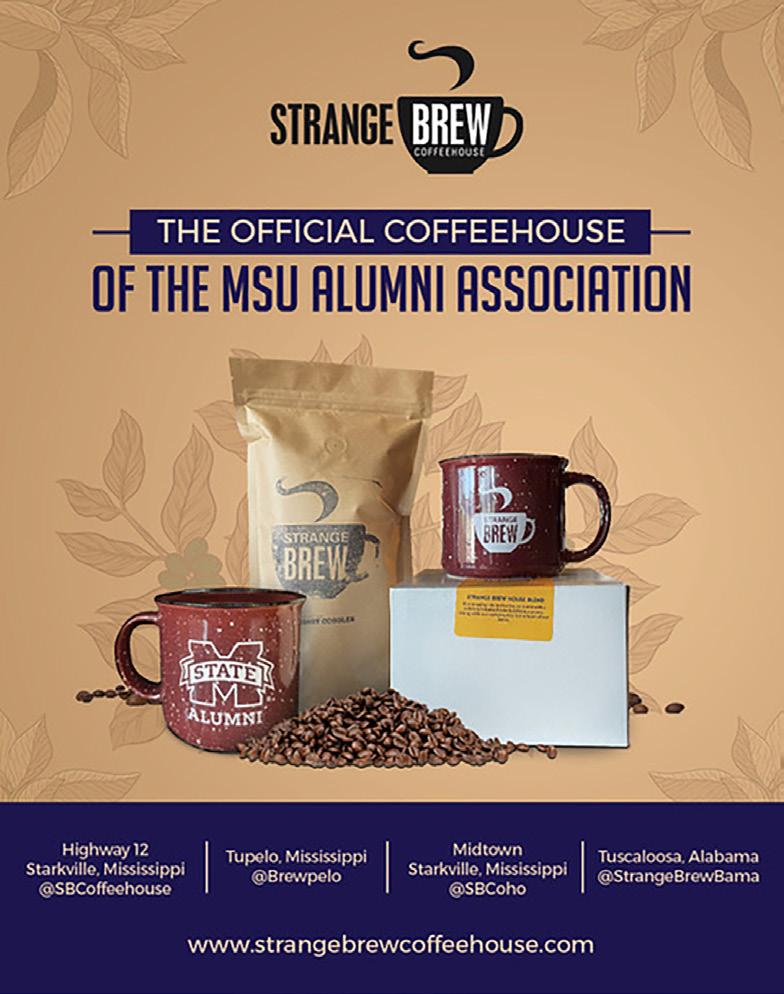

















ALUMNUS.MSSTATE.EDU 59
MSU Alumni Association announces new partnership with Farm Bureau Insurance
Asignificant investment from Farm Bureau Insurance, one of the largest property and casualty insurance companies in the country, has secured the organization as the Mississippi State University Alumni Association’s official partner for auto, home and life insurance.
The partnership comes through a three-year sponsorship commitment from Mississippi Farm Bureau Casualty Insurance Company, a subsidiary of Southern Farm Bureau Casualty Insurance Company. Headquartered in Jackson, the organization has agents in all 82 counties across the state, as well as operations in Arkansas, Colorado, Florida, Louisiana and South Carolina.
The strategic alliance, which promotes Farm Bureau Insurance as an exclusive partner, will also benefit the MSU Alumni Association as proceeds from the commitment will support alumni activities and events.
“We are excited to welcome Farm Bureau as the official insurance partner of the MSU Alumni Association,” said Jeff Davis, executive director of the MSU Alumni Association. “Farm Bureau is a first-class company that serves thousands of Bulldog policyholders, and we are grateful for all they do to support Mississippi State.”
Farm Bureau has served Mississippi and communities around the Southeast for more than 70 years. It holds the superior “A+” rating from AM Best, a distinction
held by less than 20% of property and casualty companies. The company believes in supporting the communities it is a part of and has been a proud supporter of MSU for many years.
“The mission of the MSU Alumni Association is to foster a connection between its alumni and the university. As we work to uphold that charge, we’re proud to be able to partner with local businesses, like Farm Bureau, whose reputation of support for our university and our shared constituents further underscores our efforts,” said Leanna Smith, assistant director of alumni partnerships and business development. “Bulldog alumni can now benefit from Farm Bureau’s quality service and insurance offerings, as well as the enhanced alumni programs supported through this valuable partnership.”
Mississippi Farm Bureau Insurance stands among several companies the association has formed an official partnership with to offer enhanced services to MSU’s growing alumni base—which currently stands at approximately 158,000 members. The company is available online at www.msfbins.com. Additional information about Southern Farm Bureau Casualty Insurance Company’s offerings and finding the nearest agent can also be found at www.sfbcic.com
To learn more about partnership opportunities with the MSU Alumni Association, contact Leanna Smith at lsmith@alumni.msstate.edu or 662.325.3360. n
60 SPRING 2023 GIVING Back
“We are excited to welcome Farm Bureau as the official insurance partner of the MSU Alumni Association. Farm Bureau is a first-class company that serves thousands of Bulldog policyholders, and we are grateful for all they do to support Mississippi State.”
~ Jeff Davis
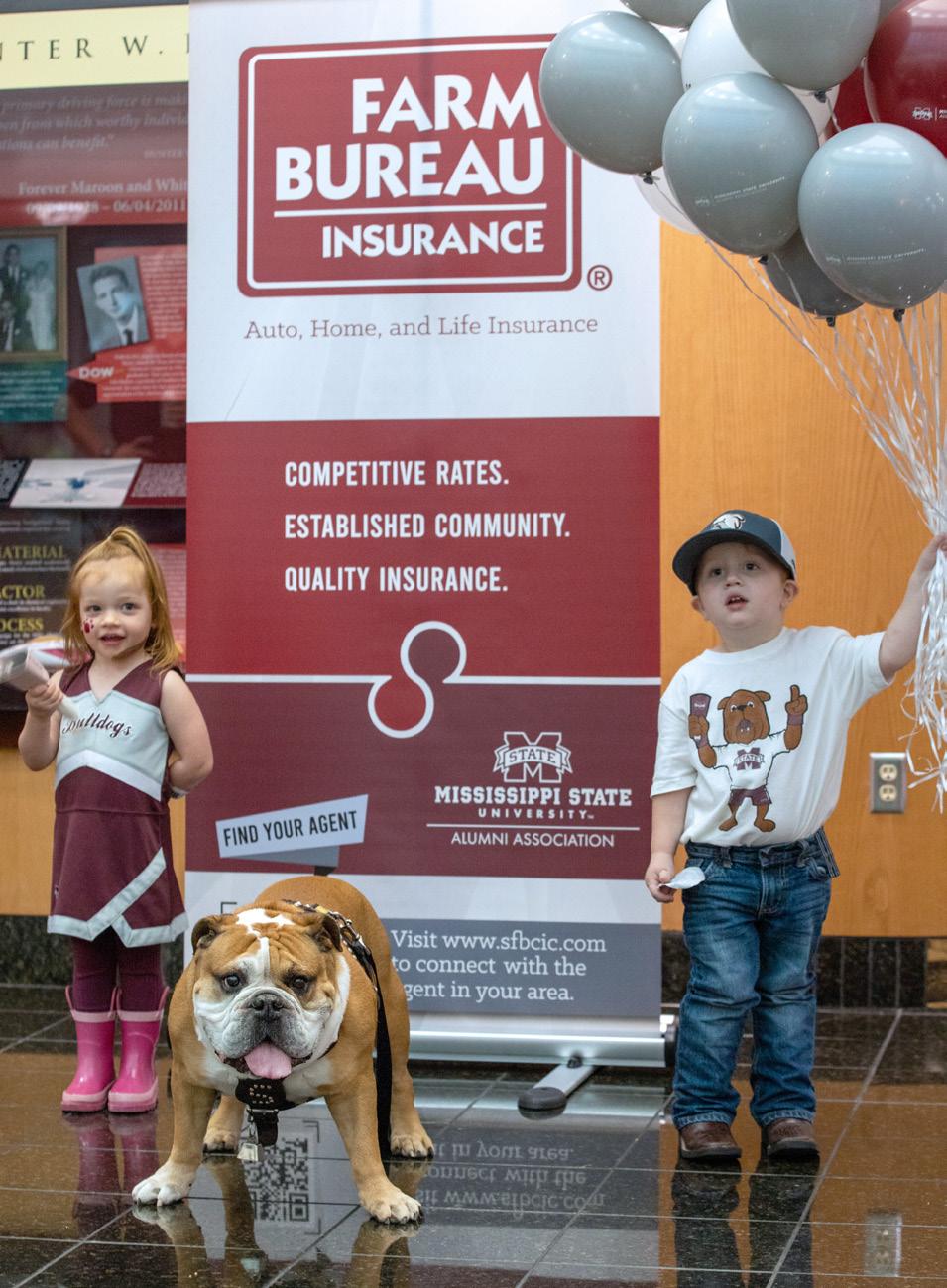
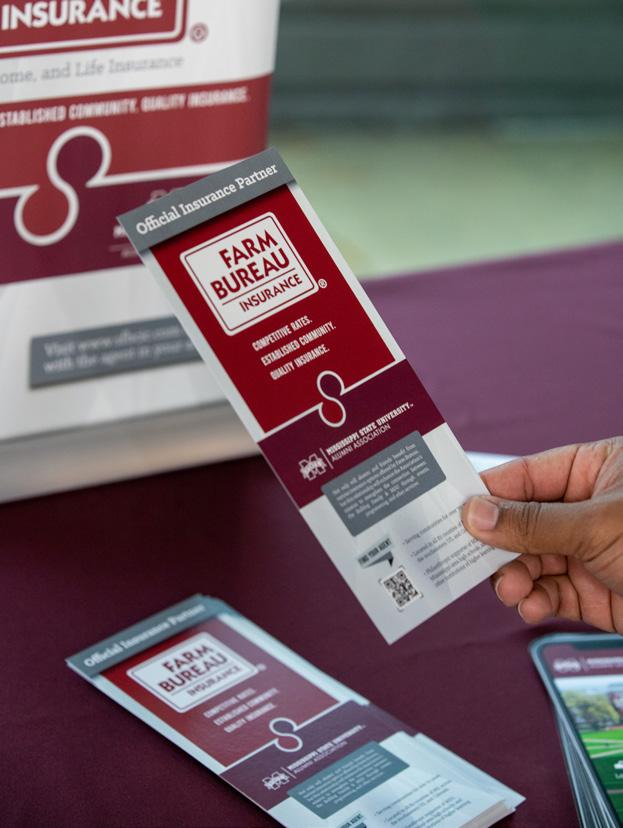


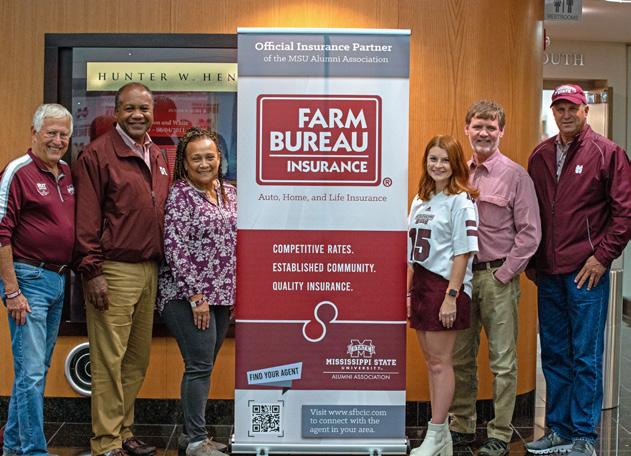
ALUMNUS.MSSTATE.EDU 61

62 SPRING 2023 GIVING Back
MSU announces plans to construct Jim and Thomas Duff Center
By: Addie Mayfield
Mississippi State University will soon begin construction on a new, centralized home for the university’s Autism and Developmental Disabilities Clinic, Disability Resource Center and Department of Kinesiology thanks to a cornerstone commitment from brothers Jim and Tommy Duff of Columbia.

Support from the $15 million gift will enhance disability services and related educational studies at MSU through the establishment of The Jim and Thomas Duff Center. The 100,000-square-foot facility will provide state-of-the-art offices, classrooms and laboratories that enable increased hands-on training in the areas of physical and developmental disabilities, as well as kinesiology.
Moreover, in bringing the three critical MSU programs together under one roof, The Jim and Thomas Duff Center will foster a cohesive learning environment that will benefit students and practitioners while serving as a vital resource for Mississippi children and families.

“The new Jim and Thomas Duff Center will be a hub of innovative learning, research and outreach that will be transformational on our campus. This visionary investment that the Duff brothers are making in our university will benefit generations of our students, as well as the many children and families we will be able to better serve with expanded facilities, services and resources,” said MSU President Mark E. Keenum.
“The Duff’s generosity and leadership are making a true difference here at Mississippi State and in communities across Mississippi," he continued. "We appreciate their support, and we are grateful for the opportunity to work with them to help move our state forward.”
Final approval for the project was granted by the Mississippi Board of Trustees of Institutions of Higher Learning in the fall of 2022. With construction slated to begin this year, the center will be located at the campus core near the MSU Drill
ALUMNUS.MSSTATE.EDU 63
Field. Its footprint and adjacent quadrangle will replace McCarthy Gymnasium, current home of the Department of Kinesiology.
“The Jim and Thomas Duff Center will open a world of opportunity for our faculty and students, and in turn, those around us,” said Stanley Brown, MSU professor and head of the Department of Kinesiology. “As a faculty, our goal is to express the highest appreciation for this generous gift through the output of remarkable students and significant research—both of which showcase the meaningful progress facilitated by Mississippi State University, the state of Mississippi and the Duffs’ dedication on a global level.”
Known for their entrepreneurial and philanthropic spirits, Jim and Thomas Duff are the owners of Duff Capital Investors, a privately owned company headquartered in Columbia. Comprised of over 20 businesses from trucking, tires and automotive to construction, energy and insurance, it is the largest collective enterprise in the state. DCI provides more than 13,000 employment opportunities across the nation and generates just under $4 billion in total revenue.
Many DCI companies have distinguished themselves as leaders in their respective industries, including Southern Tire Mart, the largest commercial tire dealer and retread manufacturer in North America, and KLLM Transport Services, the second largest temperature-controlled carrier in the U.S.

The brothers give to a wide variety of organizations and charities. In particular, they are committed supporters of the communities in which their Southern Tire Mart stores operate and the higher education system across the state of Mississippi.
“Mississippi State is really doing good things for the state, and we want to be a part of that," Jim said. "It’s important to us to give back because it makes a difference for a lot of people.”
As someone who experiences dyslexia, Jim said he understands first-hand the difficulties of a learning disability and hopes The Jim and Thomas Duff Center will be an essential source of support for students in need of assistance.
“I didn’t do well in school, and I’ve competed my whole adult life with people who are very educated. So, to me, education is very important,” Jim said. “It brings me great satisfaction to be able to help this program and
to invest in our state’s wonderful universities that are changing people’s lives every day.”
Thomas, who is known as Tommy, saw the negative effect his brother’s experience had on his time as a student. As a result, he wants their investments to help others see and experience education as an opportunity rather than an obstacle.
“Education should bring out the best in everyone,” Tommy said. “We hope this gift will enable a center where students can grow their skills and self-confidence. There are a lot of bright kids in our state and at MSU, and we want them to have the ability to realize their potential to compete and succeed regardless of their means.”
The Department of Kinesiology, housed in the College of Education, has the largest enrollment of any department at MSU. Offering five unique concentrations for undergraduate kinesiology majors, as well as specialized master’s and doctoral-level graduate training, the department supports the activities of a wide range of academic and research studies.
“Many think of kinesiology as being concerned only with the performance of athletes; however, a large portion of our department is focused on improving the health, safety, and capabilities of all,” explained JohnEric Smith, an associate professor of exercise physiology.
MSU’s kinesiology department has six unique laboratories, including the Human Energetics and Thermoregulation Laboratory, of which Smith is director. The expansion delivered through the Duff Center will allow the department to double this number with the addition of six new specialized lab spaces, which has been a longtime goal. According to Smith, the research cultivated in these areas will not only help those participating in these studies but also will provide educational opportunities to those working with these populations.
“The Duff Center is going to make the Department of Kinesiology at Mississippi State University a premier destination for academic study and research in the SEC, the region and the nation," Smith said. "Having a facility designed from the ground up to explore the current issues in health, physical activity, sport administration, sport marketing and human performance will provide MSU a competitive advantage in recruiting future
64 SPRING 2023 GIVING Back
“Education should bring out the best in everyone. We hope this gift will enable a center where students can grow their skills and self-confidence. There are a lot of bright kids in our state and at MSU, and we want them to have the ability to realize their potential to compete and succeed regardless of their means.”
~ TOMMY DUFF
students and faculty, in addition to securing research funding.”

Also housed within the College of Education is MSU’s Autism and Developmental Disabilities Clinic, an outreach service, training and research clinic under the direction of the college’s Department of Counseling, Educational Psychology and Foundations. Acting as the flagship clinic of the School Psychology Services Center, the clinic officially opened its doors in March 2014 with a mission to provide high quality clinical services to the community, train future professionals and engage in research to enhance understandings of the autism spectrum and developmental disorders.
When the clinic first started, it was serving five children. Now, clinic personnel meet with approximately 100 children every week, helping to fill the growing need for clinical services in North Mississippi. Additionally, the clinic runs the Autism Liaison program that provides services to degree seeking MSU students with autism, a service that is unique to the university.
“With the establishment of the Duff Center, Jim and Tommy have forever changed

the landscape of support for individuals with disabilities in the state of Mississippi,” said Dan Gadke, clinic director and associate dean for research in the College of Education. “Not only will this center serve to support direct interventions and long-term life outcomes for individuals with a wide variety of need but it will also offer a lifeline for families, professionals, educators and trainees throughout our state.
“Most notably, this generous gift grants the Autism and Developmental Disabilities Clinic the opportunity to train future professionals who will continue to advance psychological, behavioral and educational needs in Mississippi," Gadke continued. "By having a state-of-the-art center, we become even more competitive for research grants benefiting disability work and recruiting high quality students to advance our state. Jim and Thomas’ impact will resonate throughout Mississippi far past our lifetime and we are so very thankful for their generosity.”
For more information on The Jim and Thomas Duff Center development contact Les Potts, MSU’s associate vice president for administration at 662.325.5864. n
ALUMNUS.MSSTATE.EDU 65
“Mississippi State is really doing good things for the state, and we want to be a part of that. It’s important to us to give back because it makes a difference for a lot of people... It brings me great satisfaction to be able to help this program and to invest in our state’s wonderful universities that are changing people’s lives every day.”
~ JIM DUFF
Thomas and Jim Duff (Photo submitted)
MSU CELEBRATES OPENING OF NEW MUSIC BUILDING
Mississippi State celebrated its new state-of-the-art Music Building with an official ribbon cutting ceremony in November. The $21 million project has been a longtime university goal and provides a new space for the Department of Music, part of MSU’s College of Education.
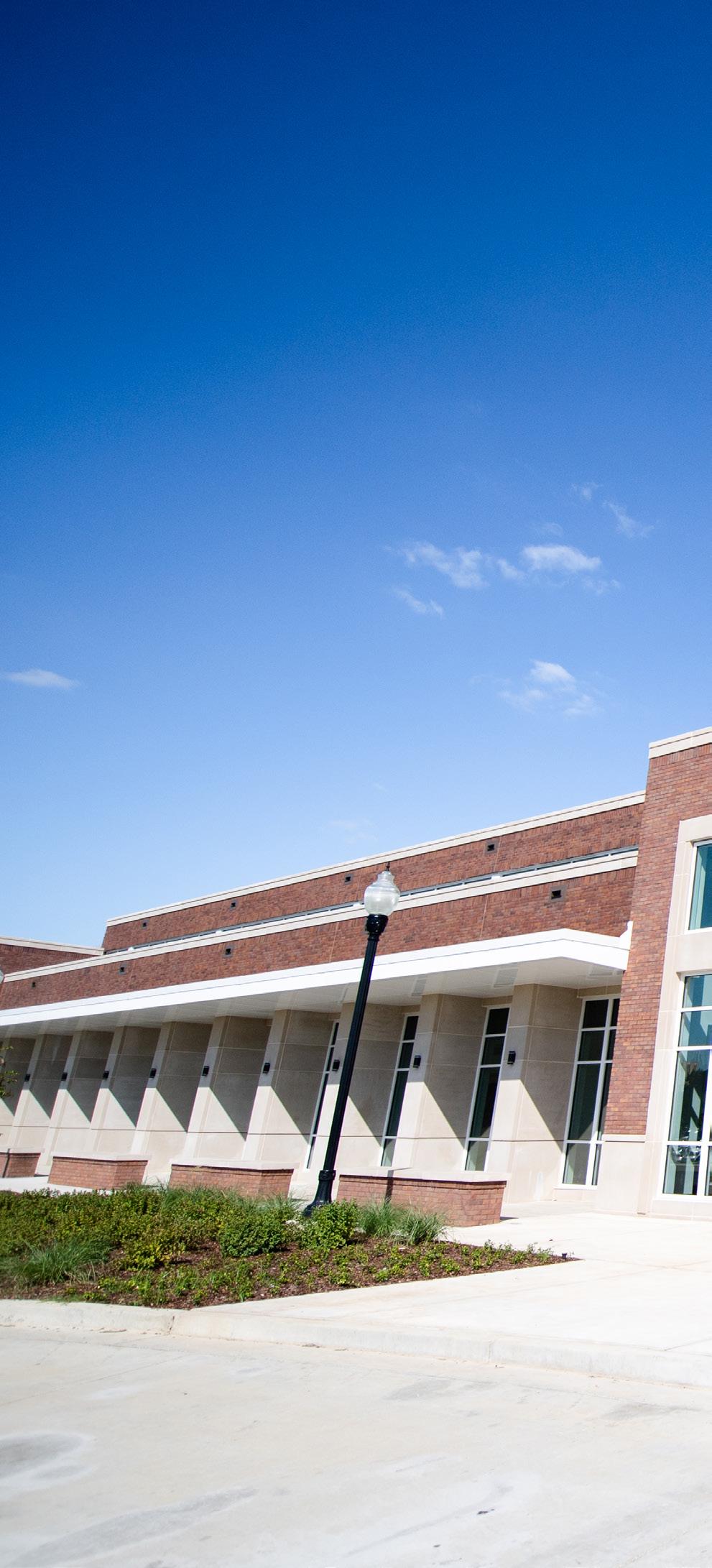
MSU President Mark E. Keenum said the university has enjoyed remarkable growth on campus over the past decade thanks in part to members of the Mississippi State family who have helped the institution advance.
“We are most thankful for the generosity of the many alumni and friends who have invested in our wonderful new Music Building,” Keenum said. “This support will enable our world-class faculty and staff and our talented students to reach new heights as they teach and learn, pursue research and creative discovery opportunities, and serve the larger community with innovative outreach programs and performances.”
The 37,000-square-foot facility, located at 124 Hardy Road, includes classrooms, a choral rehearsal hall, faculty offices, sound-proof practice rooms, a recording studio, lecture and recital hall, student lounge, and administrative suite. Hoppy Allred with Allred Stolarski Architects in Ocean Springs is the design professional for the facility, and Hattiesburg-based Mac’s Construction Company Inc. is the general contractor.
66 SPRING 2023 GIVING Back
“The beauty of our new music complex is that it intensifies the driving force toward collective success and encourages collaboration for faculty and students in research and creative activity."
~Daniel Stevens
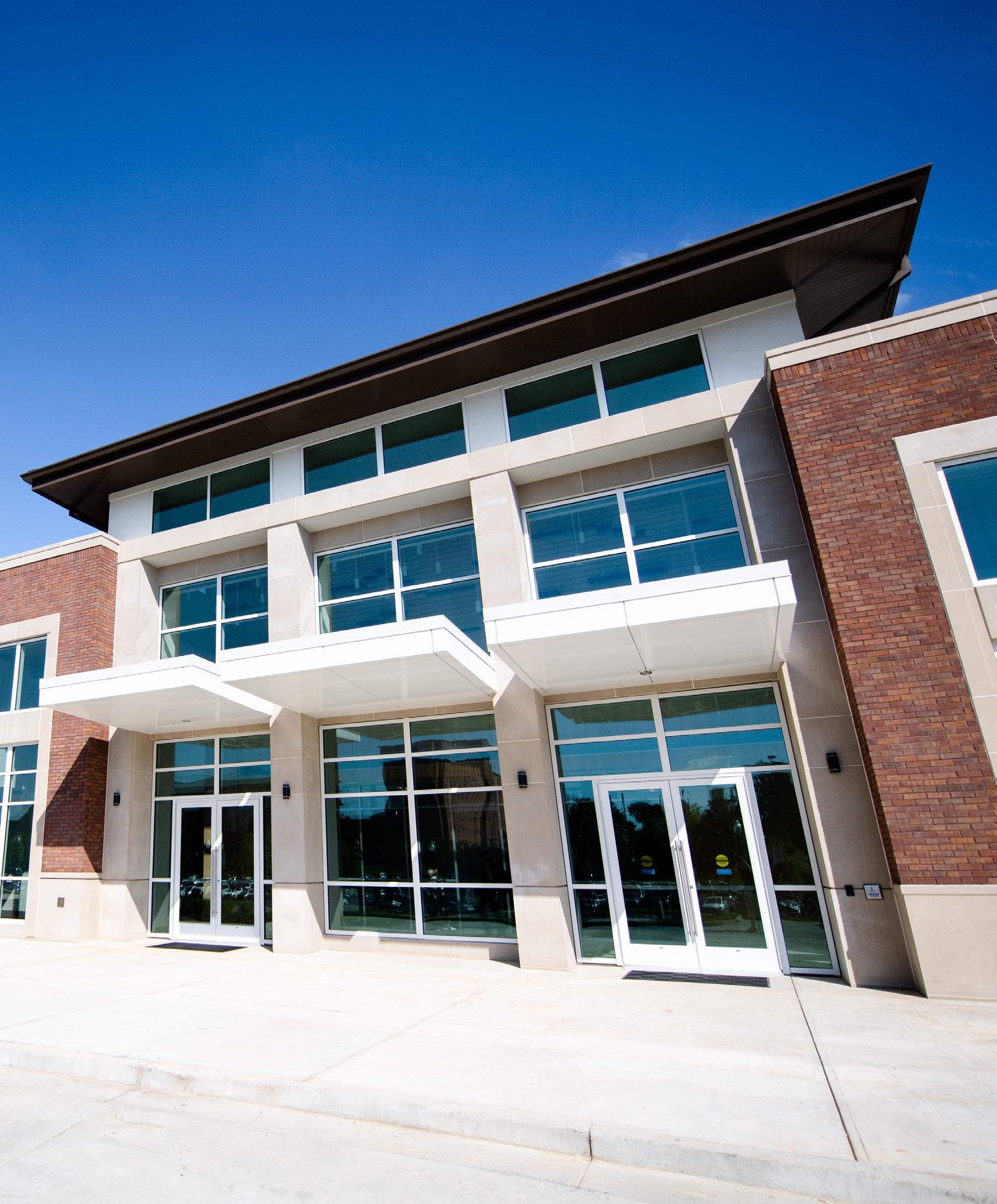
ALUMNUS.MSSTATE.EDU 67
Following the ribbon-cutting ceremony, a reception was held to commemorate the milestone achievement. A series of both vocal and instrumental performances by faculty and students further highlighted the event, and student ambassador-led tours of the building provided alumni and friends with a first-hand look at the remarkable new space.
David Shaw, MSU provost and executive vice president, said the ribbon cutting wasn’t just a celebration of the new space.
“We are also celebrating the outstanding vision, collaboration and hard work of the many individuals who made this building a reality,” he said.
Shaw called the new Music Building a “shining example” of the capital improvements made at MSU in recent years. Allowing the music department and choral
program to be housed in one location, the project also enables the band program to maximize its existing building.
Teresa Jayroe, dean of the College of Education, said students and faculty eagerly awaited the new facility that, in conjunction with the adjacent Kent Sills Band Hall and marching practice facility, offers a competitive and modern complex for music majors and band members.
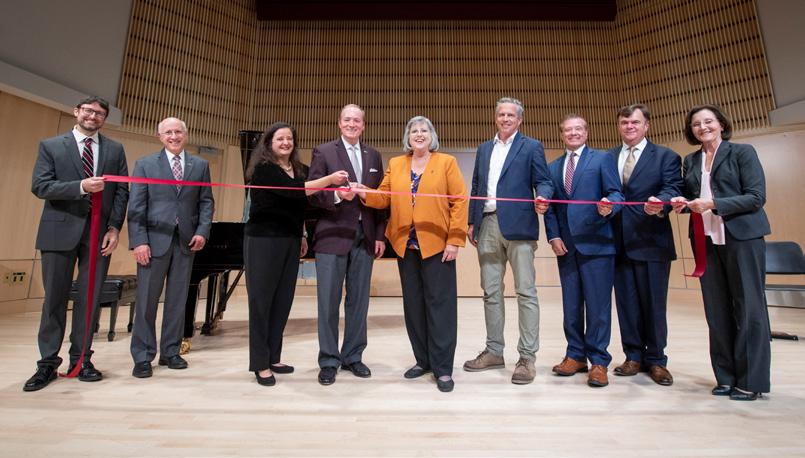
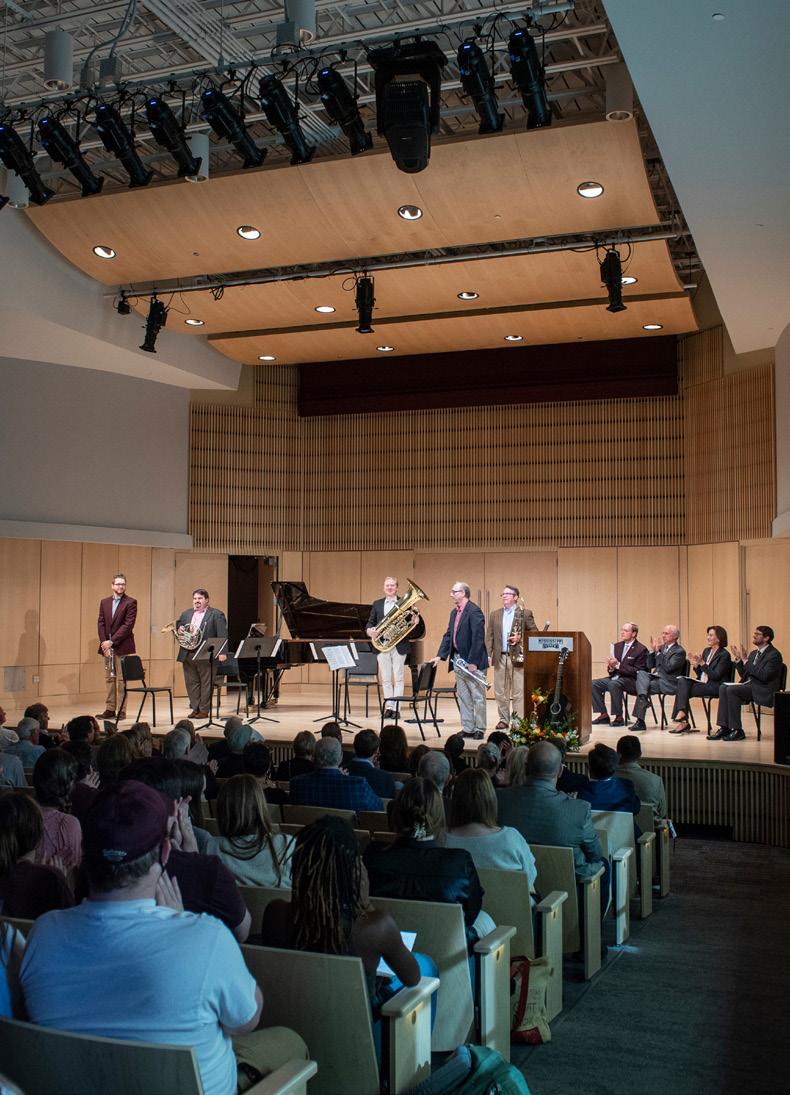
She also thanked the many supporters of the project including Shaw, the State College Board and the Mississippi Legislature, as well as alumni and friends who have generously contributed through private support.
“The beauty of our new music complex is that it intensifies the driving force toward collective success and encourages collaboration for faculty and students in research and

creative activity,” said Daniel Stevens, head of MSU’s Department of Music.
Additional opportunities exist within the new Music Building to name select features, including classrooms, offices, studios and performance halls, among other areas with endowment-level gifts. Such contributions provide adaptive support for the building’s furniture, fixtures and equipment, as well as future maintenance and upkeep, while also serving as an investment in the quality training and experiences of the next generation of musicians.
For information on naming opportunities, endowments and other ways to support MSU’s Department of Music, contact Trish Cunetto, director of development for the College of Education, at 662.325.6762 or tcunetto@foundation.msstate.edu. n
68 SPRING 2023 GIVING Back
Mississippi State celebrated its new state-of-the-art Music Building with an official ribbon cutting ceremony in November. A series of both vocal and instrumental performances by faculty and students further highlighted the event, and student ambassador-led tours of the building provided alumni and friends with a firsthand look at the remarkable new space.
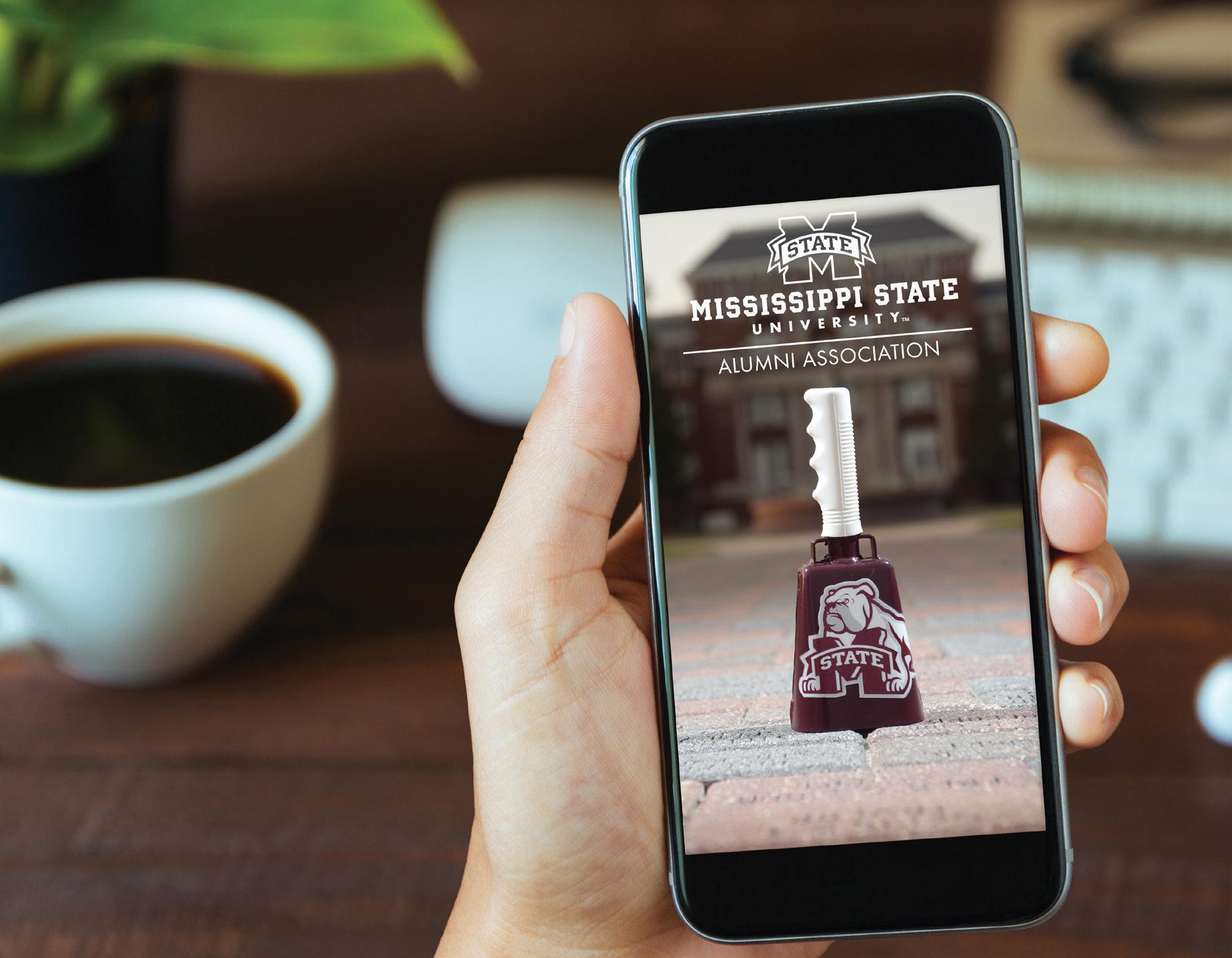


ALUMNUS.MSSTATE.EDU 69 Get exclusive discounts at participating businesses Find your alumni chapter or club and catch up on alumni and MSU news Stay connected and share your #HailStateAlumni experience Make your impact and donate to Mississippi State University
DOWNLOAD TODAY! Get the official MSU Alumni Association app to connect with Bulldogs everywhere!
ONE APP: ENDLESS CONNECTIONS
1960s
Harris H. “Trip” Barnes III (B.A. political science, ‘68) was recognized for 50 years of practicing law by the Mississippi State Bar and the University of Mississippi School of Law. He is the managing partner of Barnes, Bailey and Janoush, P.A. of Flowood. In addition to his degree from MSU and a Juris Doctor from Ole Miss, he graduated from the University of Florida graduate tax program. He is an AV Preeminent Rated Attorney by Martindale Hubbell and a member of the National Association of Distinguished Counsel. He was also named a Super Lawyer by Mid-South Magazine and is part of the Marquis Who’s Who.
1980s
Kenny Crenshaw (B.S. agricultural engineering technology and business, ‘84) delivered the Dedication of Work Speech during the opening ceremonies of the National Association of Landscape Professionals Renewal and Remembrance 26th annual volunteer beautification event at Arlington National Cemetery. The annual event coordinates the volunteer efforts of landscape professionals from across the country to enhance the grounds of the cemetery. Crenshaw, who is president of Memphis, Tennessee-area lawn-care company Herbi-Systems, is in his 18th year of leadership with the group.
Jo Ann Herold (B.A. communication, ’87) has released a book, “Living on a Smile: 16 Ways to Live a Big Life and Lead with Love.” Part memoir and part leadership guide, the book chronicles her path to becoming a top executive in her field. Herold has decades of experience in marketing and brand management, having held executive roles with Arby’s Inc., Interface Inc. and The Honey Baked Ham Company LLC. She has been recognized as one of the Most Powerful and Influential Women by the National Diversity Council.
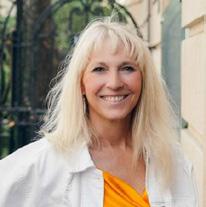
1990s
Todd Hunt (BBA management, ‘90) received the Ray Ward Award from the Venue Management School of the International Association of Venue Managers, considered one of the best professional education programs in the field. Hunt has taught with the school since 2014 and has served since 2020 as senior vice president of Venue Coalition, a live entertainment consulting company. He previously served as director of Humphrey Coliseum and athletic concessions at Mississippi State before becoming director of BancorpSouth Arena in Tupelo.
Jeanetta Tankson (B.S. microbiology,’92, Ph.D. animal physiology, ’01) was featured on the USDA Food Safety and Inspection Service website. A staff officer with the Laboratory Quality Assurance, Response and Coordination unit, she is based out of the Richard B. Russell Agricultural Research Center in Athens, Georgia, where, in addition to laboratory audits, policy development and methods evaluation, she is a subject matter expert in various laboratory projects.
Calvin Hawkins (B.S. educational psychology, ’95) released a new book, “Under the Dusty Sand,” which explores the life of African Americans in Yalobusha County from 1870-1970. It is available on Amazon.
William J. Williford (B.S. petroleum engineering, ‘95) has been named executive vice president and chief operation officer of W&T Offshore Inc. He joined the company in June 2006, most recently serving as executive vice president and general manager, Gulf of Mexico. He has over 20 years of oil and gas technical experience. He previously worked at Kerr-McGee and Oryx Energy.
Allan Bullwinkel (B.S. computer engineering, ’97) was named in the 2023 edition of Best Lawyers in America. He is a partner with Heim, Payne and Chorush, an intellectual property law firm in Houston, Texas.
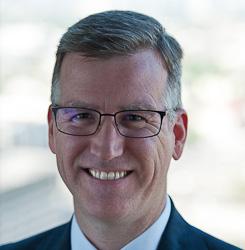
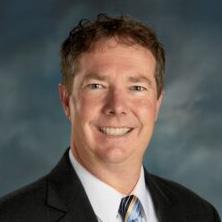

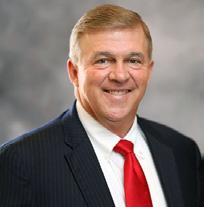
David Marion (Ph.D. counselor education, ‘99) was honored by Omega Psi Phi Fraternity Inc. for his service and dedication to the organization. He became the 41st Grand Basileus of the fraternity in 2018 after serving in numerous leadership positions within the group including the MSU Eta Xi chapter’s Basileus, Seventh District Recommendations Rules and Bylaws Committee chair and 21st Seventh District representative.
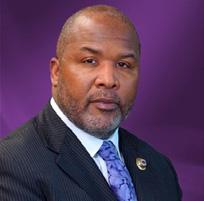
2000s
Will Bowlin (B.S. wildlife, fisheries and aquaculture, ’01; MPPA ’09; Ph.D. community college leadership ’22) received the 2022 Award of Excellence from the National Institute for Staff and Organizational Development, and the Humanities Teacher Award from the Mississippi Humanities Council. A political science and history instructor at Northeast Mississippi Community College, he began a one-year term as vice president of the Mississippi Historical Society last year.
Kimberly Neal (B.A. English, B.A. political science, ‘02) was recognized as a Leader in the Law by the Maryland State Bar Association and The Daily Record. She also received the Top Leader in Law award, an honor voted on by all those recognized as “leaders.” She is the general counsel of Harford County Public Schools, a district that serves approximately 45,000 students with a central office located in Bel Air, Maryland.
Lt. Col. Jason Weir (B.S., M.S. physical education, ’02, ‘04) was featured in the national military publication DataLoop magazine in the article “Leading from the Front.” A member of the U.S. Army Medical Corps, Weir is chief information officer of Landstuhl Regional Medical Center in Germany.
James Cresswell (B.A. political science, ‘03) is now a shareholder in the law firm of Evans Petree PC, which has offices in Memphis and Franklin, Tennessee, and Oxford, Mississippi. He will help lead the law firm’s aviation, transportation and logistics practice group. Additionally, DePaul University’s Issues in Aviation Law and Policy
70 SPRING 2023 CLASS Notes
recently published his article, “The Touhy Doctrine and its Adverse Impact on Aviation Litigation.”
Justin J. Taylor (B.A., M.A. architecture, ’05, ’07) was awarded NASA’s Early Achievement Award for 2022 at Marshall Space Flight Center in Huntsville, Alabama. The medal was awarded for unusual and significant performance during the first 10 years of his NASA career in support of the organization’s mission and goals.
Linda Chandler (B.S. interdisciplinary studies, ‘06) has released a book of poetry, “Linda Kay’s Book of Poetry: Inspirational Spiritual Self Guide

Inspired by my Daughter
Precious Nicole Epilepsy Journey.” It is available on her website, lindakaychandler.com, or from Amazon.
Strands of Faith, a beauty and lifestyle company founded by Ameka Coleman (B.S. biological science, ‘09), was a finalist in the Kapitus Building Resilient Business Contest. The company aims to encourage women to embrace their natural beauty and empower women around the world.
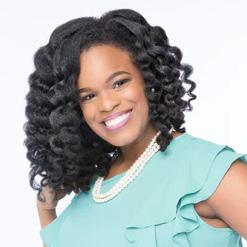
Ed Maxwell (B.S. accountancy, ’09; M.S. taxation, ‘10) has been named a 2022 Rising Star by the Mississippi Society of Certified Public Accountants. He began his career with Haddox Reid in Jackson before joining the Oxford office of Watkins, Ward and Stafford PLLC. He is a graduate of the 2017 Lafayette Chamber of Commerce Leadership Lafayette program and a member of the Oxford Rotary Club, which he serves as treasurer.
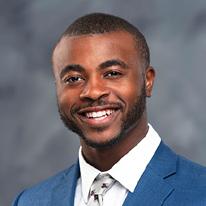
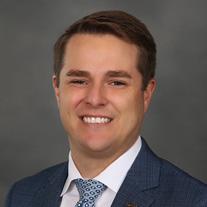
2010s
Hannah Becker (B.S. animal and dairy science, ’10) was selected for the Armed Forces Communication and Electronics Association Cyber Committee, which coordinates outreach and facilitates learning and networking opportunities for people in the industry while also providing support and researching new ideas that affect the field. Becker is vice president of Becker Digital, a Virginiabased communications and marketing agency.
Emily Mengel (B.S. biological engineering, ‘11) was among those honored with a 2022 class of Health Care Leadership Award by the Triangle Business Journal. A clinical engineer with WakeMed Health and Hospitals in North Carolina, she was honored in the Rising Health Care Leader category. She was also named to the 40 Under 40 by TechNation, a national, monthly magazine for medical equipment service professionals. Through her role with WakeMed, Mengel provides support with clinical and technical problems. During the COVID-19 surge, she is credited with finding a solution to allow for close monitoring of critically ill patients while preserving time and personal protective equipment.
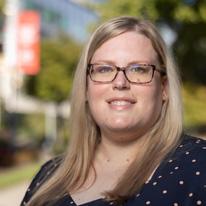
Chase McPherson (BBA, ‘13) joined Community Bank’s Tupelo office as a senior vice president. A veteran of the industry with a decade of experience, he will, in this role, work to manage and grow consumer and commercial loans, as well as deposit relationships in North Mississippi. He is a graduate of the Mississippi School of Banking and the Graduate School of Banking at Louisiana State University. McPherson is president of the Lee County chapter of the MSU Alumni Association and a member of the Rotary Club of Tupelo, Jim Ingram Community Leadership Institute and Tupelo Young Professionals.
Rachel-Johanna
“Johanna” Beeland (B.A. communication, B.A. political science, ‘15; M.S. public policy and administration, ’17) is now director of the Mississippi Attorney General’s Division of Public Education and Community Engagement. She previously worked for the City of Starkville and the Office of the Mississippi State Treasurer where she served as a marketing specialist for College Savings Mississippi.
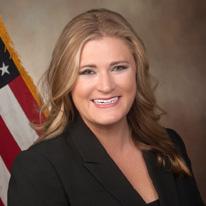
Jasmine Deloach (B.S. interdisciplinary studies, ’15) earned a Helen St. Clair Scholarship from the Mississippi Vision Foundation. Deloach is a

third-year student at the University of Alabama, Birmingham, School of Optometry where she is active in the Student Volunteer Optometric Service to Humanity and the National Optometric Student Association.
2020s
Tyler I. Packer (B.A. political science, ‘21) was recognized by the National Association of Secretaries of State with the John Lewis Youth Leadership Award. He served as MSU’s Student Association president for 2020-21.
Kayla Powe (B.S. biomedical engineering, ‘22) was selected for the Bessie Young Council Diversity and Inclusion Fellowship Program at Bradley Arant Boult Cummings LLP. She is a law student at the University of Mississippi. At Mississippi State, Powe was a member of the Shackouls Honors College and the President’s Council for Diversity and Inclusion. She also volunteered with the Brickfire mentoring program, served as a crew leader for the Office of Admissions and was an undergraduate research assistant for the Department of Biology.
BIRTH Announcements

Charlotte Dobbs Campbell born July 1, 2022 to Craig Dobbs Campbell Jr. (’17, ’19) and Kathryn Campbell of Little Rock, Arkansas.
Kellan Adly Clayton born Dec. 8, 2021 to Kevin (’06) and Alison Clayton (’15) of New Albany.
ALUMNUS.MSSTATE.EDU 71 Know a Bulldog who has news or a recent promotion? Send an email to alumnus@msstate.edu. alumni.msstate.edu/ legacyprogram
HAVE A YOUNG BULLDOG IN YOUR LIFE? Wrap them in Maroon and White early with a Future Bulldog Certificate from the Alumni Association and enroll them into the LEGACY PROGRAM
• Serving communities for over 70 years

• Located in all 82 counties of MS, across the southeastern US, and Colorado

• Philanthropic supporter of MSU, Mississippi area high schools, and other institutions of higher learning
Not only will alumni and friends benefit from various insurance options offered by Farm Bureau, but this relationship will enhance the Association’s mission to strengthen the connection between the Bulldog Family and MSU through events, programming, and other services.

72 SPRING 2023
No dream is small. TM has been helping people find and achieve their dreams for more than 40 years. Our more than 60 agents throughout North Mississippi are your friends and neighbors – and whether you’re looking to buy or sell, TM Realtors is ready to help you reach your goals. Guiding you on your journey is the most fulfilling thing we do. Call TM today, and see your dream come to life.
Tupelo 210 East Main Street 662.842.3844
Oxford 2092 Old Taylor Road 662.234.5344
Starkville
www.TMHomes.com
550 Russell Street at the Mill 662.765.3733

ALUMNUS.MSSTATE.EDU 73
Trust TM to help you see your dream come true.
Legendary business leader and visionary real estate and golf community developer George W. Bryan Sr. died peacefully at his home Jan. 6. He was 78.

George Wilkerson Bryan Sr. was born in West Point in 1944. The son of John H. and Catherine Wilkerson Bryan, he was the youngest of four siblings. Throughout his life, he devoted his energy and passions toward his family, his friends, his businesses and golf. He had a deep and positive impact on the people in his life.
“It is difficult to overstate the impact of the loyalty and generosity of George Bryan and his family to Mississippi State University,” said MSU President Mark E. Keenum. “George was a force of nature in business and in sports, but it was his rare vision and perspective that is most remarkable. He could see what could be and what should be and then set about making it happen.
“George and Marcia left an indelible imprint on MSU,” he continued. “On a very personal level, I will

miss George’s wise counsel and guidance in ongoing efforts to advance our beloved university.”
Bryan supported multiple athletic and academic causes at Mississippi State over the course of his life, but the university building that bears his family name is perhaps their best-known contribution. The Bryan Athletic Administration Building is a crown jewel of MSU’s athletic expansion projects of the 1990s. A $5 million facility that opened its doors in January 1995, it was made possible largely due to the generosity
74 SPRING 2023
Forever MAROON
of the Bryan family. The Bryan Building houses MSU’s athletic administration offices as well as MSU’s athletic ticket office, the Bulldog Club, media relations, business and student services offices.
A 1968 business administration graduate of Mississippi State University, Bryan was a member of Sigma Chi Fraternity. Years later, he was awarded the fraternity’s highest alumni honor when he was named a “Significant Sig.” Prior to entering college, Bryan began his business career in 1964 at Bryan Foods, his family’s West Point-based meat products manufacturing company. He was a graduate of West Point High School.
Sara Lee Corp. acquired Bryan Foods in 1968. After working in cost accounting, Bryan became production manager and vice president of sales before being named Bryan Foods president in 1974. He was named Sara Lee Corp.’s senior vice president in 1983, moving two years later from Mississippi to open the company’s meat group offices in Memphis, Tennessee.
In addition to serving as Sara Lee Corp.’s SVP until 2000, Bryan served as CEO of Sara Lee Foods and chairman and director of the American Meat Institute before retiring in 2000.

A tireless champion of business, civic and charitable endeavors, Bryan also served as general campaign chairman for the United Way of the Mid-South, a 30-year director and member of the Audit, Trust, and Compensation committees of Regions Bank, and past president of the Chickasaw Council Boy Scouts of America. He was named an Outstanding Mississippian in 1979 by then-Gov. Cliff Finch and was inducted into the West Point Hall of Fame in 1992 and West Point Citizen of the Year in 2000. Most recently, he was selected for the Mississippi Golf Association Hall of Fame in Jackson. He was posthumously honored at the ceremony Jan. 21.
Bryan was named MSU’s College of Business Alumni Fellow in 1992 and Alumnus of the Year in 1996, and also served on the college dean’s advisory board. He was named MSU’s National Alumnus of the Year in 2000 and was a longtime board member of the MSU Foundation.
Bracky Brett, a longtime member of the MSU Athletic Department who was serving as interim athletics director at the time of Bryan’s death, reflected on Bryan’s legacy.
“We are incredibly saddened to learn of the passing of George W. Bryan. He was a longtime friend, devoted supporter and proud contributor
to MSU, who made a lasting impact on the growth of our university, athletics program and entire community,” Brett said. “He will be missed deeply, but his memory and legacy will never be forgotten.”
Former MSU Athletics Director Larry Templeton, who worked closely with Bryan during the prime of his illustrious career, also noted his valuable contributions.
“George Bryan cast a long and important shadow over business and sports across this state and nation,” Templeton said. “His commitment to transforming MSU’s athletic and academic fortunes was second to none. He was my friend, my valued sounding board and someone I genuinely enjoyed spending time and fellowship with.”
The Liberty Bowl awarded Bryan the “Spirit of 1776” Award in 2013. The Mississippi Sports Hall of Fame honored him with the “Rube” Award—named for sportscaster Michael Rubenstein—in 2015 and the Mississippi Golf Association presented him the Distinguished Service Award in 2015.
In 1988, George and wife Marcia were cofounders and owners of his hometown’s Old Waverly Golf Club, one of the South’s premier golf destinations and home to Mississippi State men’s and women’s golf programs. He led in bringing the U.S. Women’s Open—the most prestigious event in women’s professional golf—to Old Waverly in 1999. This achievement earned him the Jackson ClarionLedger’s 1999 Sports Person of the Year Award. Bryan also was co-founder of Mossy Oak Golf Club, also home to MSU’s golf programs. Brought to life by Gil Hanse, Mossy Oak Golf Club, which opened in 2016, quickly became one of the most revered golf courses in the U.S. and was recognized in 2018 as one of Golfweek’s Top 100 Modern Golf Courses.
VJ Trolio, golf teaching professional at Old Waverly Golf Club, said Bryan brought “greatness” and “vision” to all his projects.
“The idea of wealth or accomplishment leaves out the idea of greatness. Greatness is something more. Greatness is aspiration and victory but it is also inspiring others,” Trolio said. “God tells us he judges the heart of men which obviously means God expects us to use our gifts for the Glory of God. Simply, he wants us to inspire others. George Bryan did that. He not only led a life of vision, he allowed so many to lead their own life of vision. He led a life of greatness and we, as coaches, teachers and players of the game he loved, thank him for inspiring us.” n
Written by Sid Salter
ALUMNUS.MSSTATE.EDU 75
Fred A. Baker (B.S. College of Agriculture and Life Sciences, ’70; retired staff) 74, Hattiesburg – An Eagle Scout and decorated 4-Her, he worked with the MSU Extension Service as a 4-H youth agent, assistant county agent and county agent in Jeff Davis, Forrest and Covington counties during his 30-year career. — April 29, 2022
Dustin Barnes (B.A. communication, B.A. foreign language, ’05) 38, Nashville, Tennessee – A graduate of Kossuth High School, he made a name for himself as a talented reporter and editor with The Reflector, ultimately becoming managing editor. During that time, he also worked in news, photography and design with the West Point Daily Times Leader, and later as a writer and editor with the University of Mississippi Medical Center. He joined Gannett Publishing in 2009 as a reporter for the Clarion-Ledger in Jackson before transitioning into digital strategy at The Tennessean in Nashville and ultimately becoming a trending editor for USA Today. In 2016, he was named one of the nation’s top journalists under 35 by Editor and Publisher Magazine. The same talent and enthusiasm for the field that earned that recognition also led to an outpouring of remembrances on social media following his death—including a Tweet from Mariah Carey, of whom he was a big fan, remarking that the “beautiful memories” made her wish she had gotten to meet him. — May 1, 2022
Habib Bazyari (M.S. agricultural economics, ’65; Ph.D. quantitative analysis, economics, ’74; retired faculty) 86, Meridian
– Born in Iran, he came to the U.S. in the early 1960s. He was the first business professor at MSU-Meridian, joining the faculty when the division opened in 1972. He later became chair of the Business Division and grew the program from 80 to 350 students. He was named a Professor Emeritus following his 36year career. He later served as the dean of the College of Business at the University of West Alabama. — July 21, 2022
Jacqueline Summer Burpee Beard (B.S. geosciences, ’01) 58, Muscle Shoals, Alabama – A Georgia native and sports enthusiast, she was a member of the water ski team at Georgia State University before coming to MSU. She worked with the Alabama Department of Health for 17 years as an
environmentalist, senior environmentalist and supervisor of Colbert, Franklin and Marion counties. An accomplished cook, she won baking contests and blue ribbons at state fairs.
— April 29, 2022
Marvin Blanks (B.S. business, ’71; M.S. finance, ’72) 74, Philadelphia – He moved to Philadelphia to work with Yates Construction, a company he stayed with until his retirement in 2016. During that time he helped the small family business grow into one of the largest construction firms in the country. He traveled to three continents with Gideons International and was active in the Boy Scouts of America for most of his life, holding the rank of Eagle and serving as a leader for Troop 52. — July 16, 2022
Harlen Oral Elliott (B.S. dairy science, ’55) 88, Tonganoxie, Kansas – A native of Purvis, he was active in the dairy industry throughout high school and college. After completing Army ROTC, he served 20 years at a variety of posts in Europe, Korea, Vietnam and the United States. One focus of his career was military education. He taught ROTC, coached collegiate and Army rifle teams, and was a faculty member and curriculum developer at Command and General Staff College in Fort Leavenworth, Kansas. Elliott owned several businesses after retiring from active duty, including Midwest Marine and Wholesale Distributorship in Leavenworth.
— May 20, 2022
Robert Leslie “Bob” Grafe (B.S. mechanical engineering, ’62) 81, Fairhope, Alabama –He worked with NASA in Houston, Texas, where he was part of the earliest wave of young, adventurous minds to put a man on the moon, shake hands with cosmonauts during the Apollo/Soyuz mission and launch and land a returning Space Shuttle. — July 27, 2022
Elvin Graham (B.S. ag and extension education, ’52; M.Ed. school administration, ’55) 94, Tupelo – A WWII veteran who was stationed in Italy, he began his teaching career at Fairview Junior High and later became principal—a role he held until his retirement in 1986. He was a member of the East Fulton Baptist Church where he was a deacon and Sunday school teacher. — Jan. 8, 2022
Lucy Aletha Hansford (M.S. elementary education, ’75) 70, Jackson – She earned a bachelor’s in elementary education from Mississippi College and was elected to the Hall of Fame in 1973. She began her teaching career in Yazoo City before pursuing the opportunity to earn a master’s at Mississippi State. She joined Jackson Public Schools as teacher at Timberlawn Elementary where she taught first and third grade. Following 25 years in the classroom, she moved into a public relations role with the district. She was the volunteer director of the Baptist Student Union at Belhaven College for eight years. — July 28, 2022
Lt. Col. Bobby N. Hutson (attended) 88, Ridgeland – He attended MSU in the 1950s before joining the Air Force as a pilot. He later joined the Mississippi Army National Guard and flew helicopters. Upon retirement, he had completed over 40 years of combined military service. He retired from the Mississippi Farm Bureau Federation and was a member of American Legion Post 68 in Brandon. He is also a namesake of the Bobby N. Hutson Endowed Scholarship within MSU’s G.V. “Sonny” Montgomery Center for America’s Veterans. Established by his son, Brian, it assists honorably discharged veterans and active service members who are enrolled full time at MSU. — June 9, 2022
Jerry Tex Little (B.S. mechanical engineering, ’57) 86, Bridgeport – He began his career with the Department of the Navy and was supervisor of shipbuilding at Ingalls for more than 35 years. Among numerous career accolades, he earned the Meritorious Civil Service Award. — July 27, 2022
Victor Lee McDearman Jr. (B.S. chemical engineering, ’66) 78, Baton Rouge, Louisiana – While at Mississippi State he was a member of the Pi Kappa Alpha fraternity. In addition to his degree from MSU, he held a Master of Business Administration for Louisiana State University. He was a U.S. Army veteran, having been a missile site commander for the Mt. Tamalpais Missile Site in San Francisco, California. He worked for Ethyl Corp. and Albemarle Corp. for more than 25 years in a variety of management positions around the world. He retired as vice president from Albemarle in 2000. McDearman was a member of the Baton Rouge Round Table, assisted with Habitat for Humanity and raised funds for the YMCA. — July 15, 2022
76 SPRING 2023
Forever MAROON
Howard L. Miskelly (B.S. agricultural and extension education, ’50) 96, Okolona – He served in WWII, earning the rank of staff sergeant in the Army and being awarded two Bronze Stars. He then attended Union University on a basketball scholarship before transferring to MSU where he was president of Alpha Tau Omega and cadet colonel of the MSU ROTC. With his wife of 74 years, he owned and operated Howard’s Department Store for 40 years. This store was the inspiration for Miskelly Furniture, which was founded by his children and is now one of the largest independent furniture retailers in the country. He was a member of the Lions Club, founding member of the Okolona Country Club, served on the board for the Mississippi School for the Deaf and Blind, was appointed to the Veterans Administration board and served as president of the Mississippi Retail Association. — July 16, 2022
Bryan Allen Morgan (BBA real estate and mortgage financing, ’94;) 51, Winnsboro, Louisiana – He worked for Franklin State Bank where he was vice president of operations for 15 years. He was a board member of Twin Oaks Country Club and was former Club Champion, a member of the Rotary Club, Lions Club and the Franklin Parish Chamber of Commerce. — July 19, 2022
John Edward Pearson Jr. (B.S. civil engineering, ’59) 85, Grand Junction, Colorado – Following his graduation, he was commissioned into the U.S. Army. With the Corps of Engineers, he worked in Vietnam and was promoted to senior positions that took him to many states in the U.S., including Hawaii where he retired. Upon leaving active duty, he hiked the entire length of the Appalachian Trail before continuing his engineering career as a construction manager in Saudi Arabia. — May 15, 2022
Ralph L. Reeves Jr. (B.S., M.S. industrial technology, ’59, ’62; M.Ed. ’63; retired faculty) 82, Starkville – A native of McComb, he was an associate professor emeritus of industrial technology after a 34-year teaching career at MSU. He was fondly known as “Mr. Cowbell” for his role in producing the first MSU cowbells to be sold commercially. — July 13, 2022
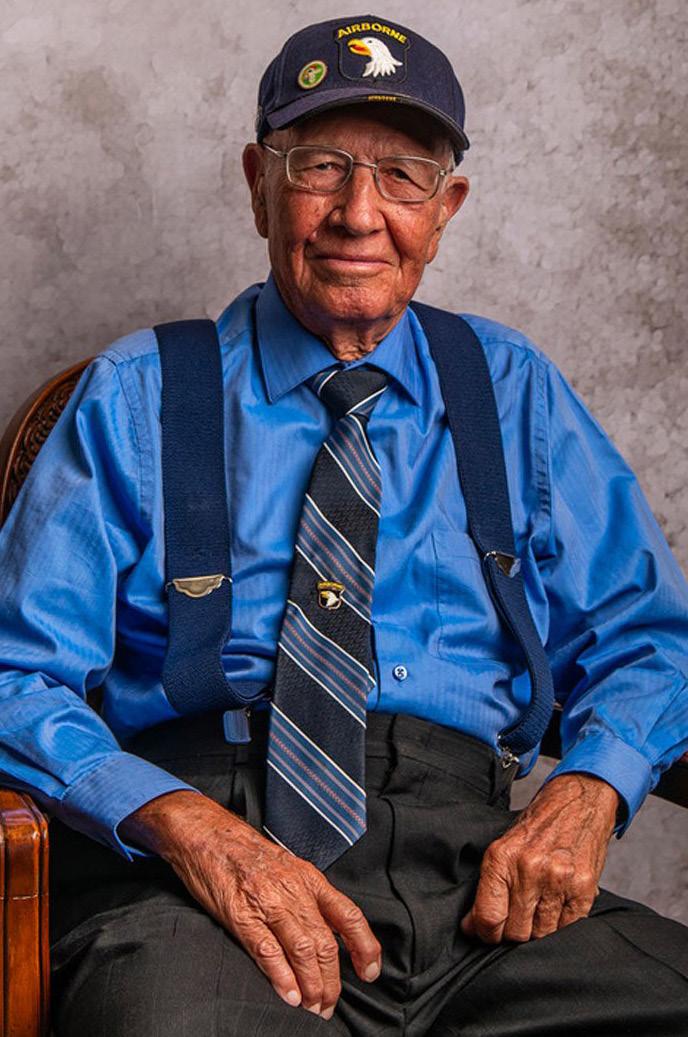
Robert Fletcher “R.F.” Tanner (B.S., M.S. aerospace engineering, ’60, ’63; retired staff) 85, Palm Beach Gardens, Florida – A native of Memphis, he attended Georgia Tech before transferring to MSU and later earning an MBA from Georgia State University. He worked at Boeing in Seattle, Washington, and for Lockheed in Marietta, Georgia, before becoming an administrator for MSU, Oklahoma State and the University of Kentucky. In 1984, he moved to Florida and worked at Pratt and Whitney until his retirement. He competed in Academy of Model Aeronautics events nationwide and set many national free-flight records. He also served as the commander of the Bluegrass Power Squadron in Kentucky. — Sept. 12, 2022
William Shelly “Buddy” Twitty (B.S. business information systems, ’57) 87, Gulfport – He owned Twitty Insurance Agency in New Albany from 1965 until his retirement in 1999 and held a CIC insurance certification. He was a deacon at First Baptist Church of New Albany and was a member of the Masonic Lodge. He served as president of the MSU Alumni Association in 1986 and as president of the Union County MSU Alumni Chapter. — June 1, 2022.
Sam T. Wilkes (retired faculty) 95, Kosciusko – He joined the Navy during WWII and served aboard the U.S.S. New York before returning home to Petal to finish high school. He earned bachelor’s and master’s degrees from the University of Southern Mississippi. He later taught and served as an administrator in Moss Point. An Eagle Scout, he served as scout master for the local Boy Scout troop. Following his time in Moss Point, he completed doctoral studies at Auburn University then joined the faculty at Mississippi State. He held the title of Professor Emeritus of Educational Leadership at MSU.
— July 18, 2022
John Stephens “Steve” Worley (B.S. agricultural science, ’59) 84, Madison – A native of Sumner, he was a member of Kappa Sigma fraternity, an ROTC cadet and later Army officer. Upon retirement, he and his wife moved to Orange Beach, Alabama, and then Madison. He was a charter member of the Bulldog Club, served in numerous church and community leadership roles, and was an avid outdoorsman throughout his life.
— Feb. 10, 2022
REMEMBERING Bradford C. Freeman
An Artesia native, Freeman enrolled at Mississippi State University in 1942 before joining the military during World War II. He was a member of Easy Company, the 506th Parachute Infantry Regiment of the 101st Airborne Division—the unit known for its remarkable service that was chronicled in the HBO series “Band of Brothers.”
As a Private First Class in the U.S. Army, Freeman parachuted from a C-47 during the D-Day invasion of Normandy, France, fought in Operation Market-Garden in the Netherlands, and defended Bastogne during the Battle of the Bulge. He participated in the Allied occupations of Berchtesgarden and Austria.
Freeman returned to Caledonia following the war, where he started a family and worked as a mail carrier for 32 years before retiring.
“Mr. Freeman was a true hero,” said MSU President Mark E. Keenum. “He and so many of his generation stepped up during our nation’s time of need. I am so thankful for the legacy of the men and women of this ‘greatest generation’ who sacrificed so much for all the freedoms and liberties we tend to take for granted. I’m also proud that Mr. Freeman was a Bulldog.”
ALUMNUS.MSSTATE.EDU 77
WITH BRACKY BRETT
It’s funny how life can come back around. A little more than two decades ago, I was given the opportunity to come to work in the Mississippi State athletic department. I was honored to have the chance to serve my alma mater after being a high school coach for more than 20 years.
I can remember my early conversations with then-athletic director Larry Templeton and Dr. David Boles when I was first seeking a job in the compliance office. Before me, there’d been several individuals that’d come to MSU and done great jobs in compliance before deciding to leave for other opportunities. I believe Mr. Templeton and Dr. Boles were looking to find someone that could provide stability.
I understood I’d have lessons to learn should I get the position, but bringing stability was something I knew I’d do. I told Mr. Templeton and Dr. Boles that if they’d allow me to work at Mississippi State, I’d be a Bulldog for as long as they’d have me. All these years later, I’m still around.
Here’s where history repeats itself. I was once again asked to be a stabilizing presence at MSU by serving as interim director of athletics through a transitional period and search for someone to fill the full-time post. I’m so grateful to President Mark Keenum for entrusting me with the responsibility of seeing us through that time to make sure we didn’t skip a beat.
I knew we wouldn’t because since coming to work here all those years ago—in my time as a student here long before that—I’ve learned the best thing about Mississippi State is our people. I’ve always been incredibly fortunate to work alongside fantastic individuals in our athletic department and with so many talented student-athletes. Our people will always ensure that MSU succeeds.


Finances are often mentioned when talking about assets. Money is nice, for sure. But there is no dollar figure that could ever top the value of the amazing Mississippi State family.
That includes everyone. It includes those who work here or go to school here or support us in any number of ways. MSU Bulldogs are unique, generous, giving and passionate. It’s always been that way. It’s part of our culture.
It’s remained that way even as faces around campus have changed. I’ve had the privilege to work with great university presidents, from
Charles Lee to Dr. Keenum. I’ve worked hand in hand with four different athletic directors–Mr. Templeton, Greg Byrne, Scott Stricklin and John Cohen—and look forward to the leadership Zac Selmon will bring. And through it all, the one thing that never, ever changes is the commitment to and love for our university from all who remain associated with it.
The Mississippi State family is a major reason why I continue to love showing up to work here every day. And when you enjoy coming to work every day, it’s not work. I guess that means I haven’t worked a single day since January 2002.
I’ve truly enjoyed each minute I’ve served this great university and its wonderful people. I don’t think I could have ever imagined I’d be overseeing the entire athletic department for even a brief period, but I was certainly honored and humbled to do so.
I remain driven to do the best job possible for Mississippi State and all those who love it. And hopefully, I can continue to be the stabilizing presence I promised I’d be a long time ago.
Bracky Brett is MSU’s senior deputy athletics director for compliance. He was tapped by President Mark Keenum as interim athletics director in October and led the department through the untimely death of head football coach Mike Leach. A native of Kosciusko, Brett earned from MSU a bachelor’s degree in health and physical education in 1978 and a master’s degree in physical education and school administration in 1980. He spent 24 years as a high school teacher, coach and administrator before joining the MSU staff.
78 SPRING 2023 Back STORY
alumnus@msstate.edu Alumnus Magazine P.O. Box 5325 Mississippi State, MS 39762
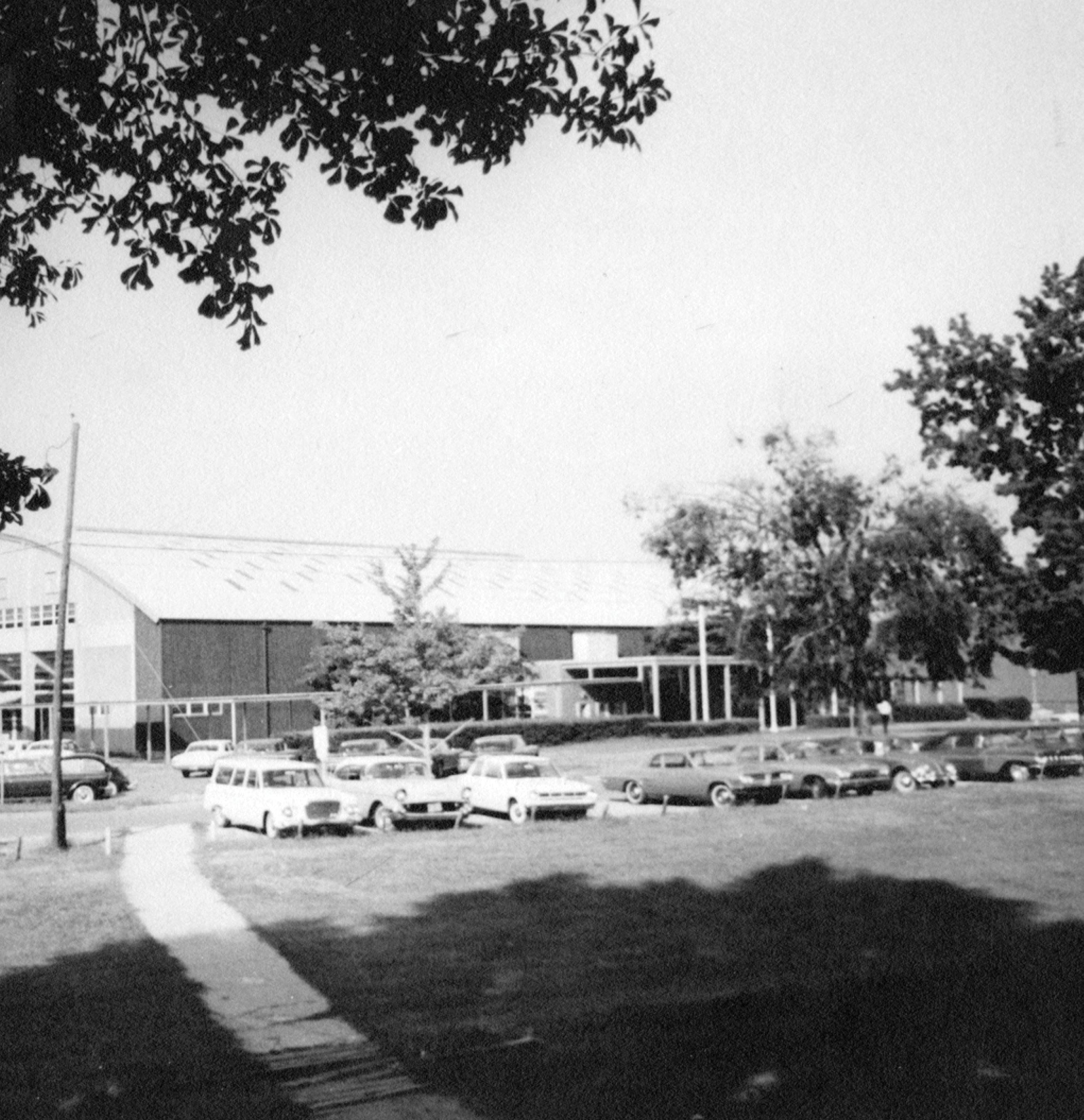
ALUMNUS.MSSTATE.EDU 79
This University Archives photo, believed to be from the 1960s, shows McCarthy Gymnasium—the former home of Bulldog Basketball. Share memories of McCarthy Gym or help provide more information about this photo by contacting Alumnus magazine. Please include your name, major(s) and graduation year(s) as some responses may be published in print or online.
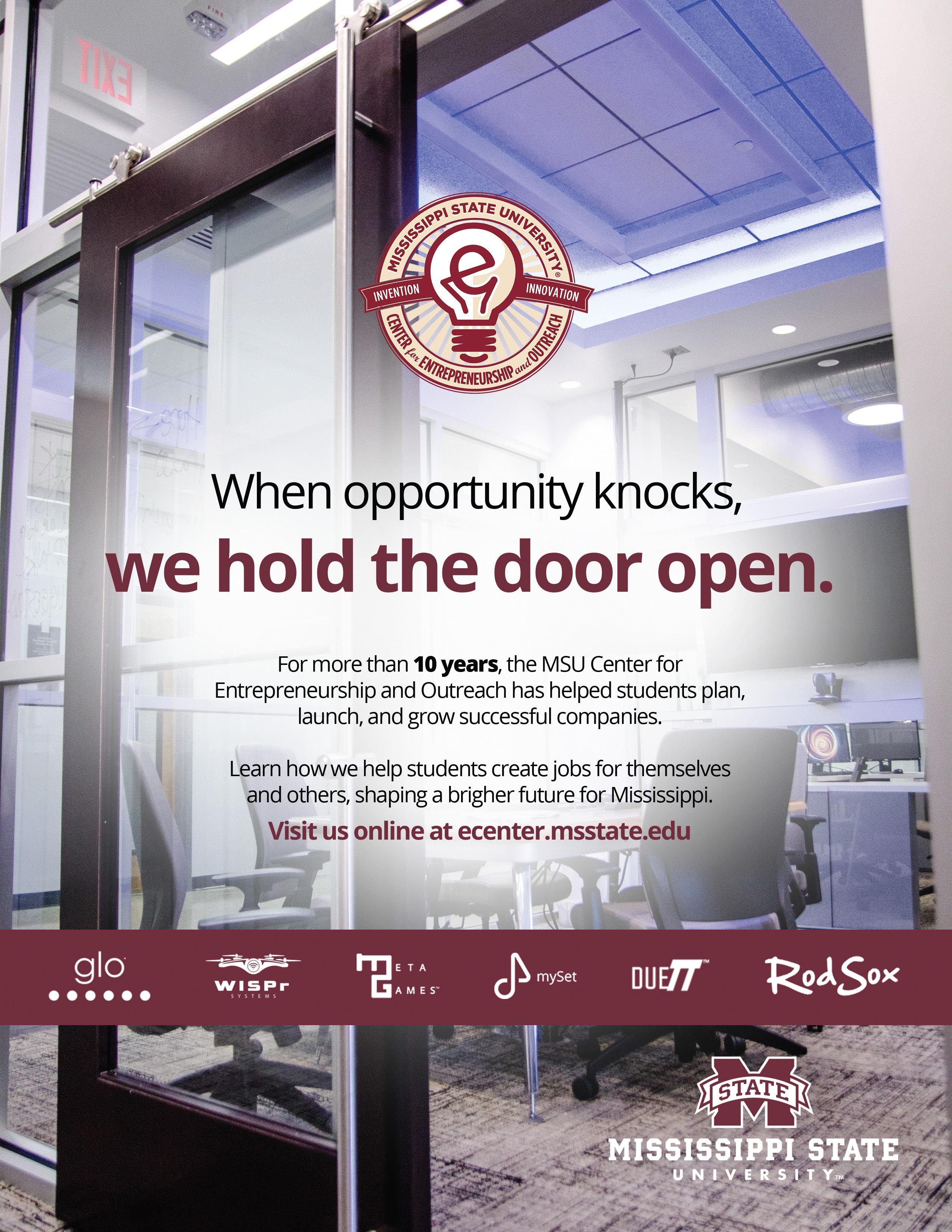
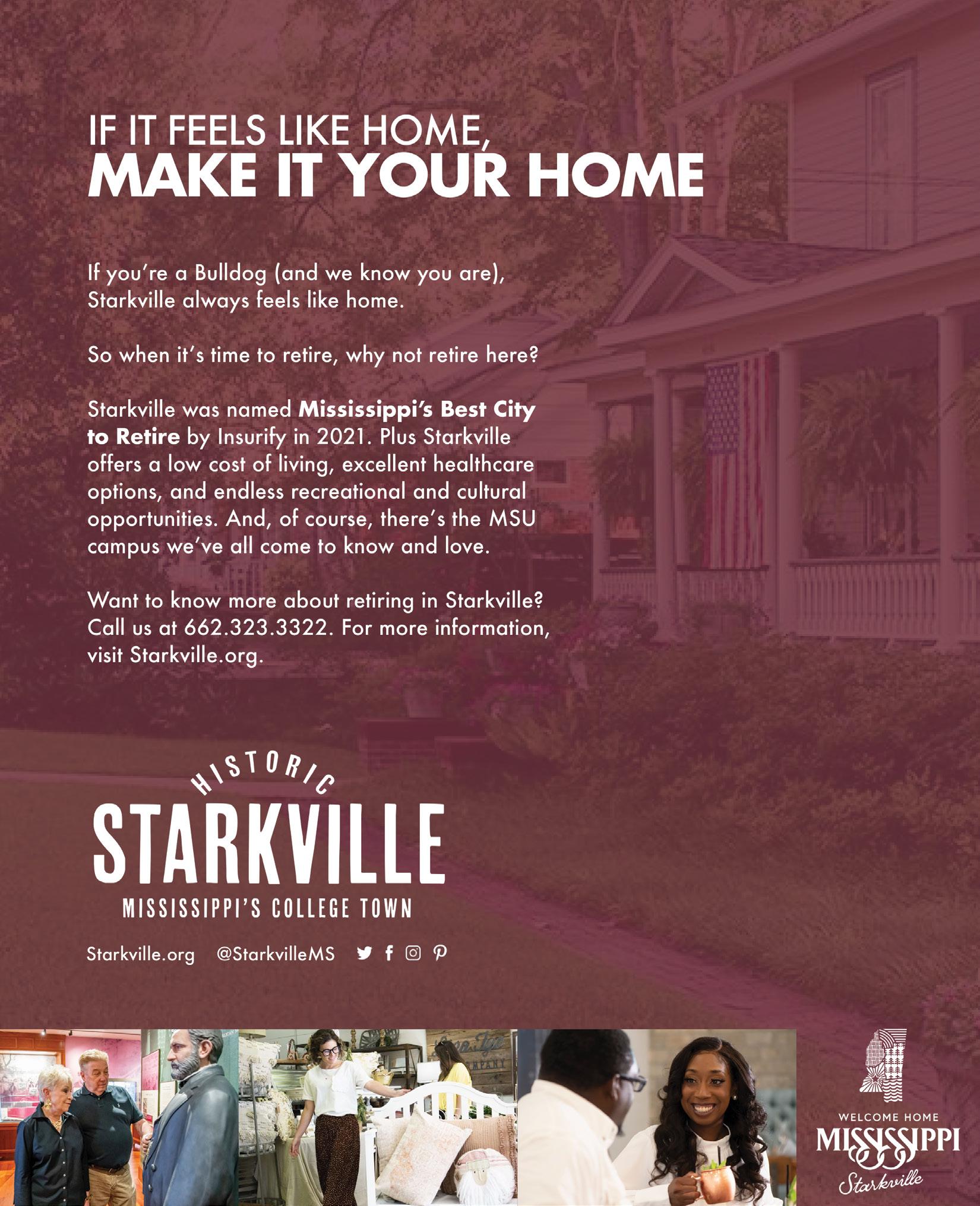
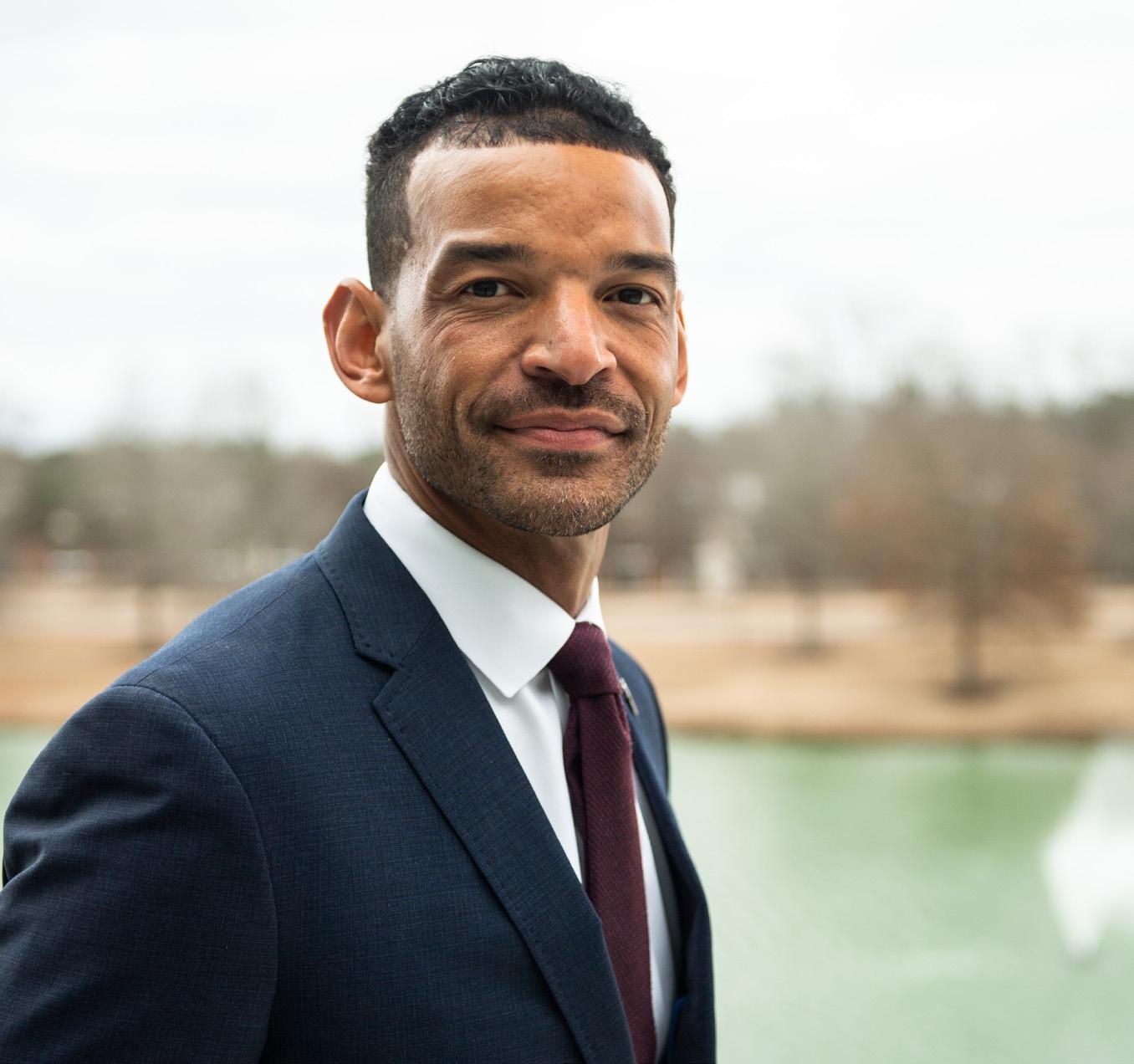

NON-PROFIT ORG US POSTAGE PAID MISSISSIPPI STATE 39762 PERMIT NO. 81 P.O. Box AA One Hunter Henry Boulevard Mississippi State, MS 39762-5526 www.alumni.msstate.edu ELECTRONIC SERVICE REQUESTED Selmon was named MSU’s 18th director of athletics in January following a national search. p. 30 ZAC SELMON NAMED ATHLETICS DIRECTOR AT MISSISSIPPI STATE










 By James Carskadon,
By James Carskadon,



































































































 By Susan Lassetter, Photos by Megan Bean & Grace Cockrell
By Susan Lassetter, Photos by Megan Bean & Grace Cockrell



























































































































